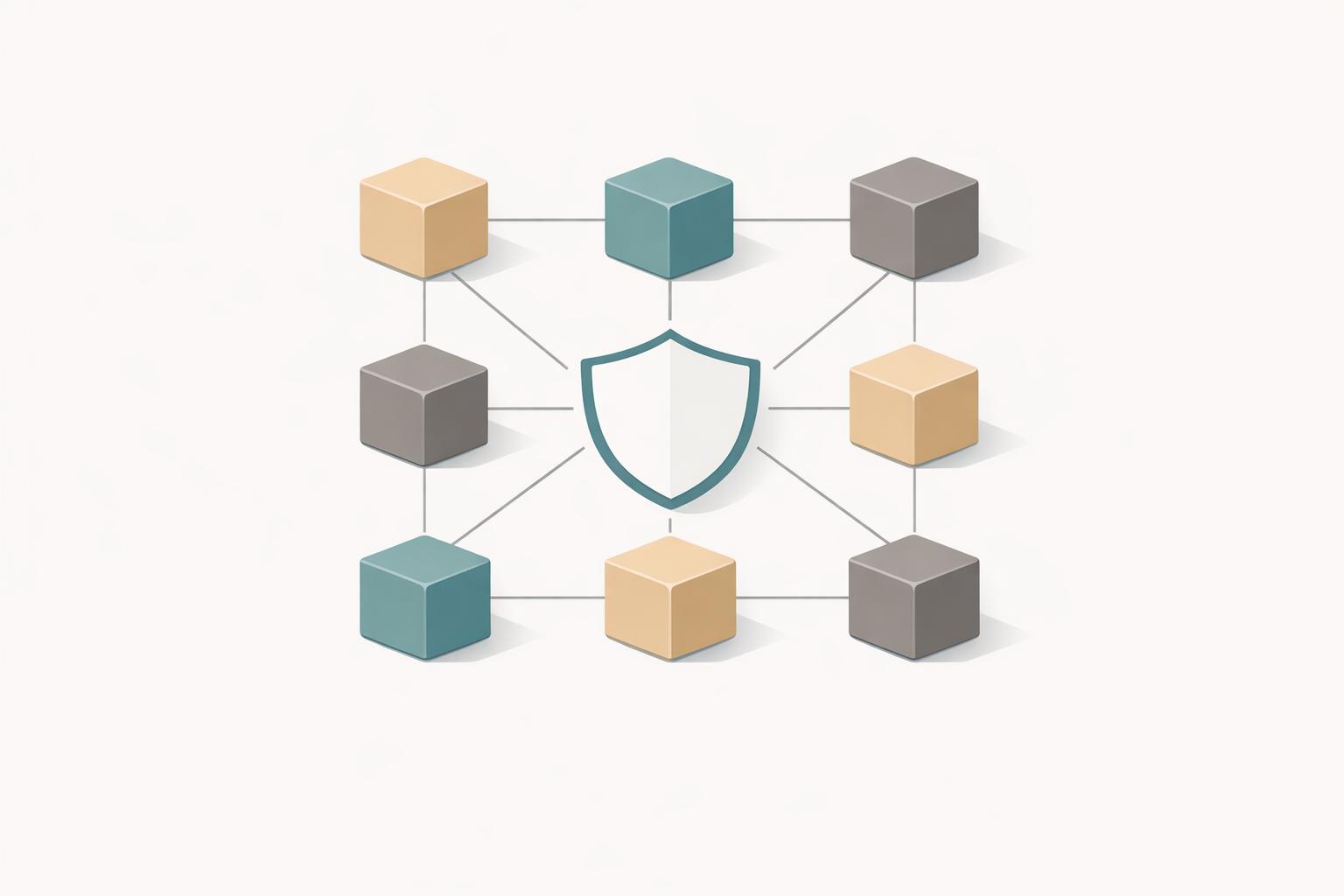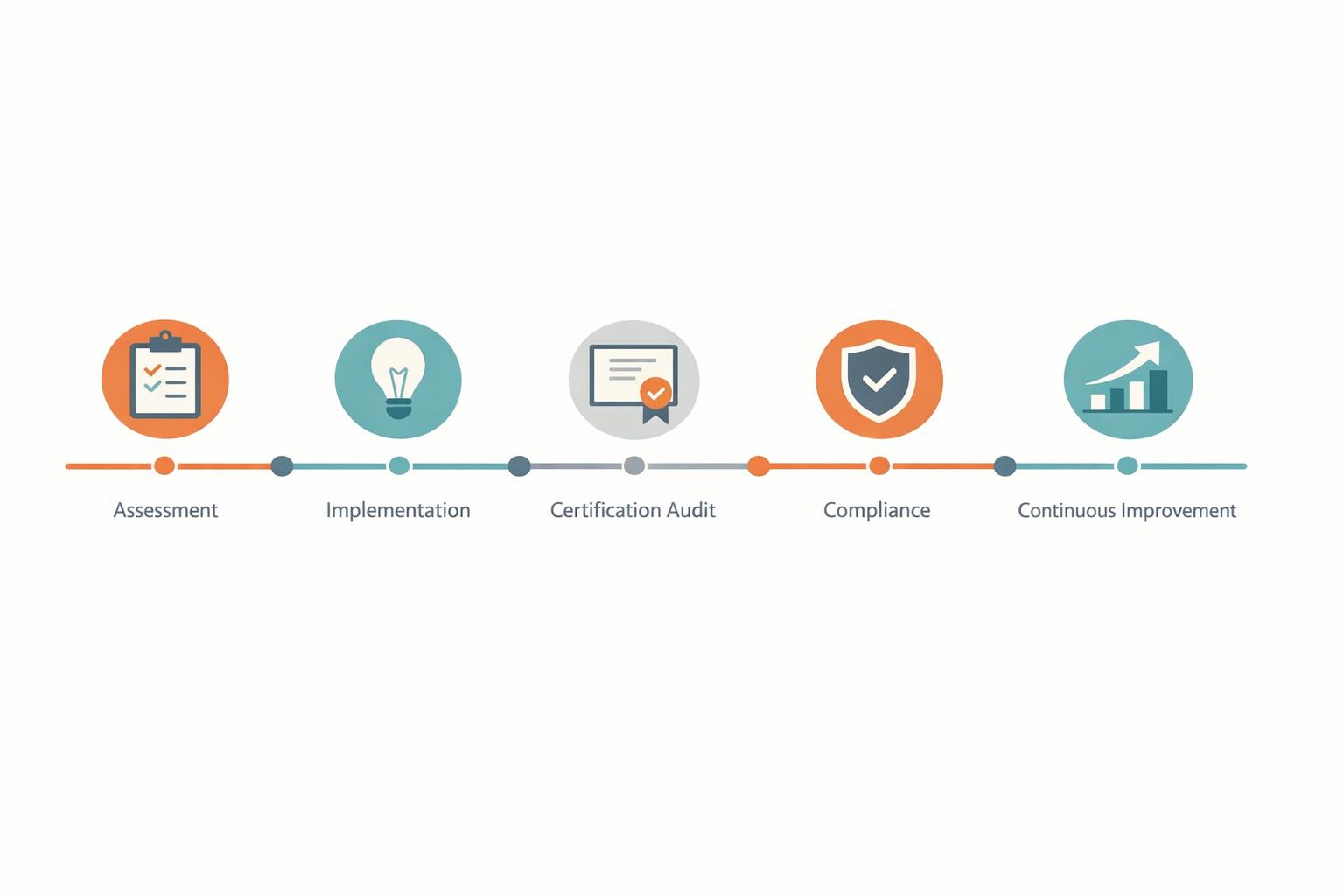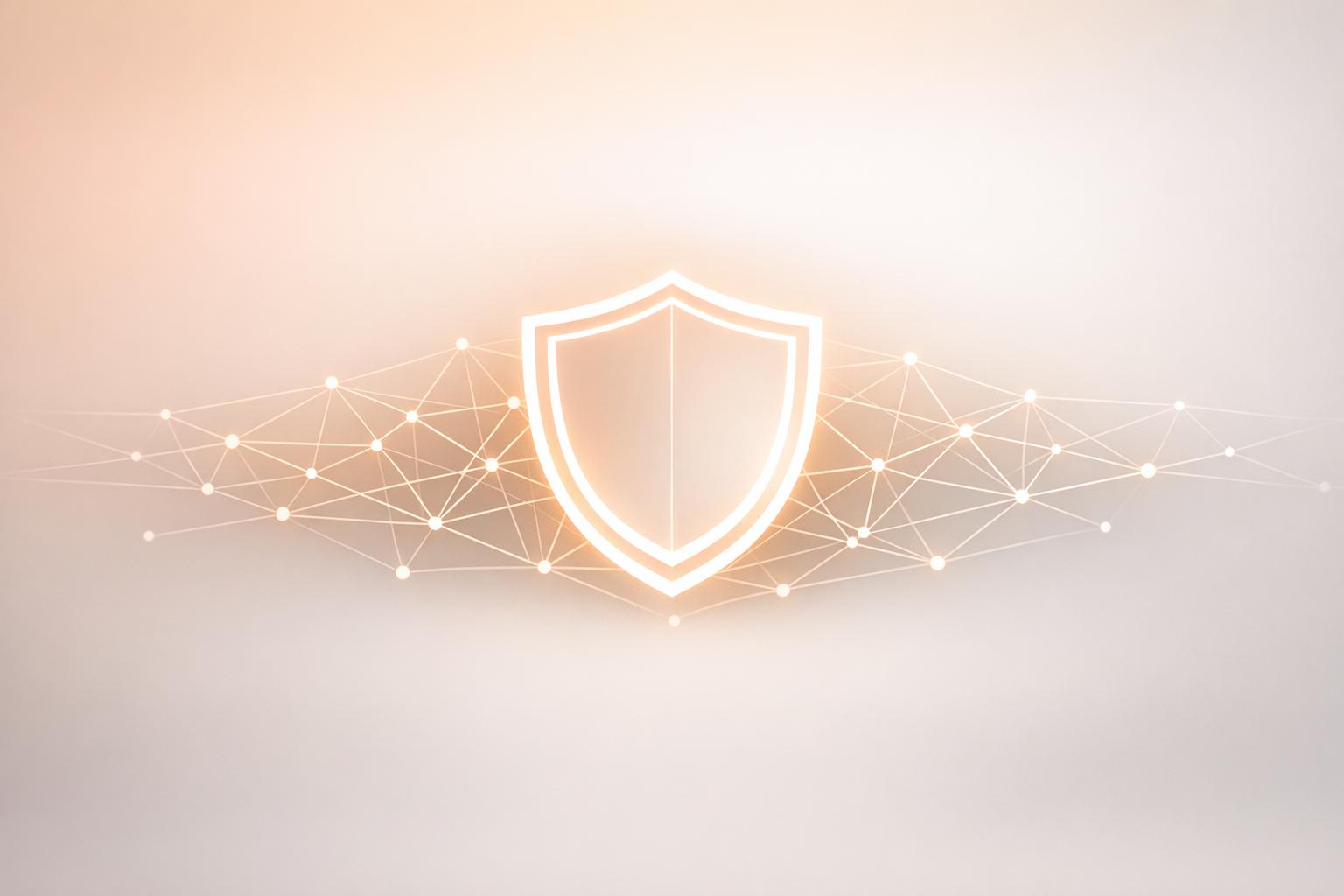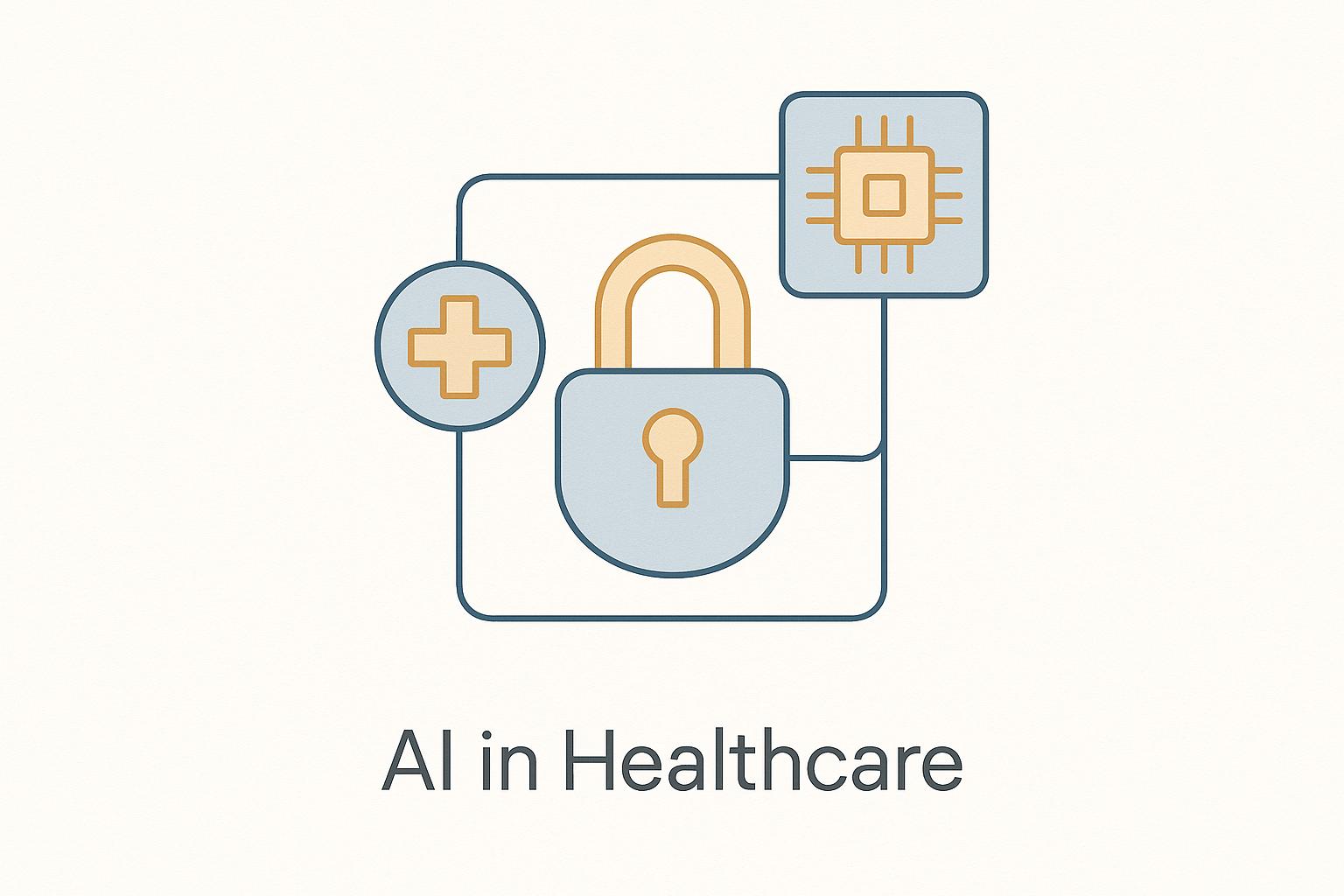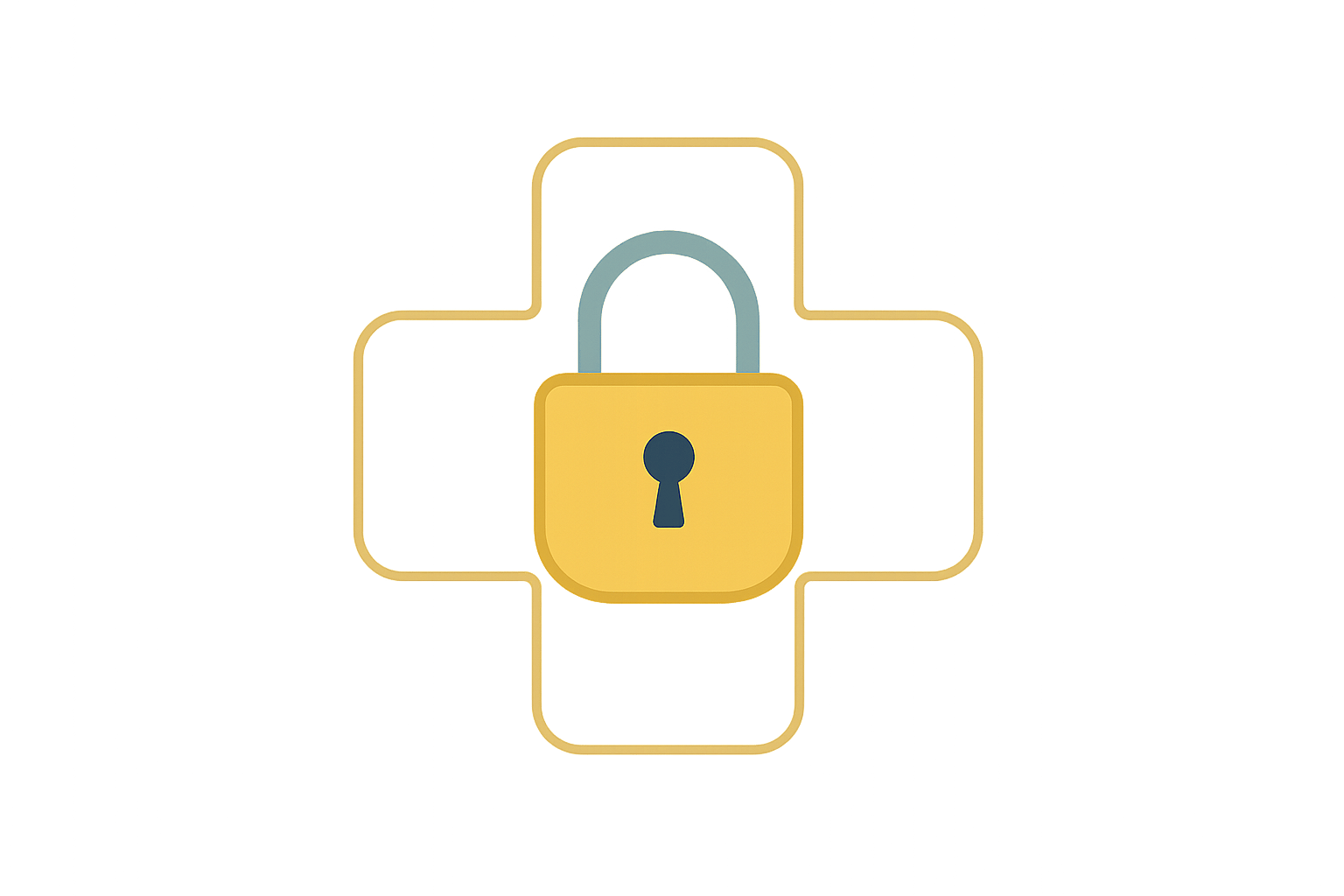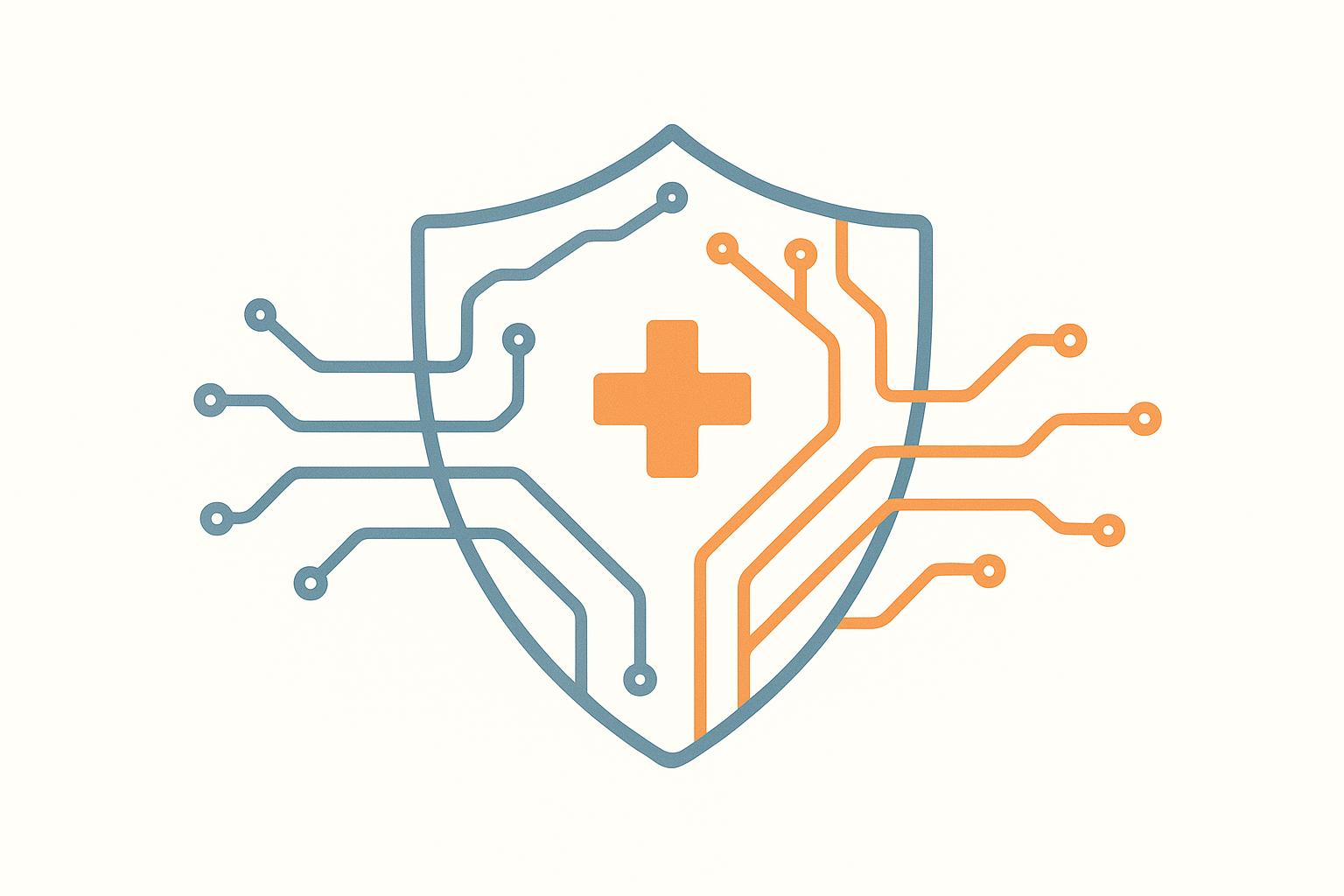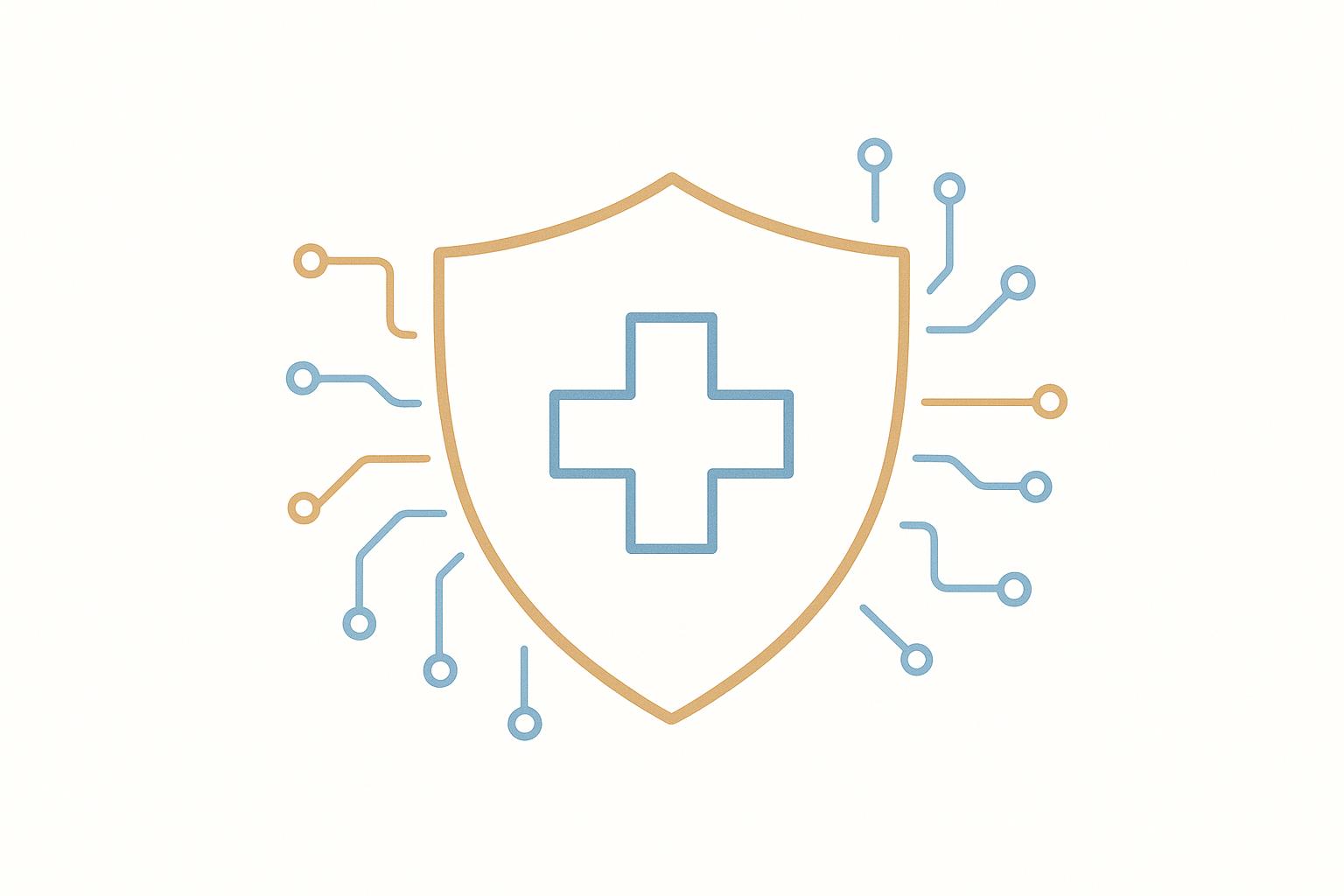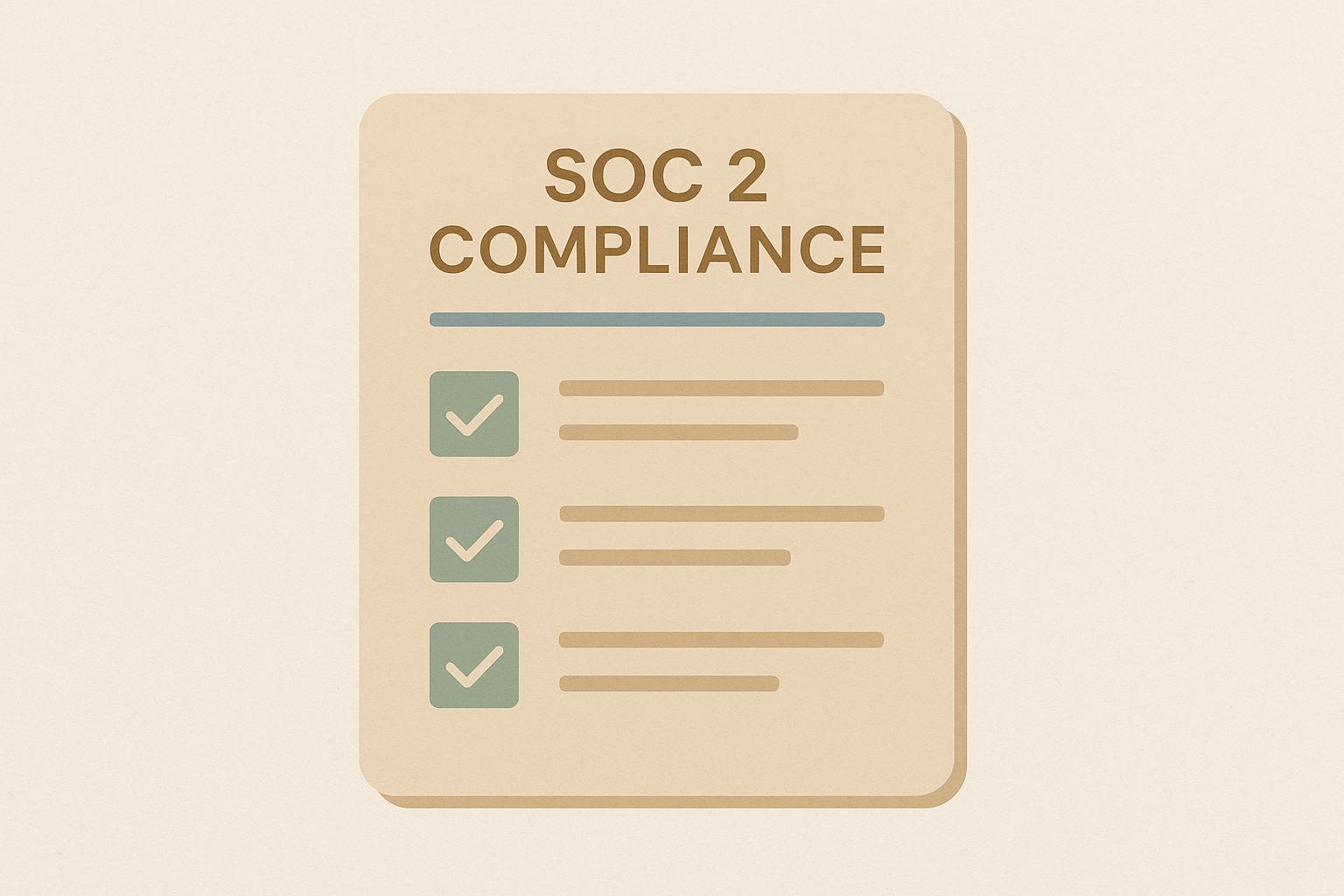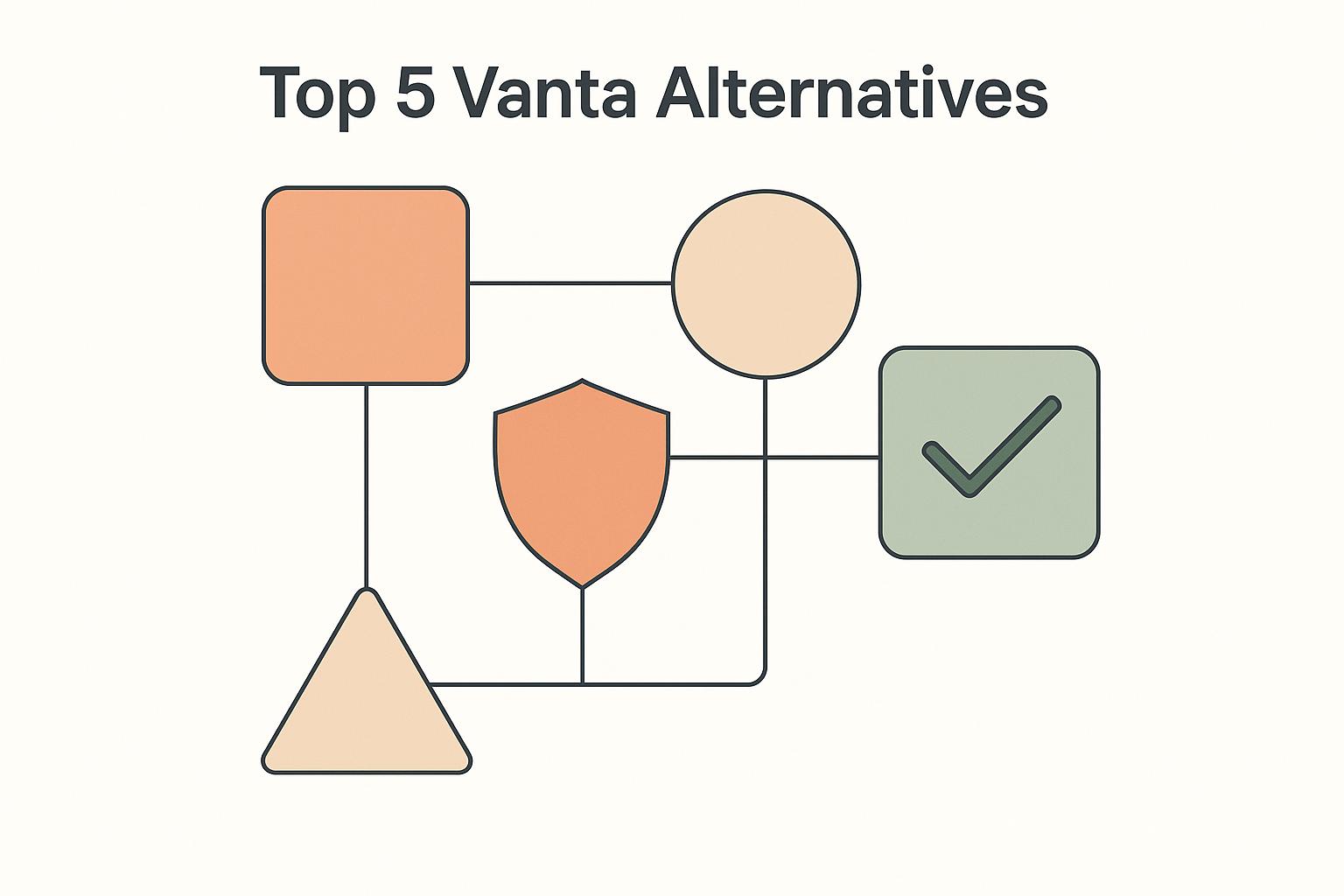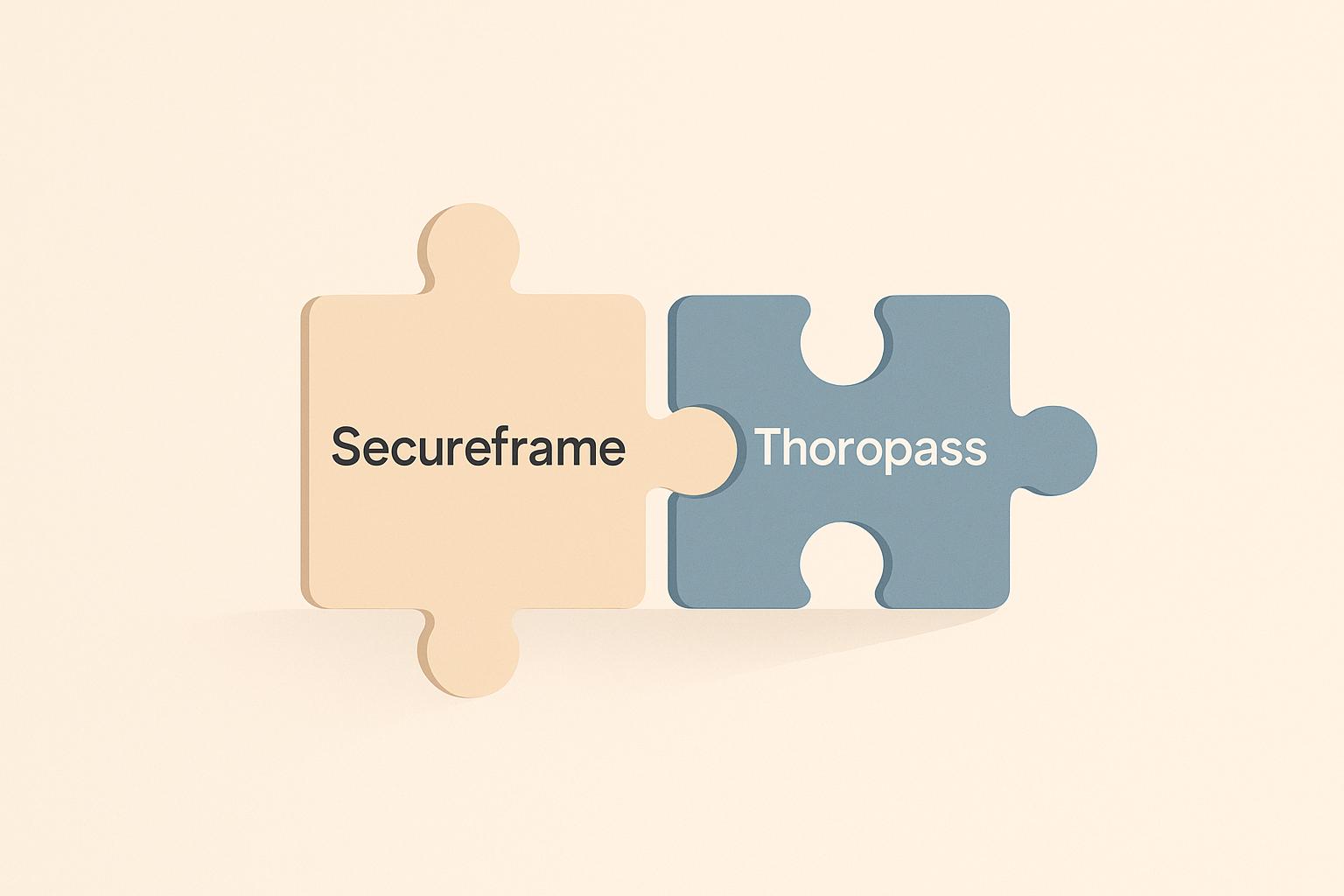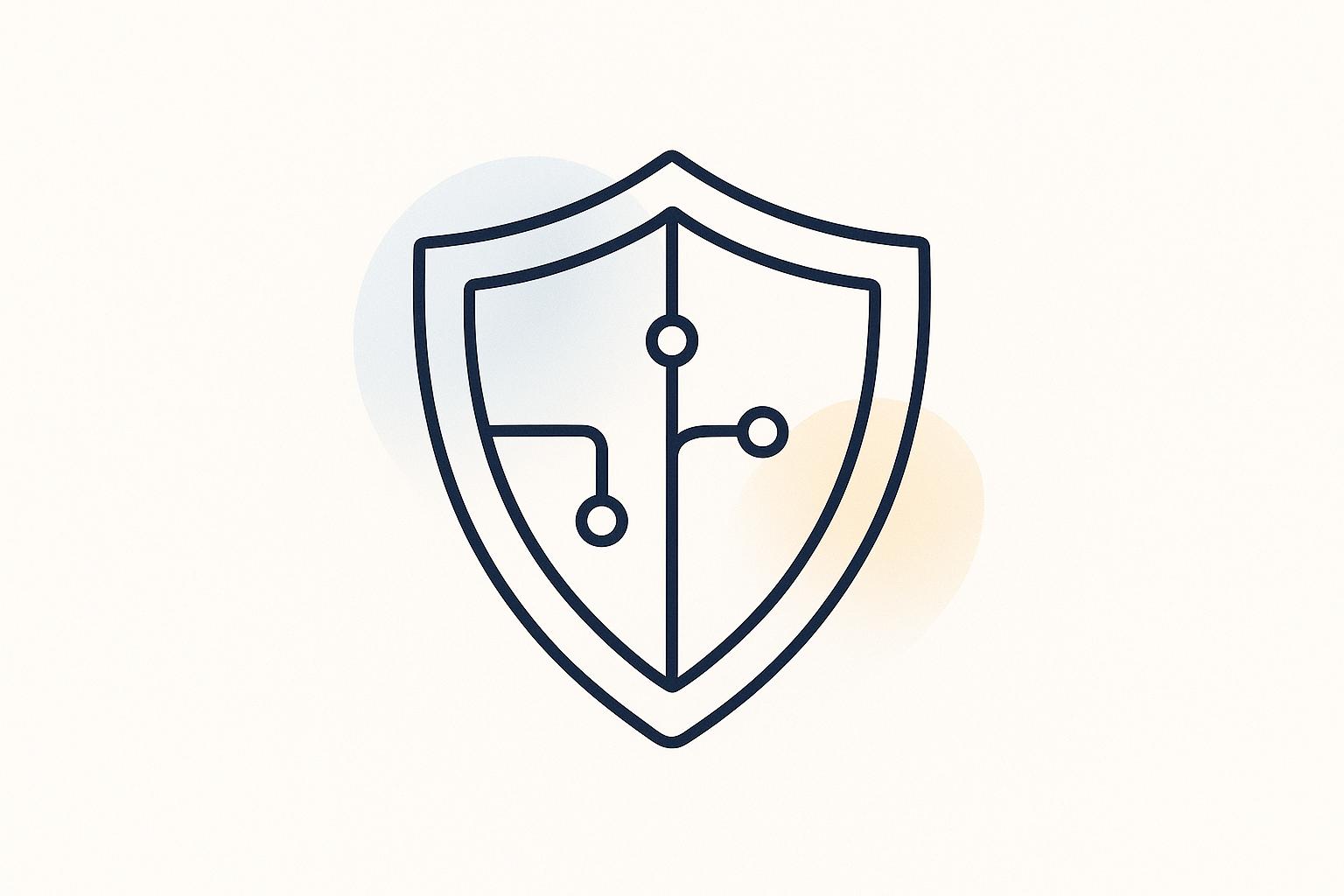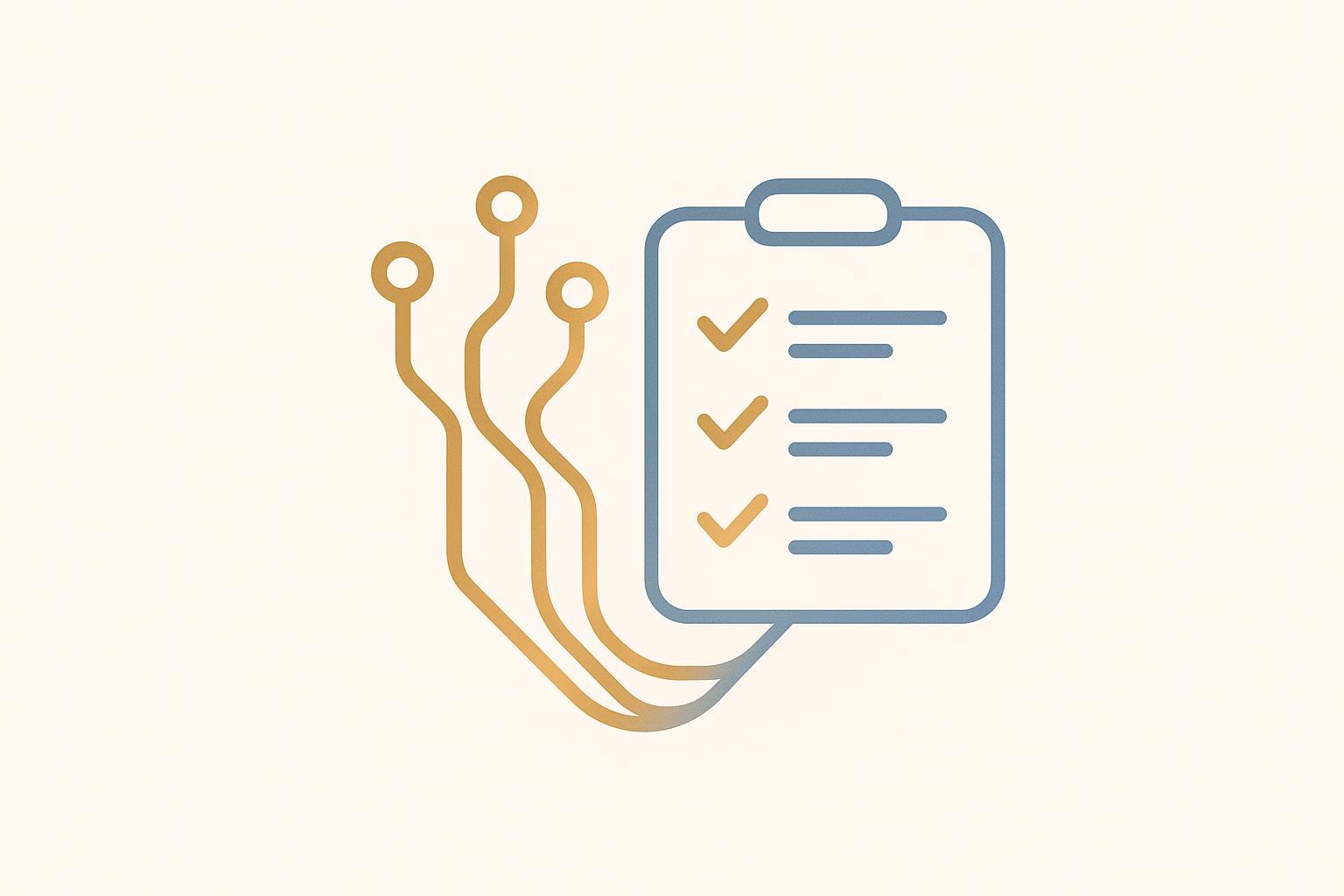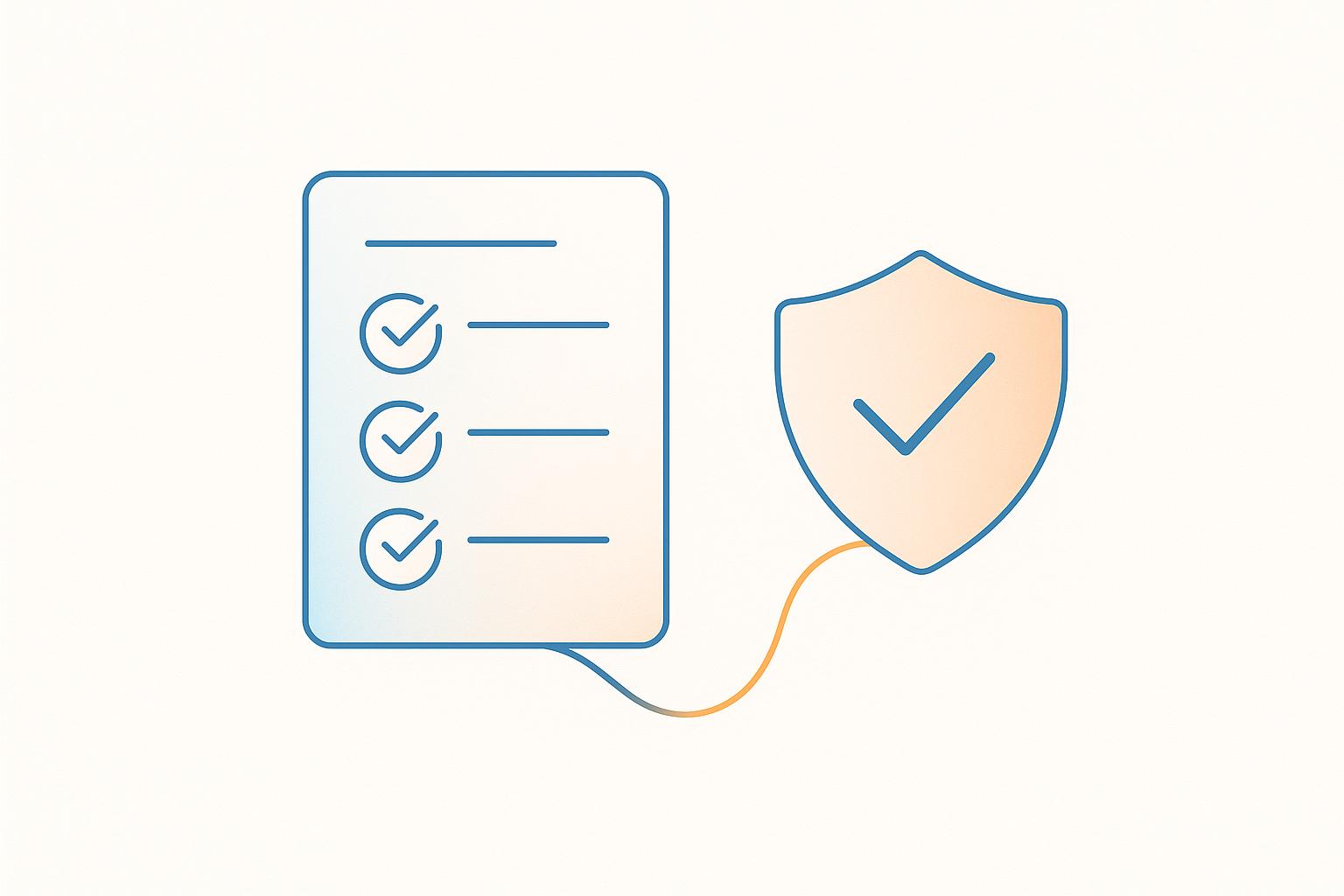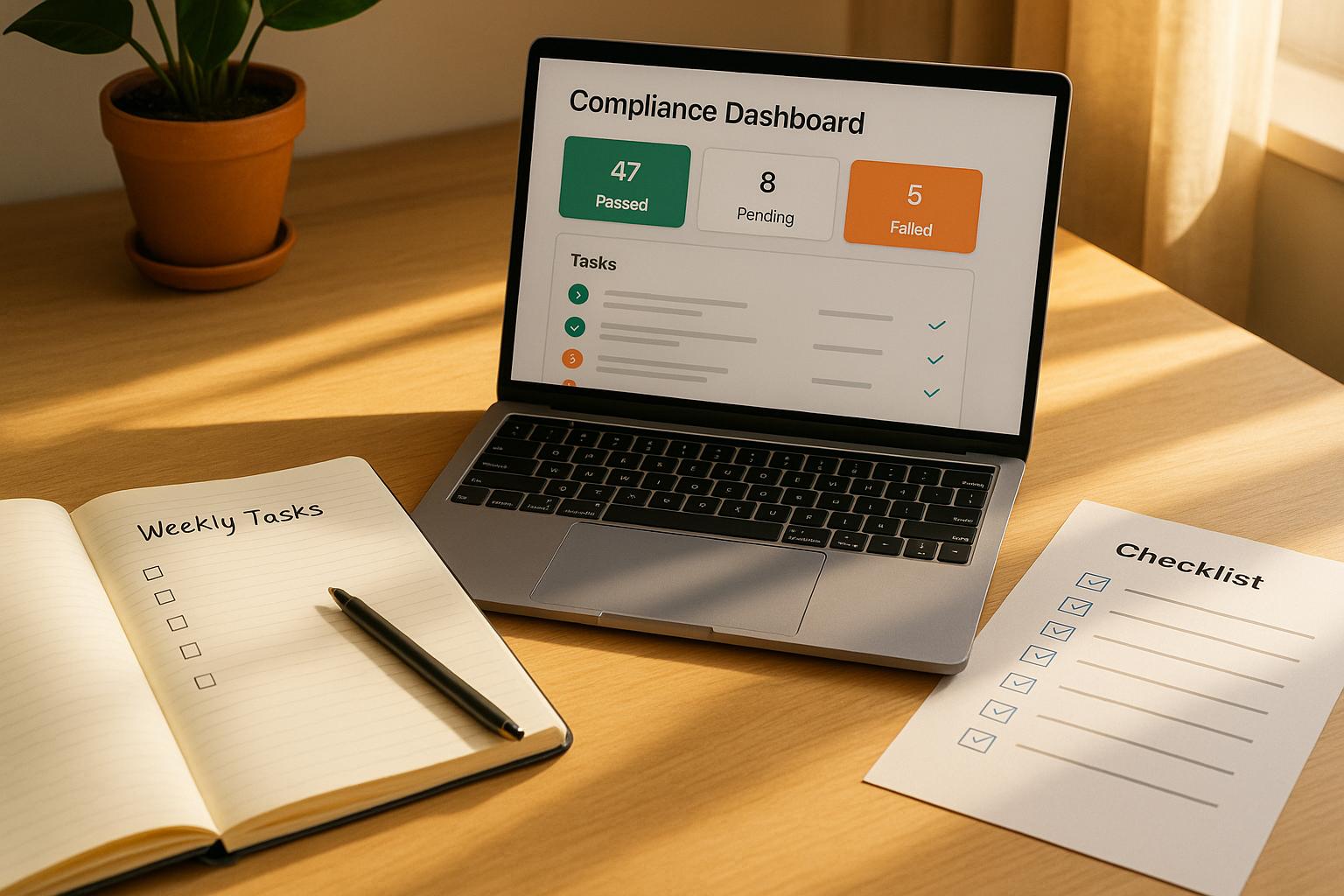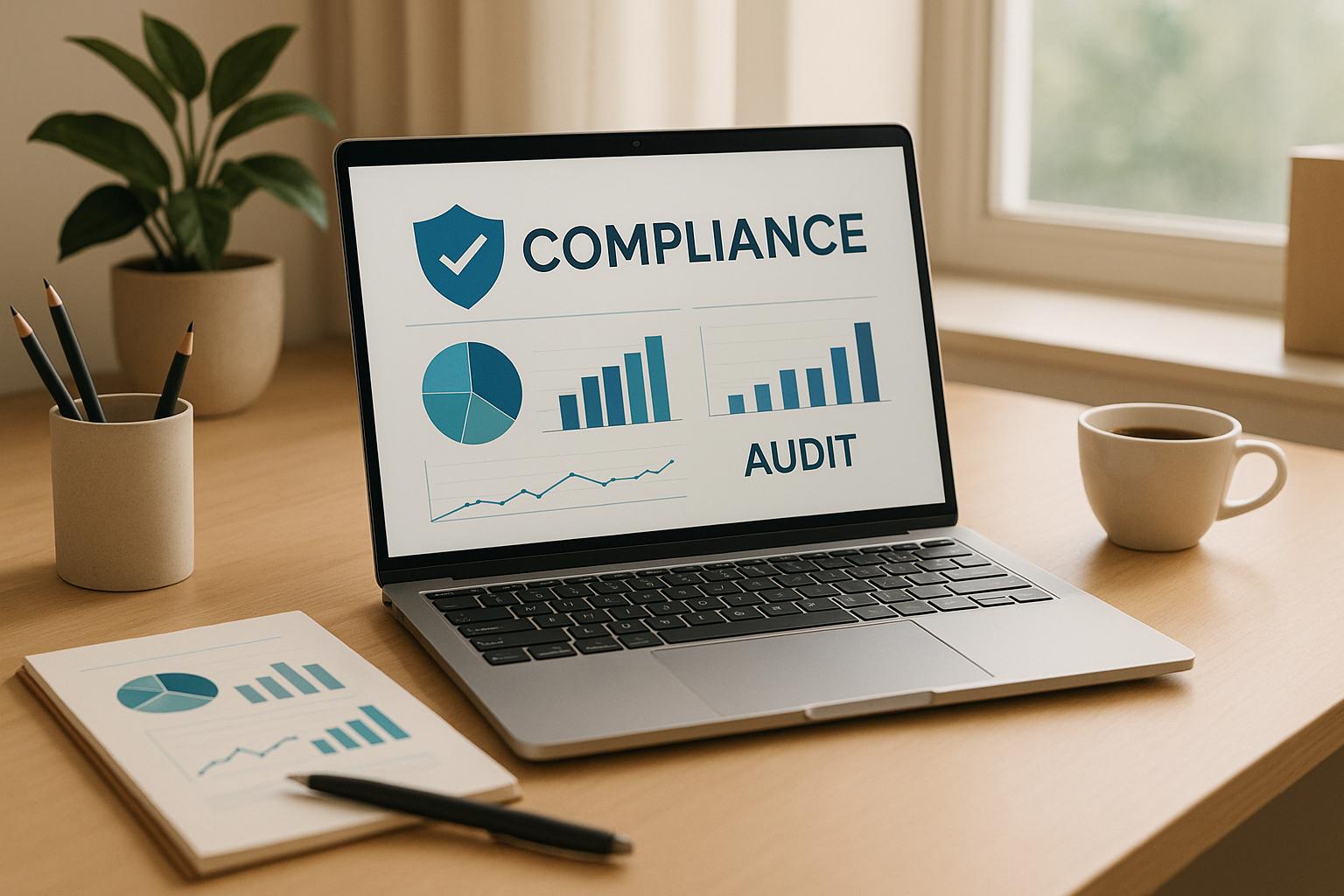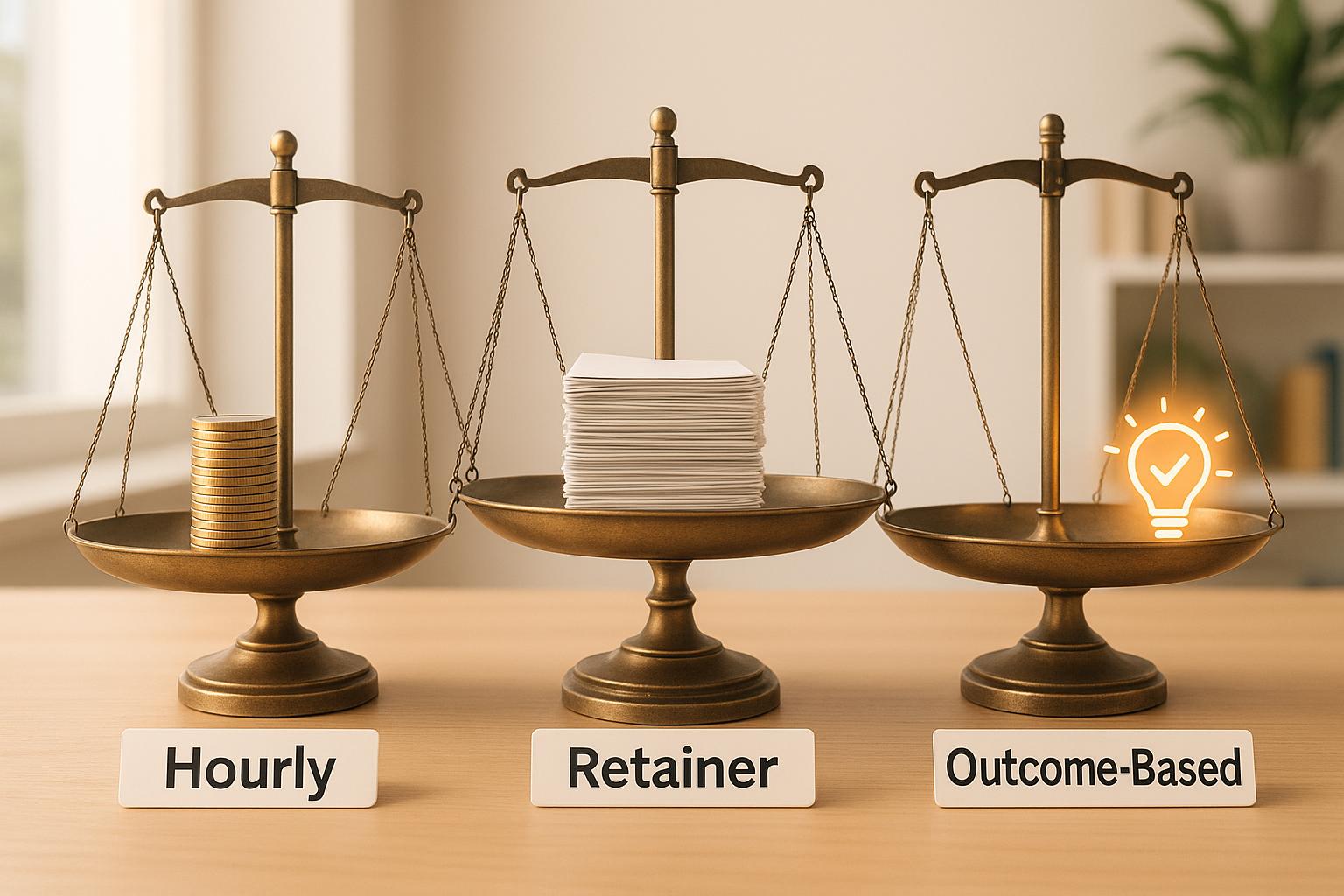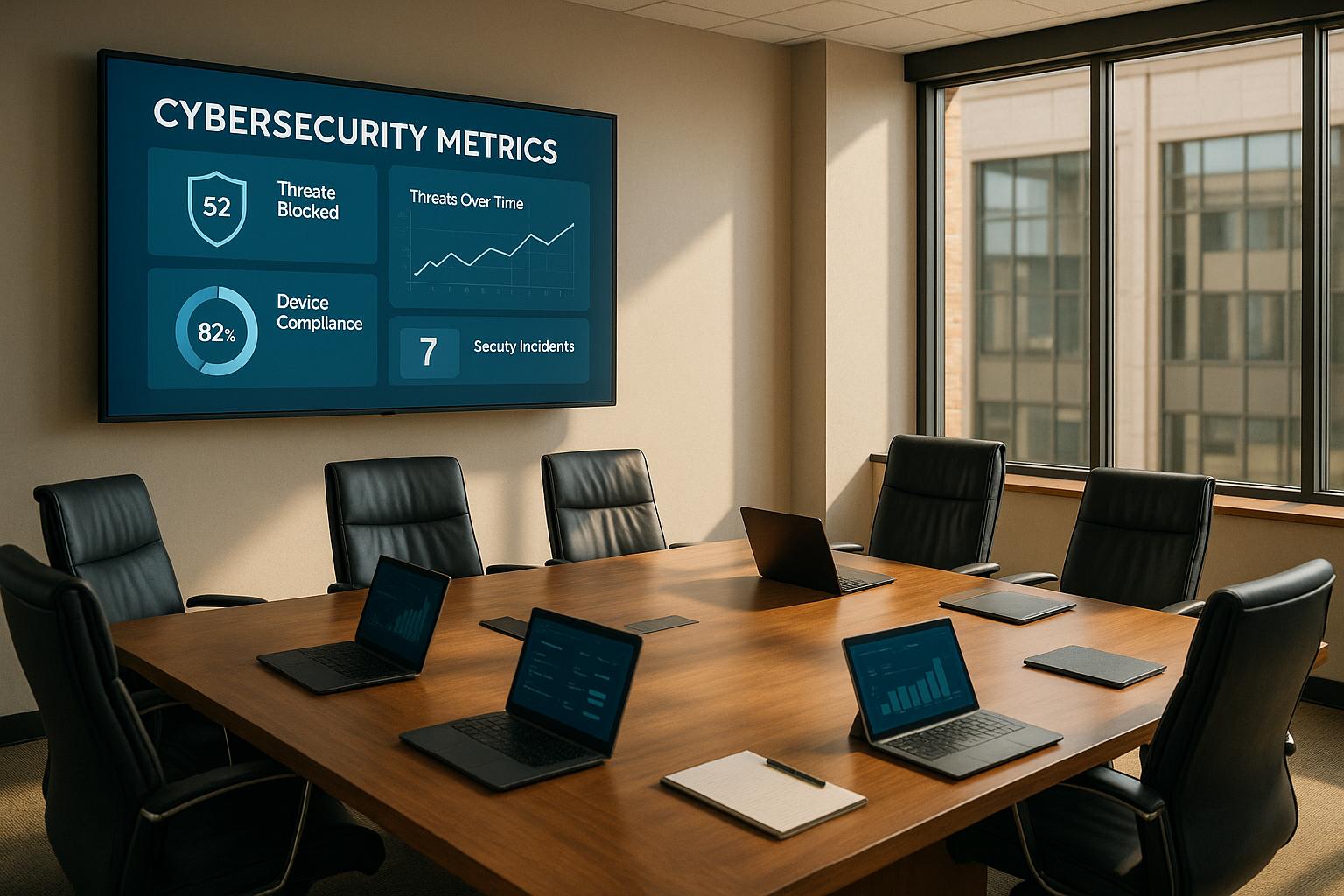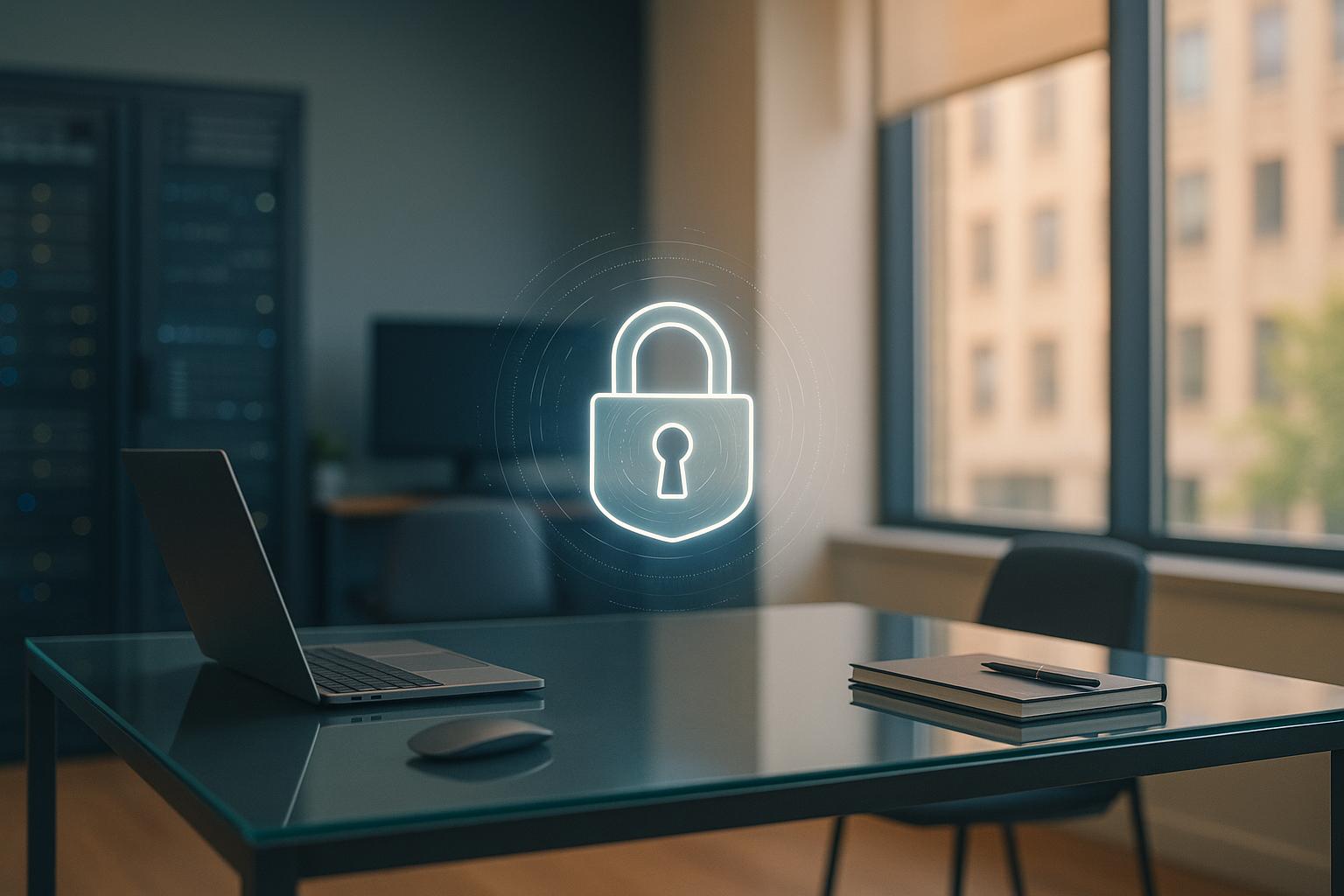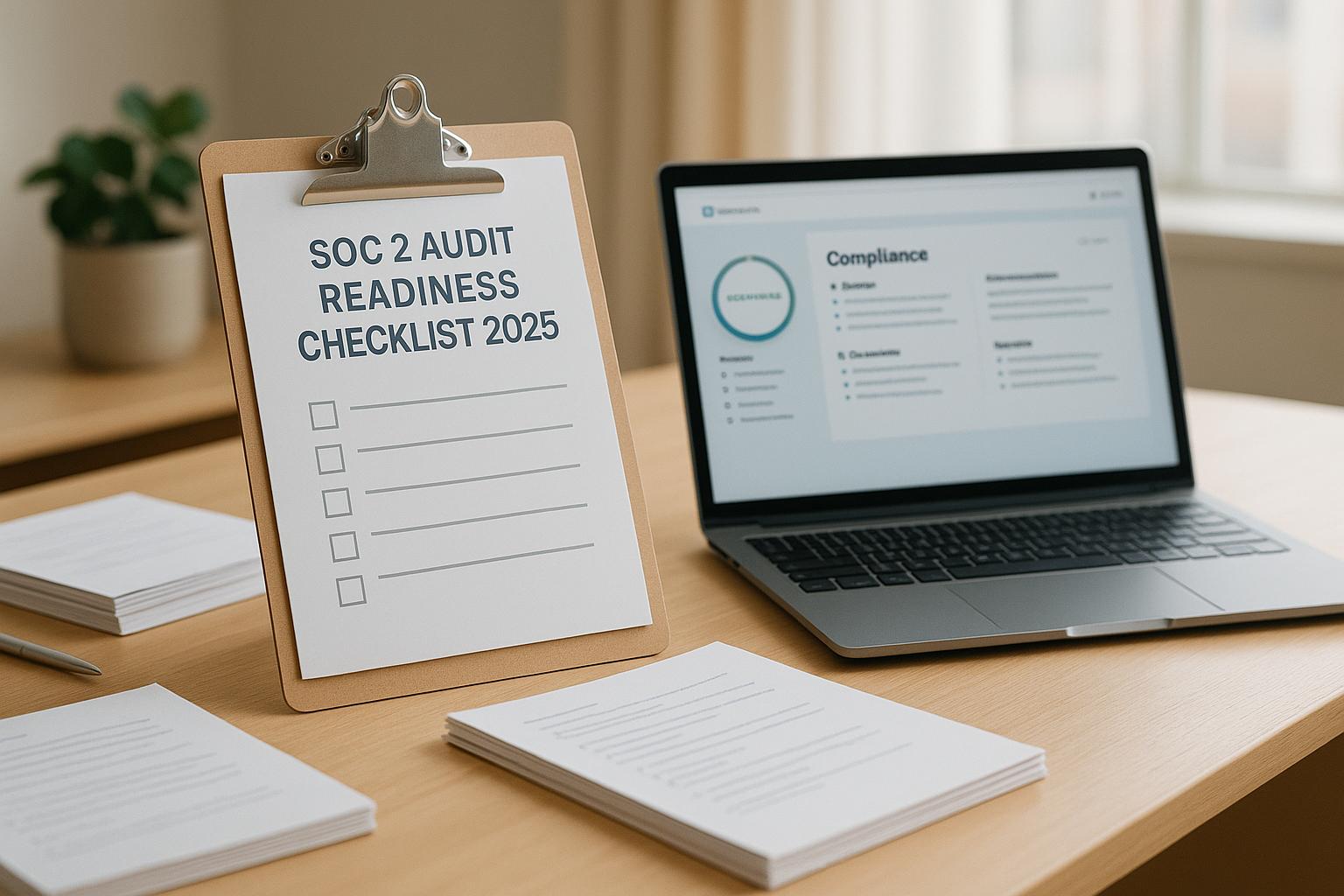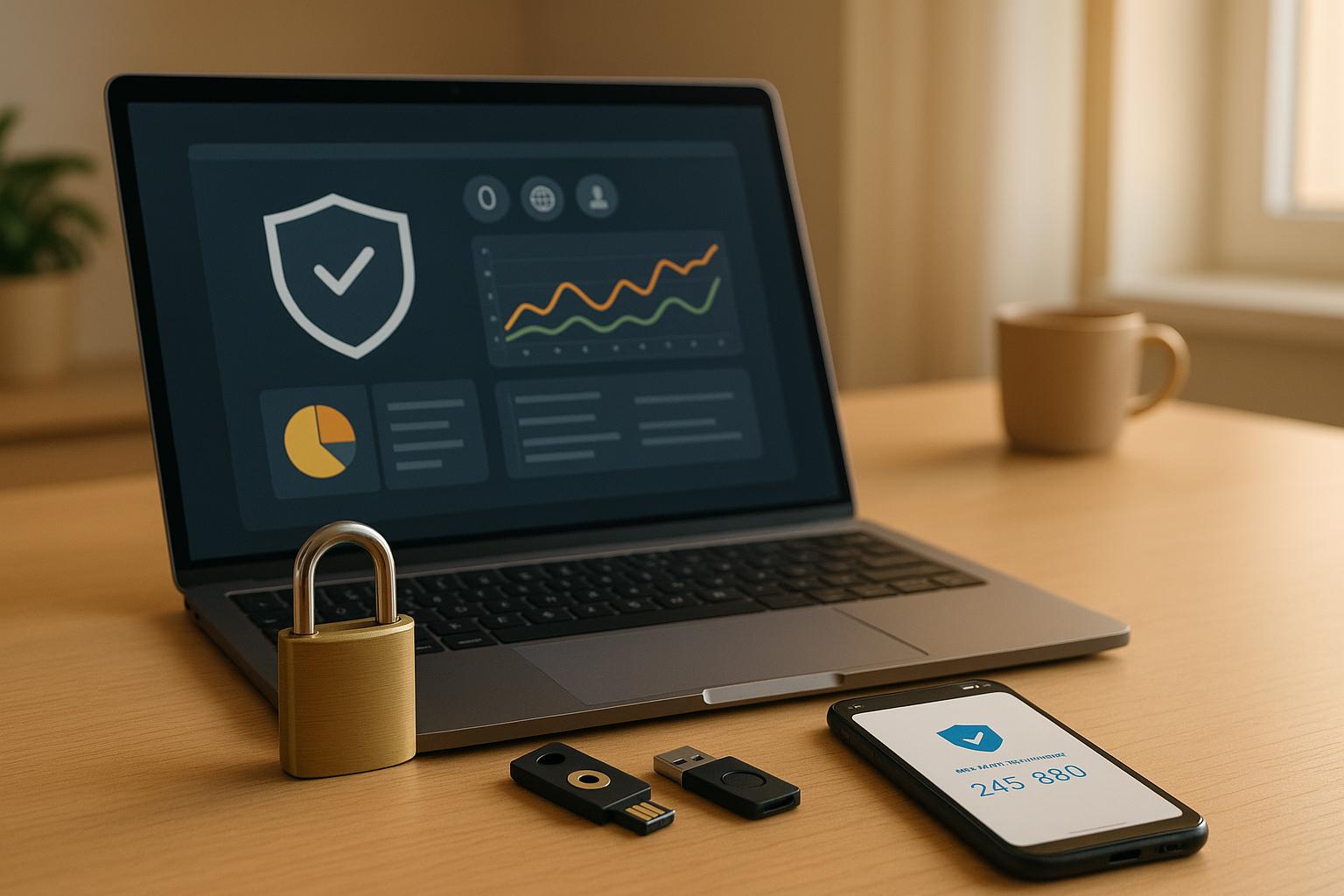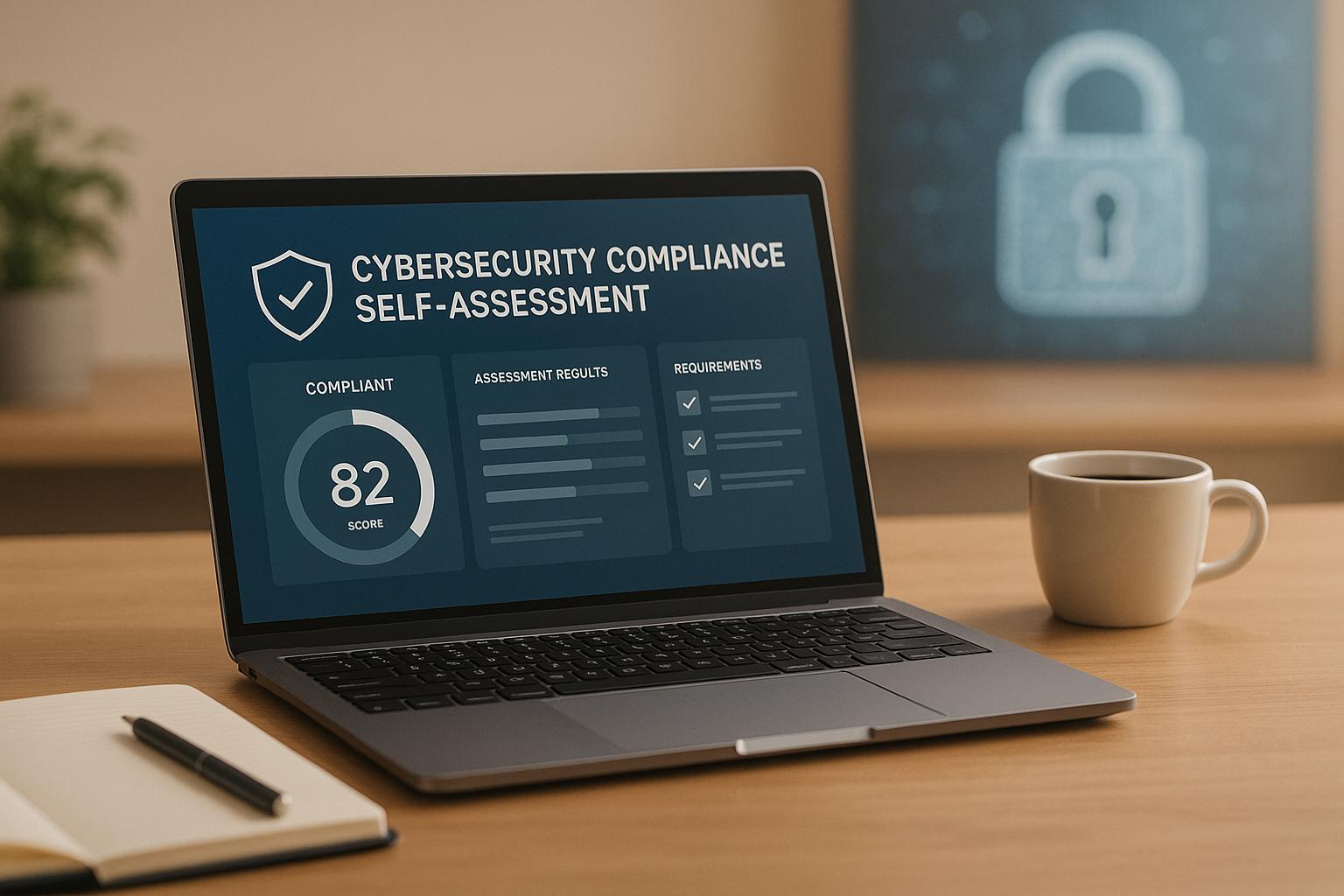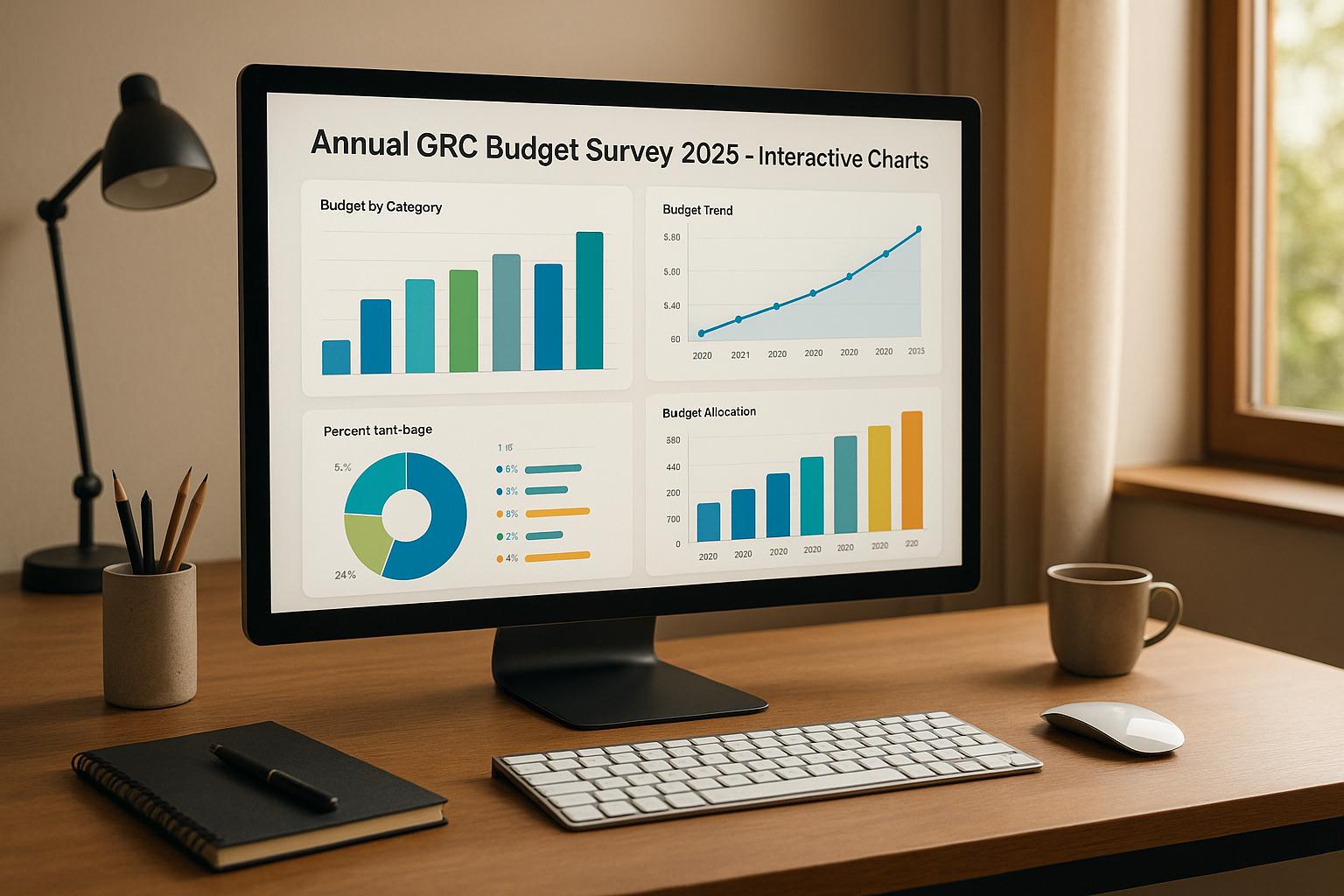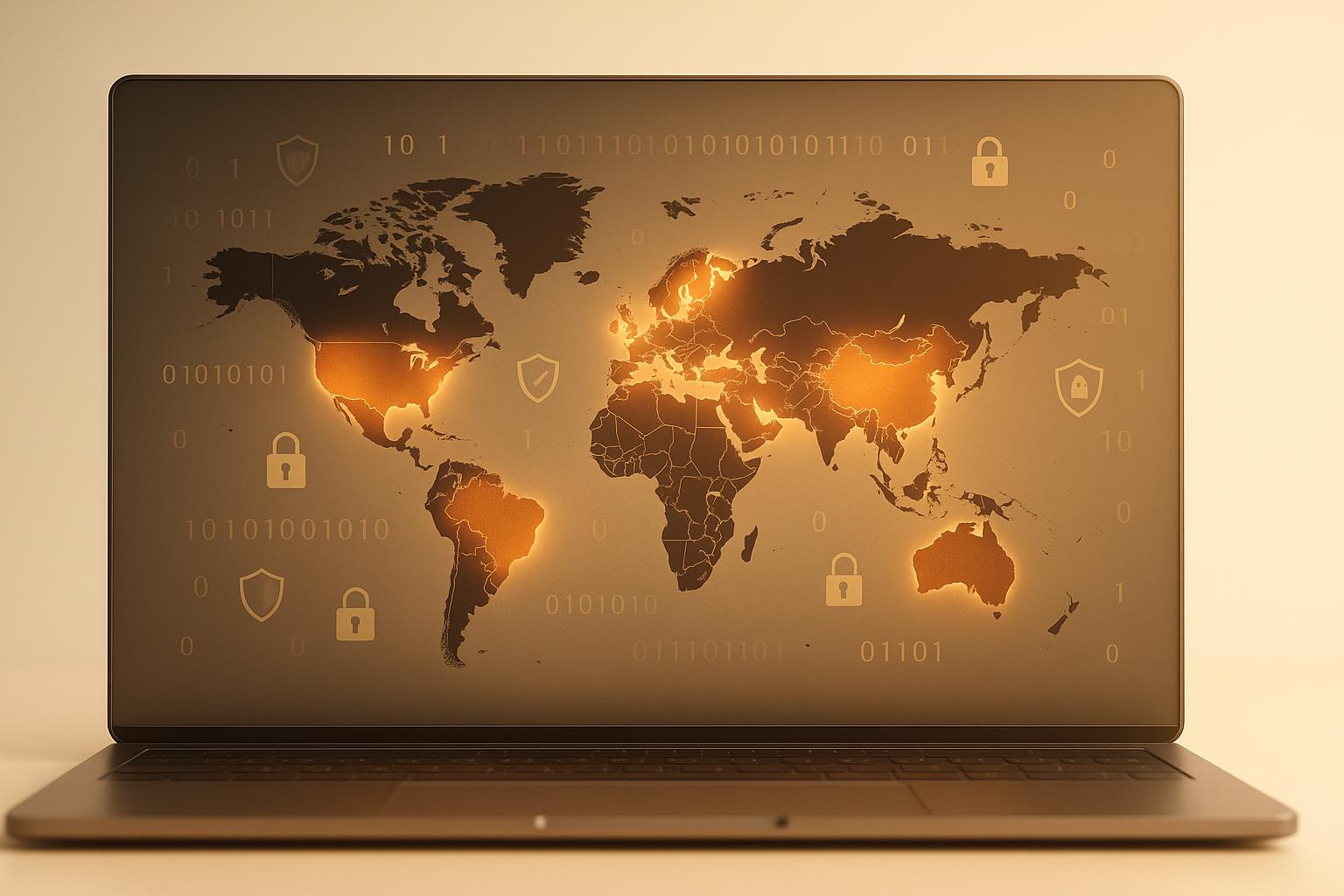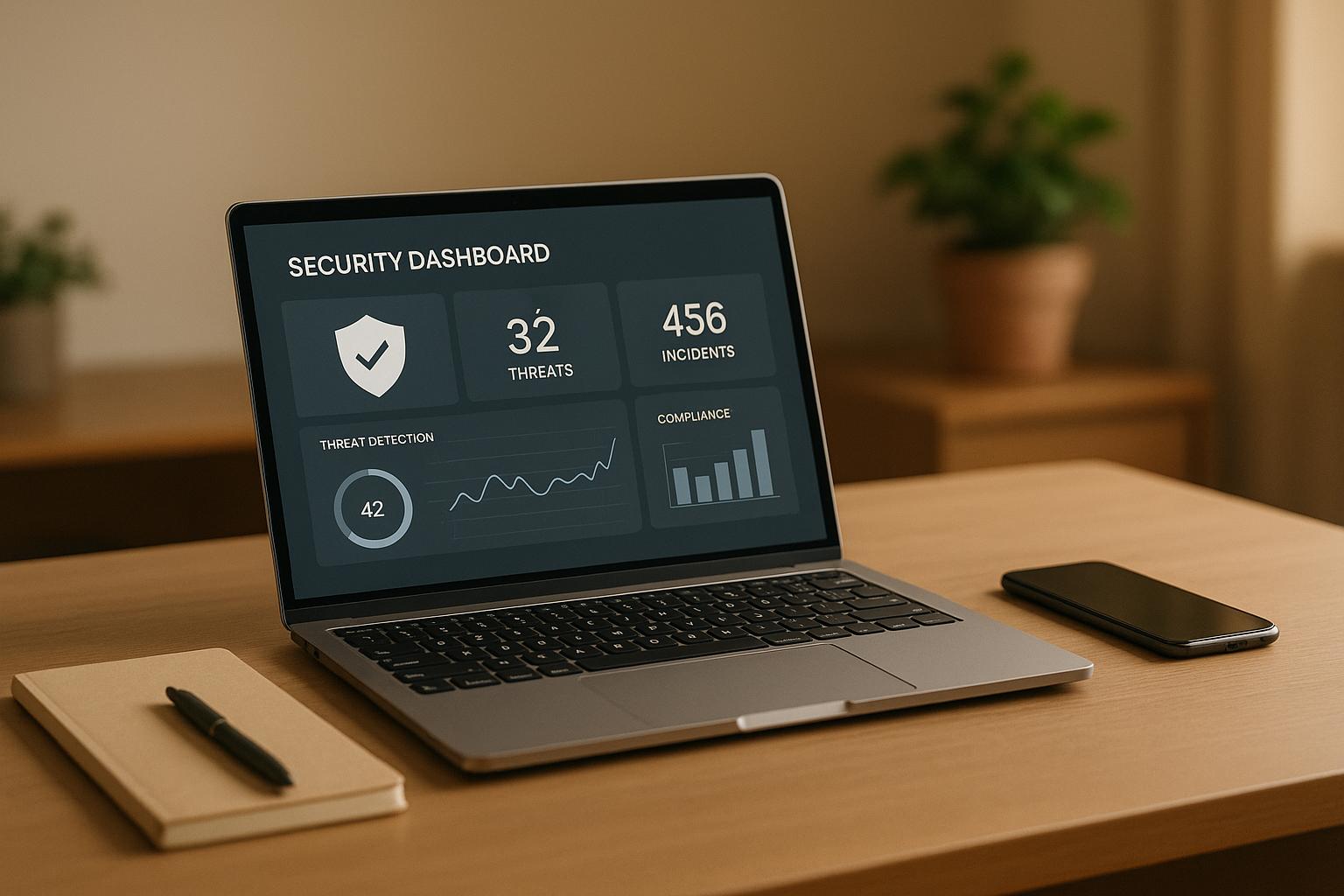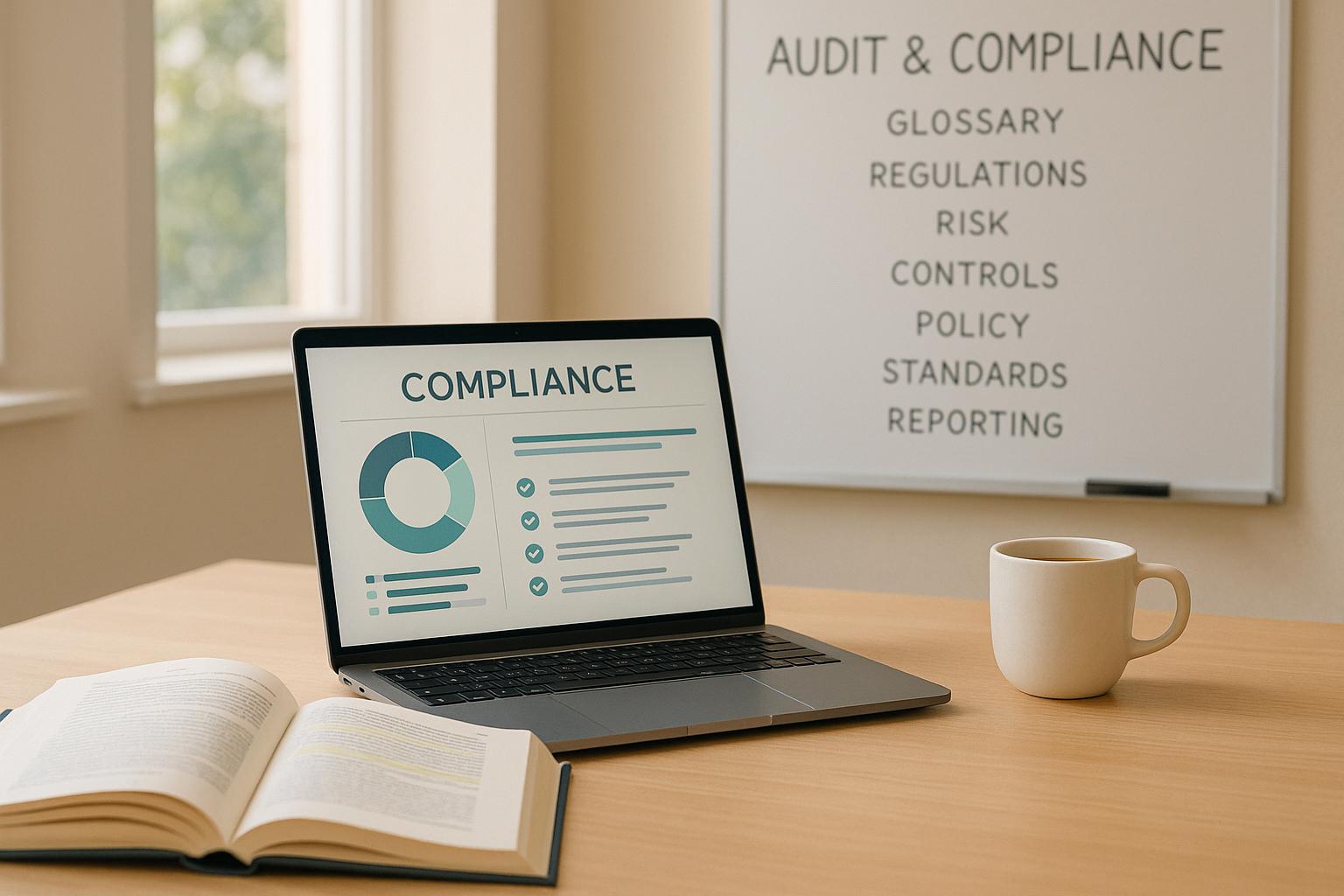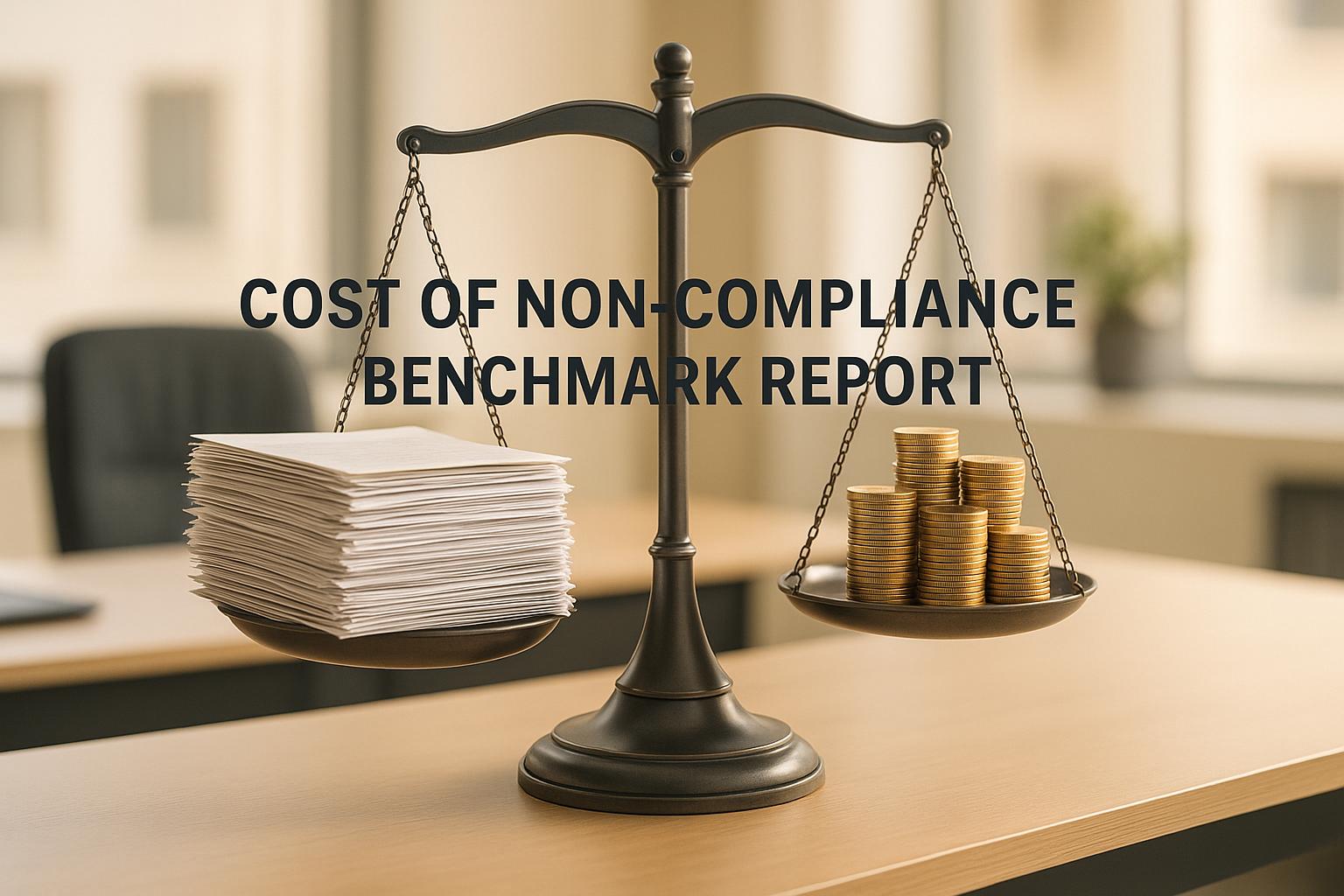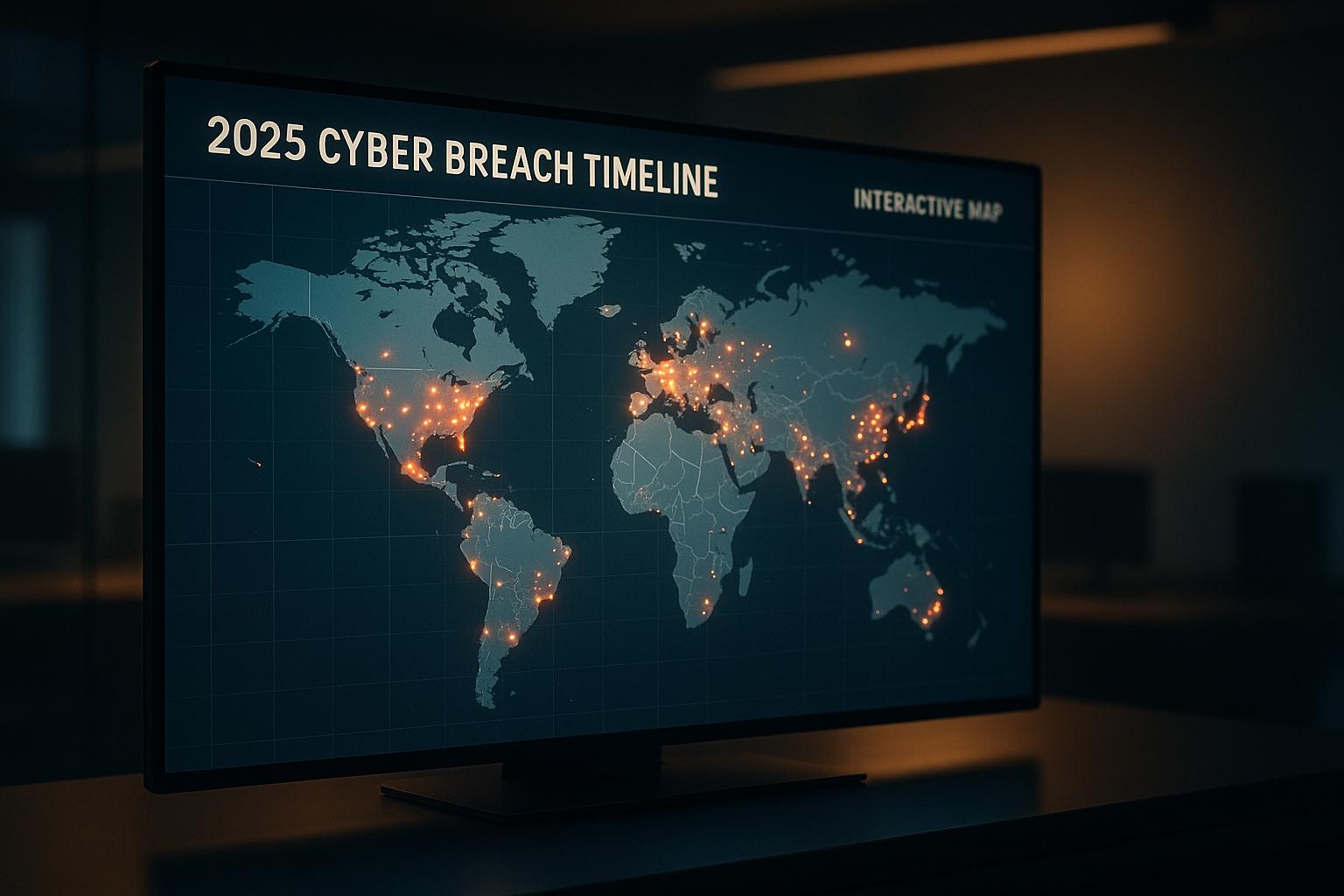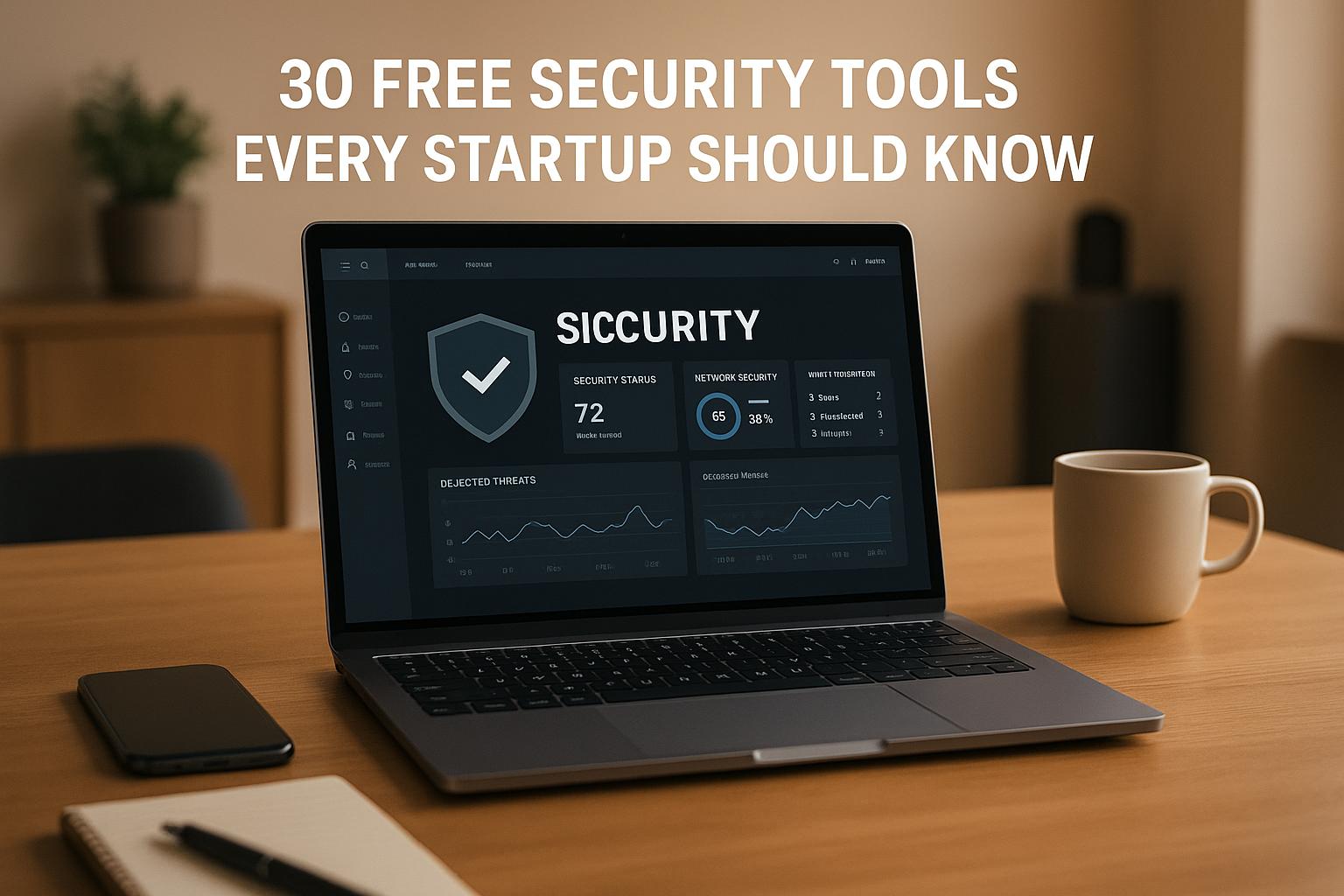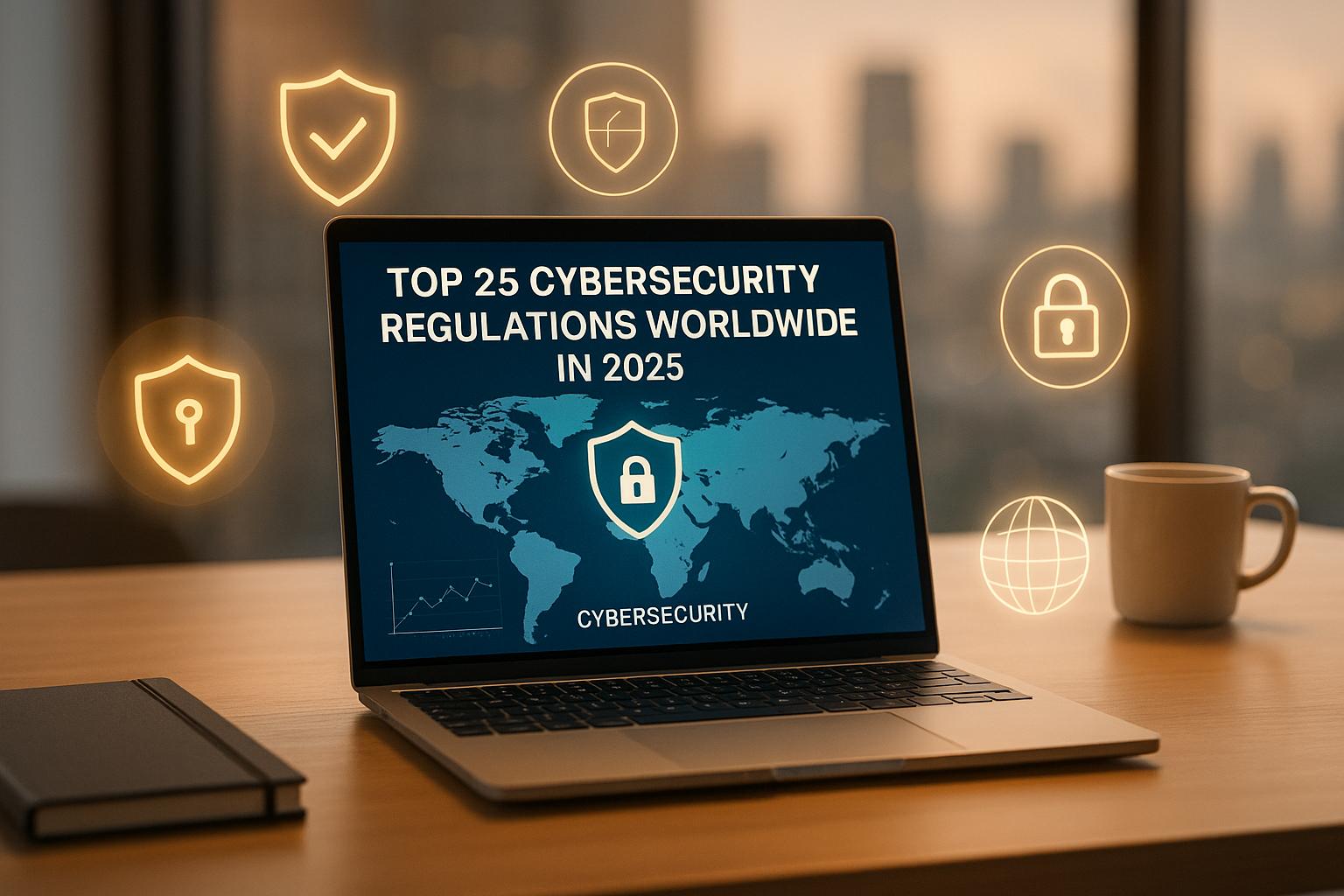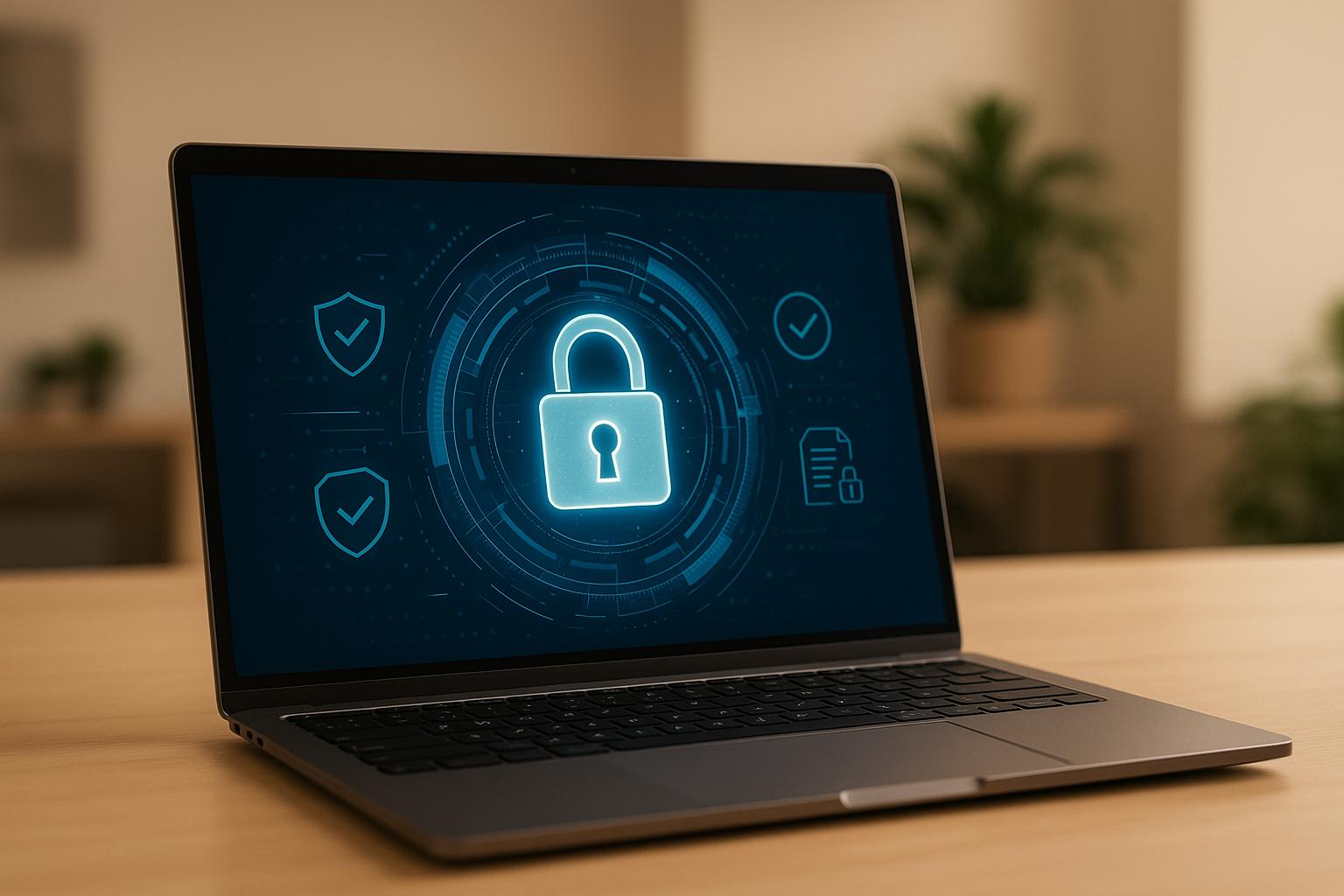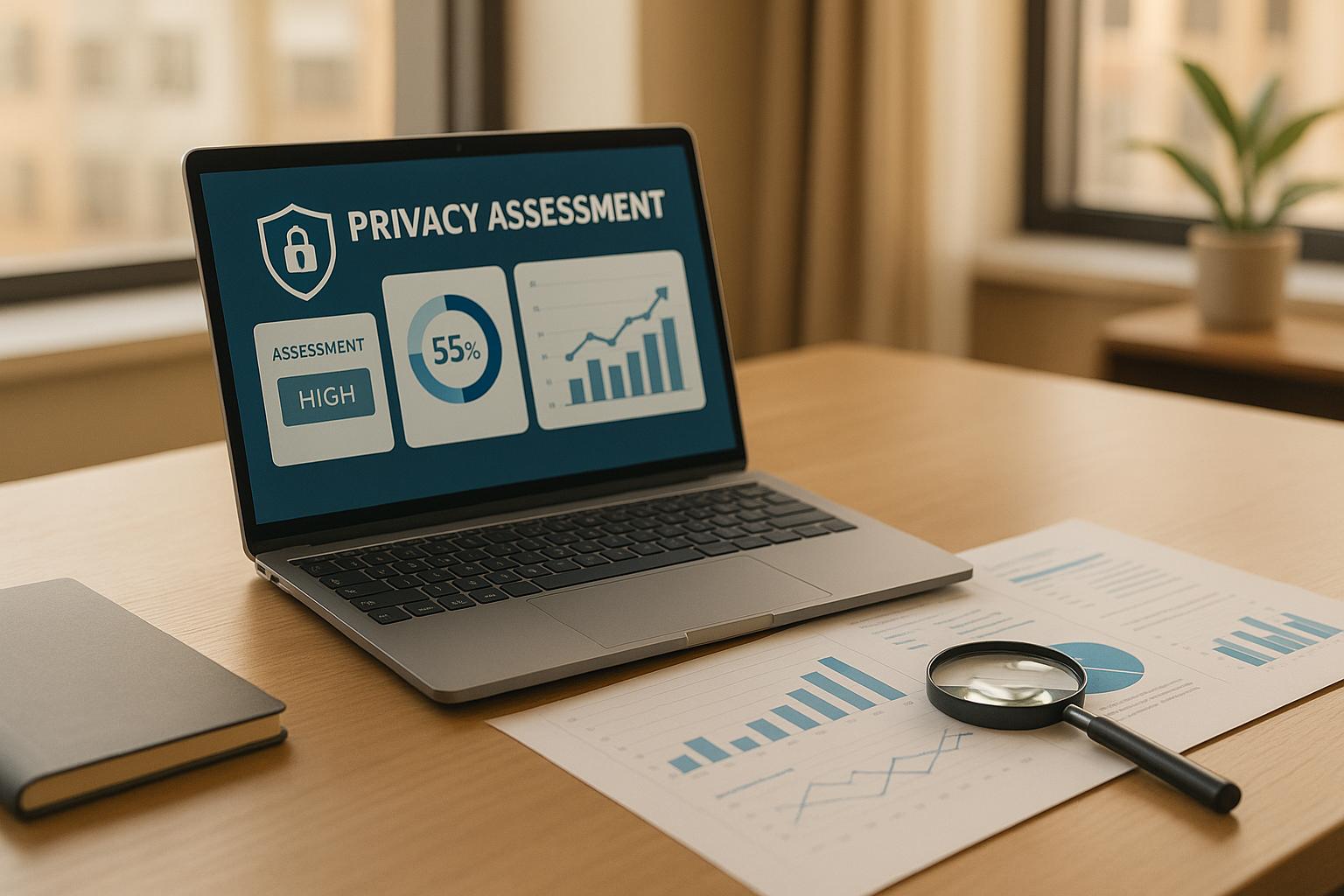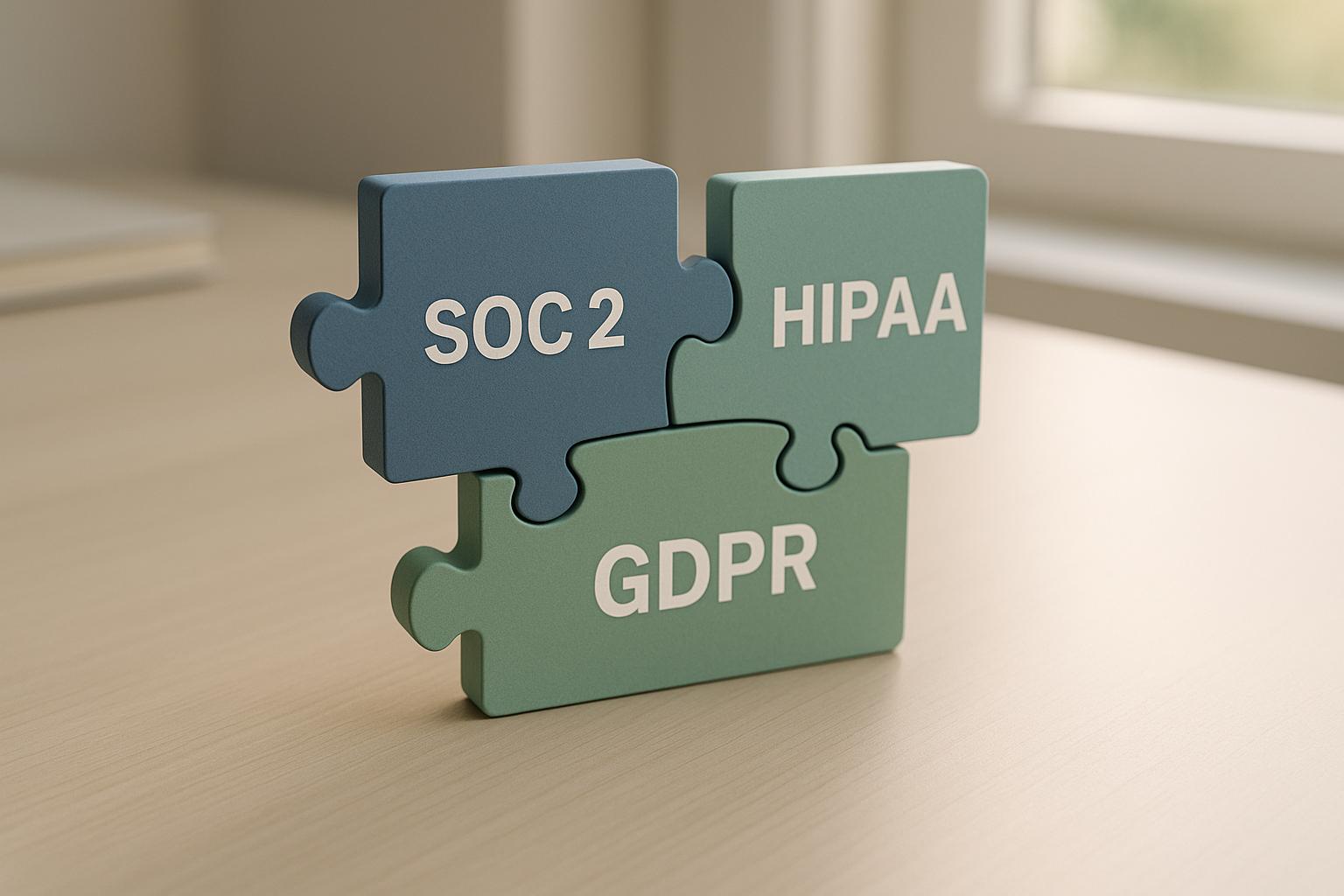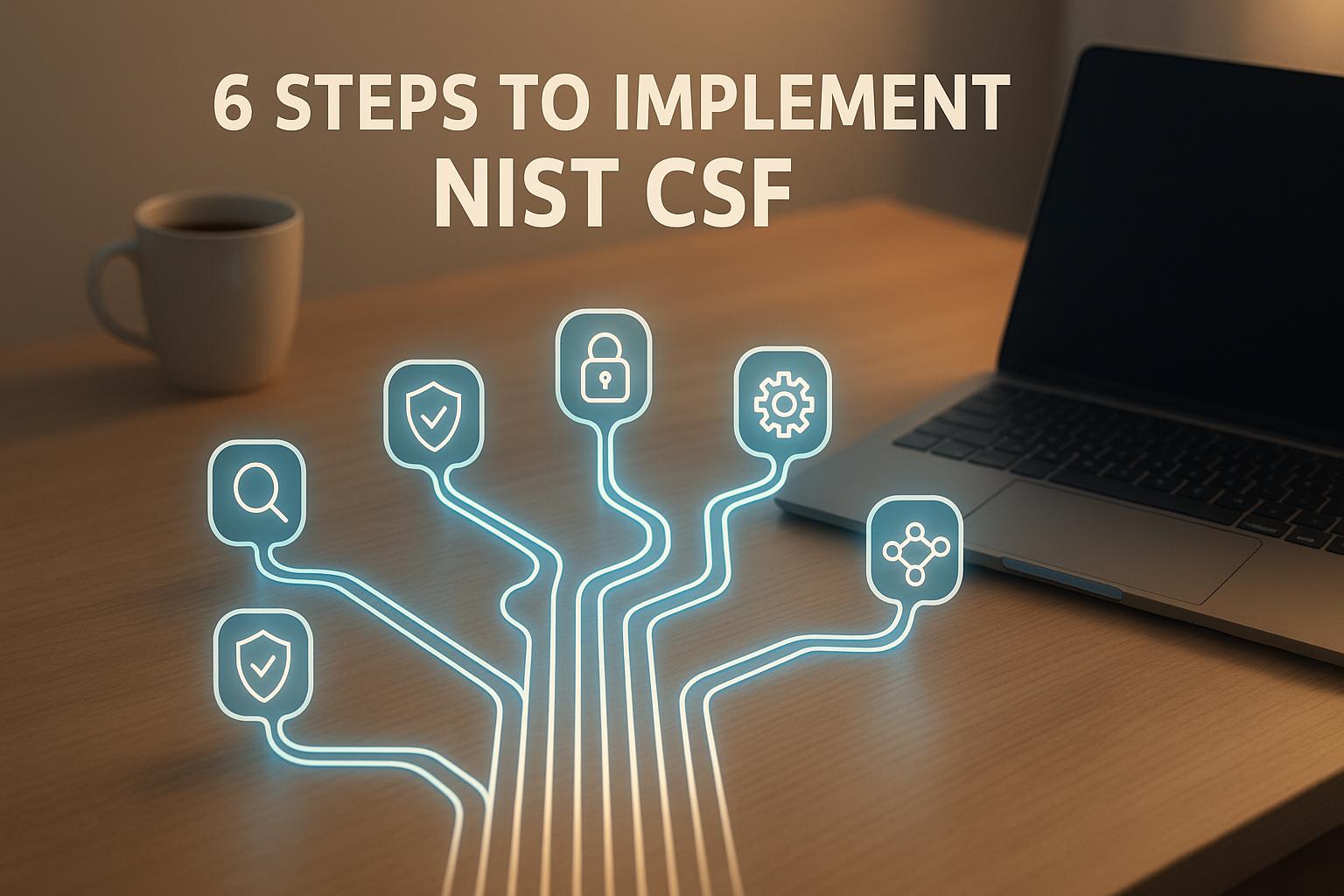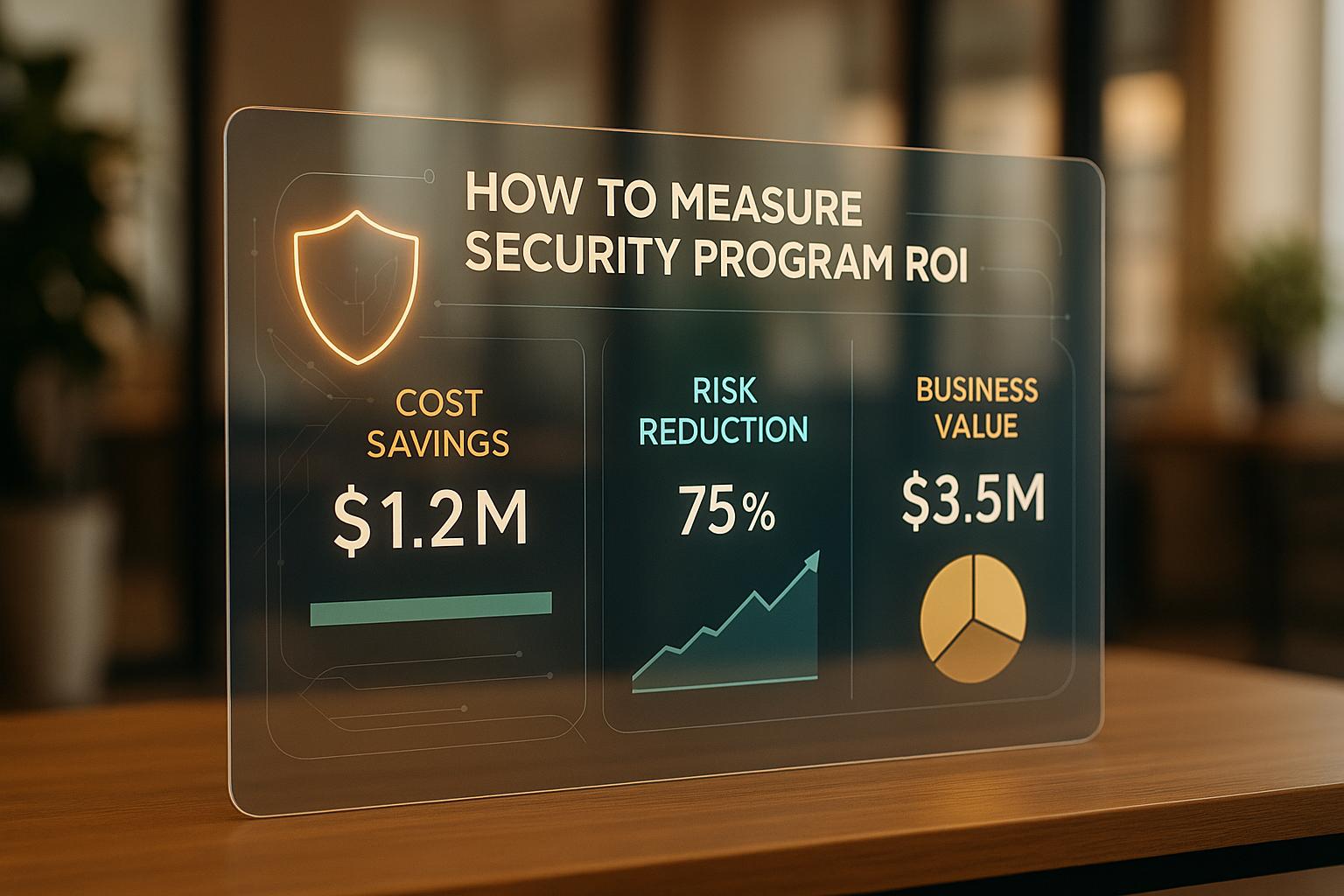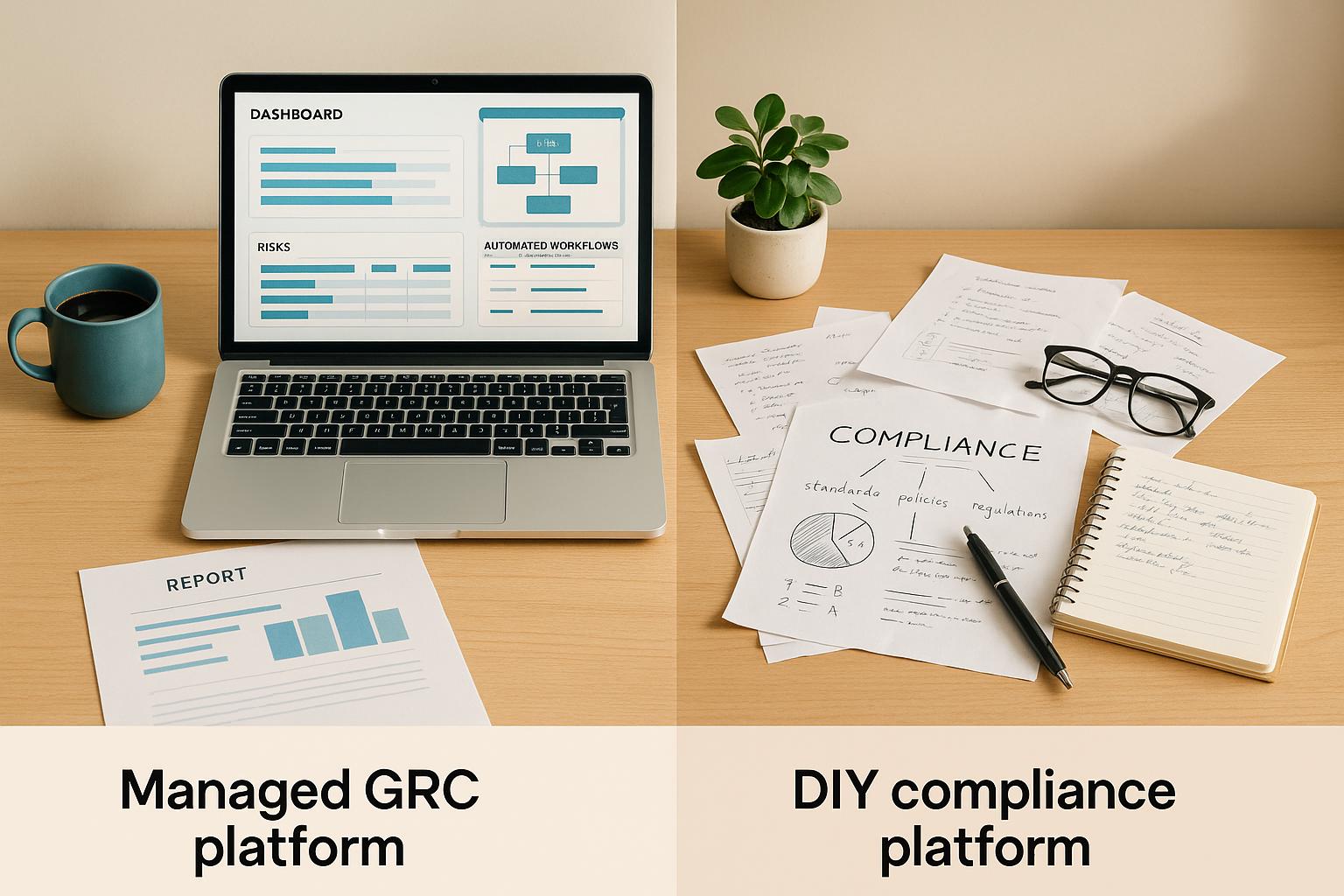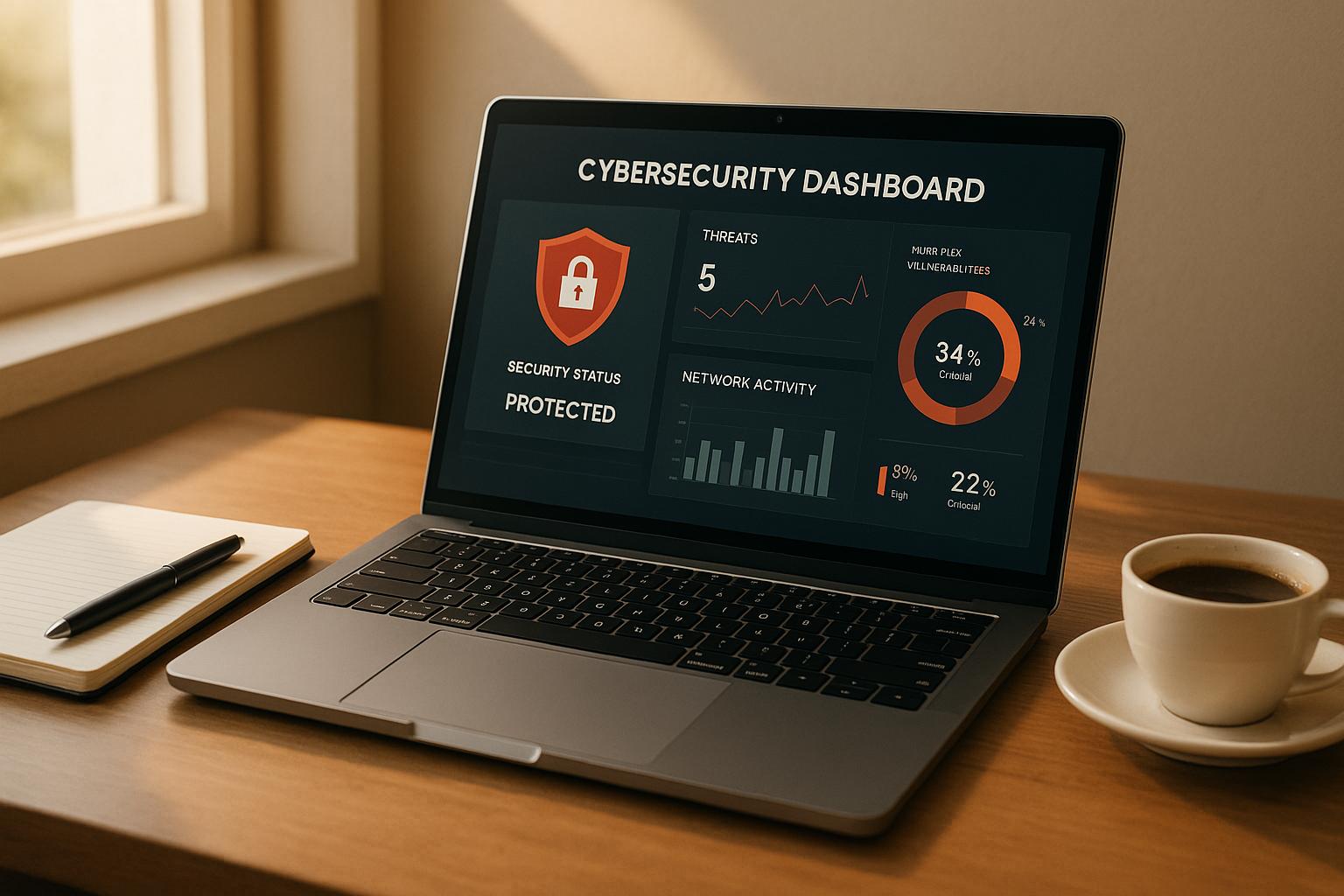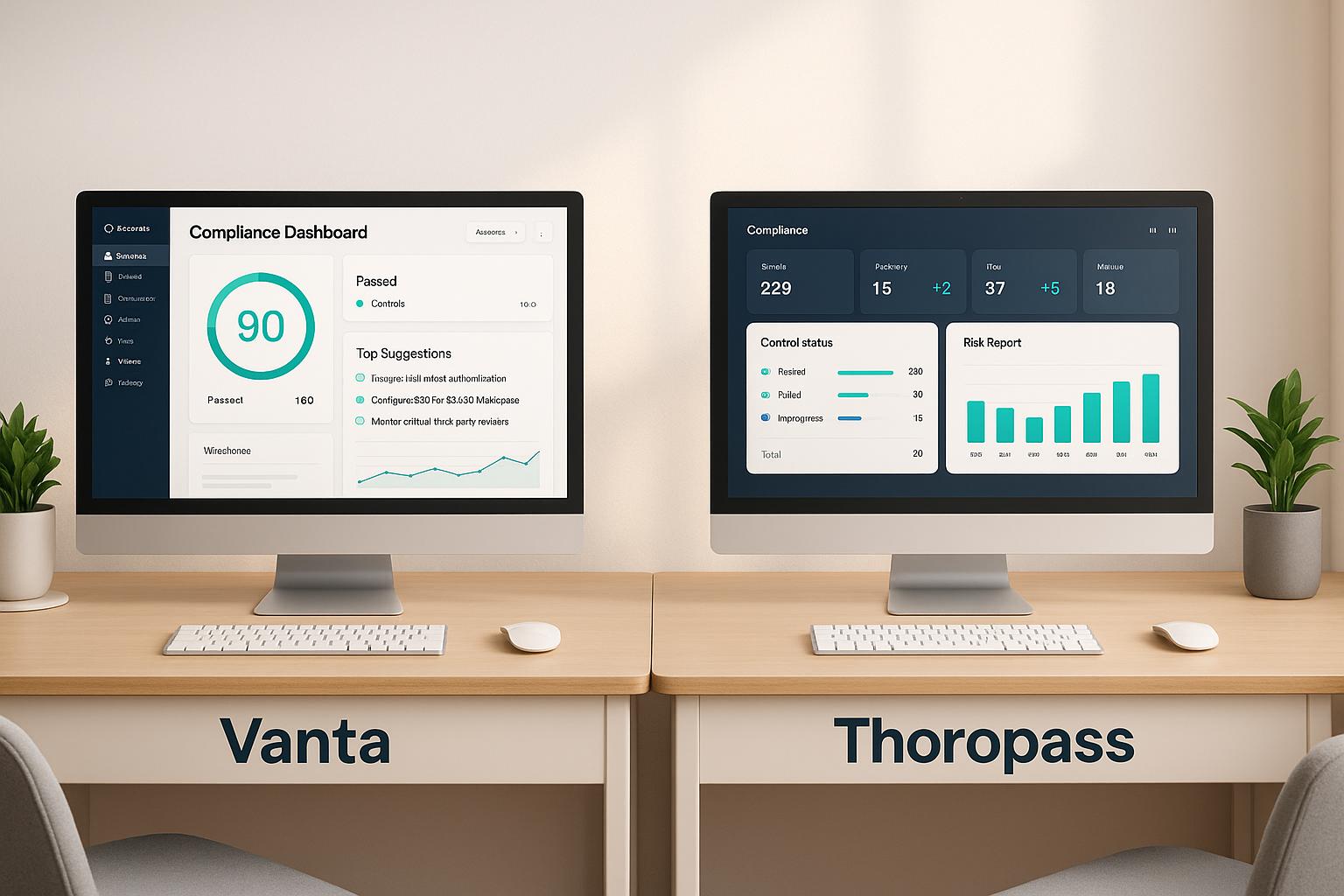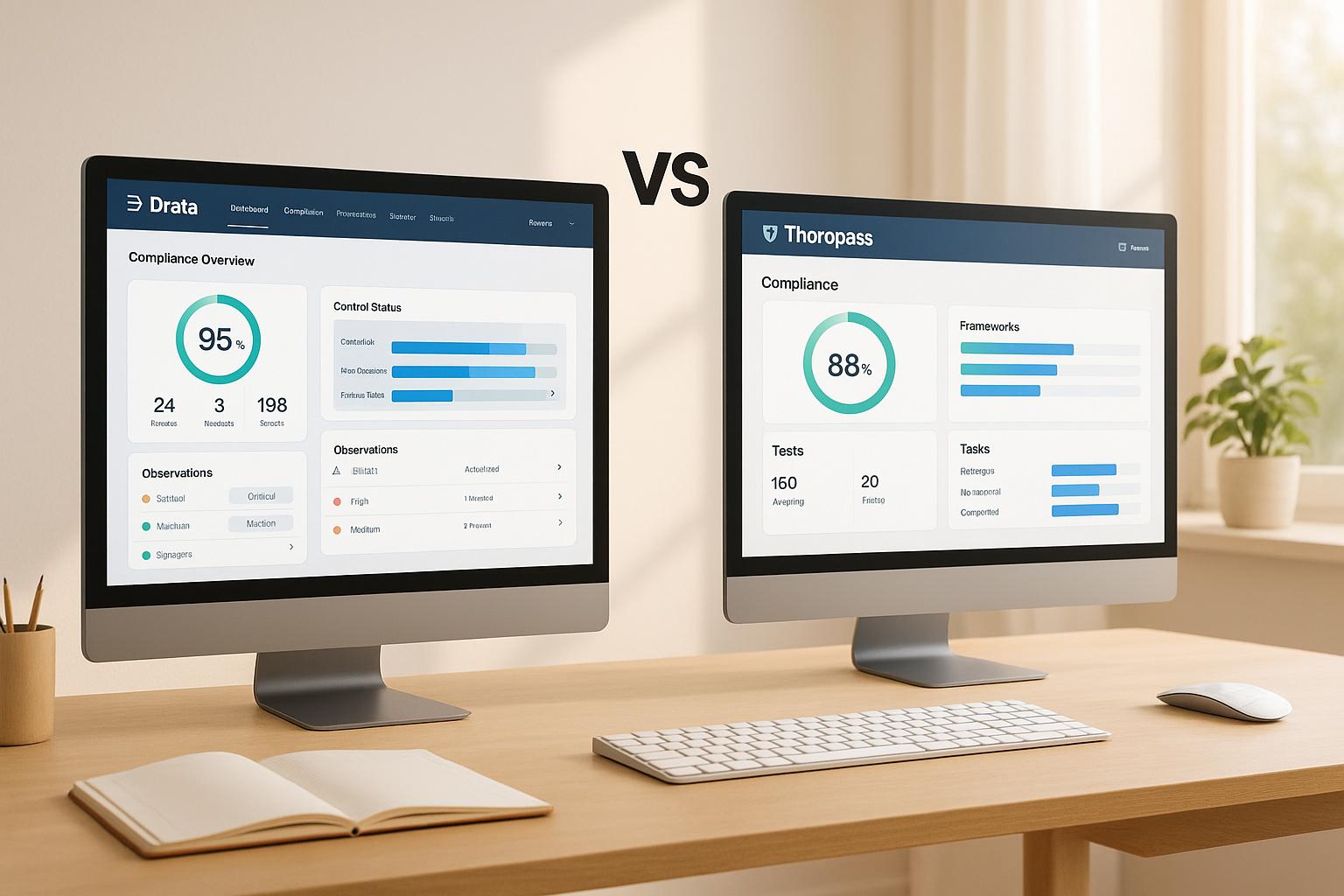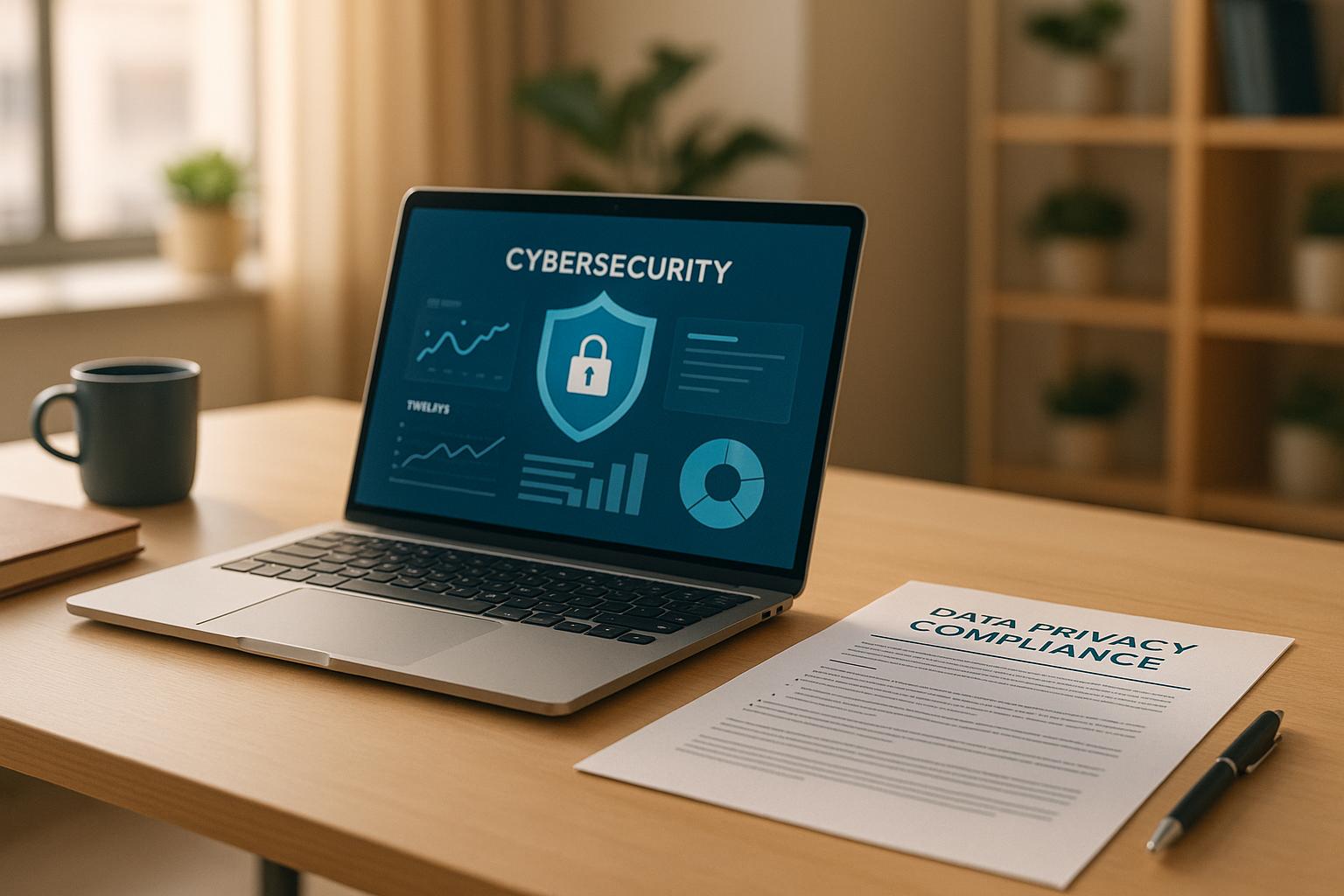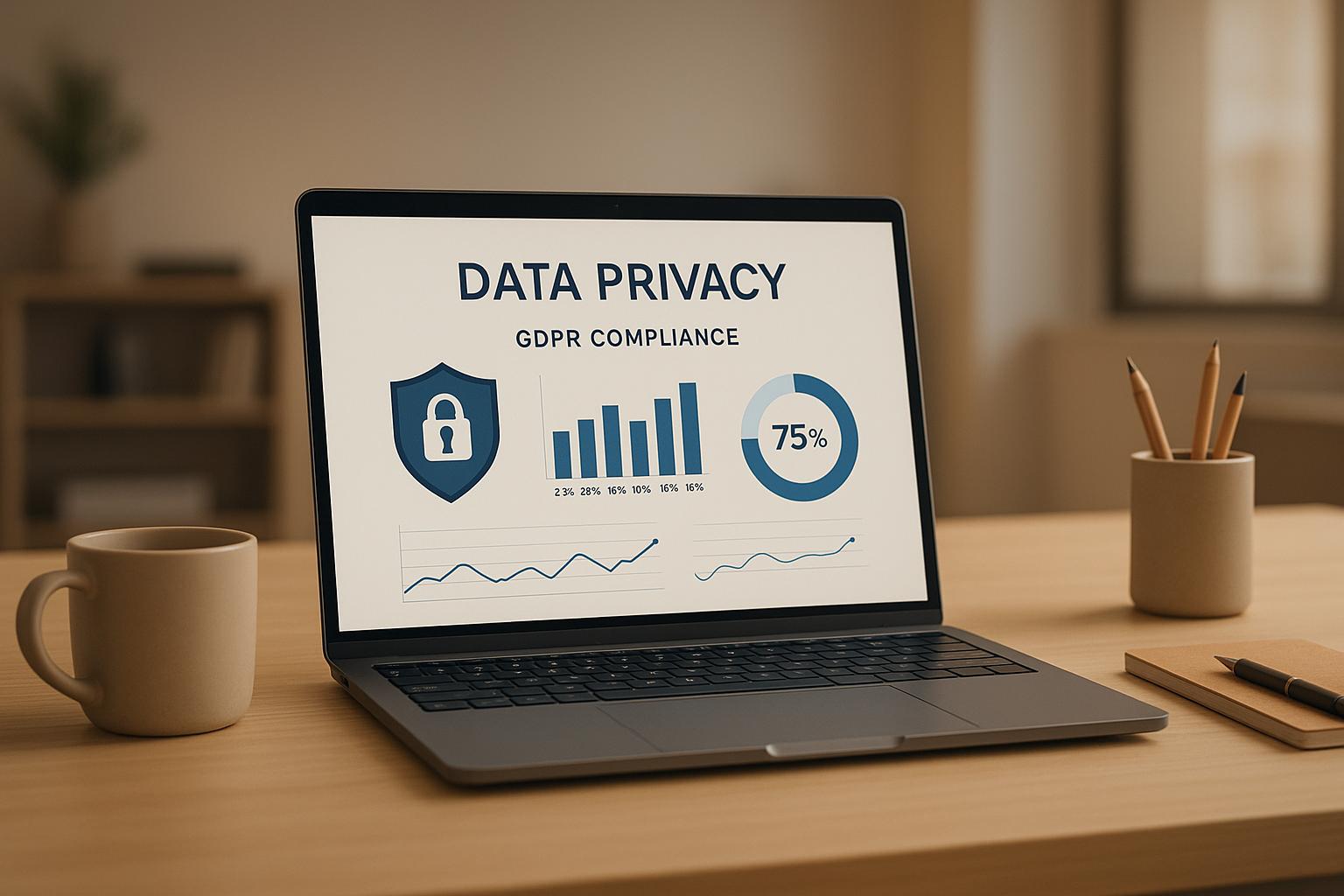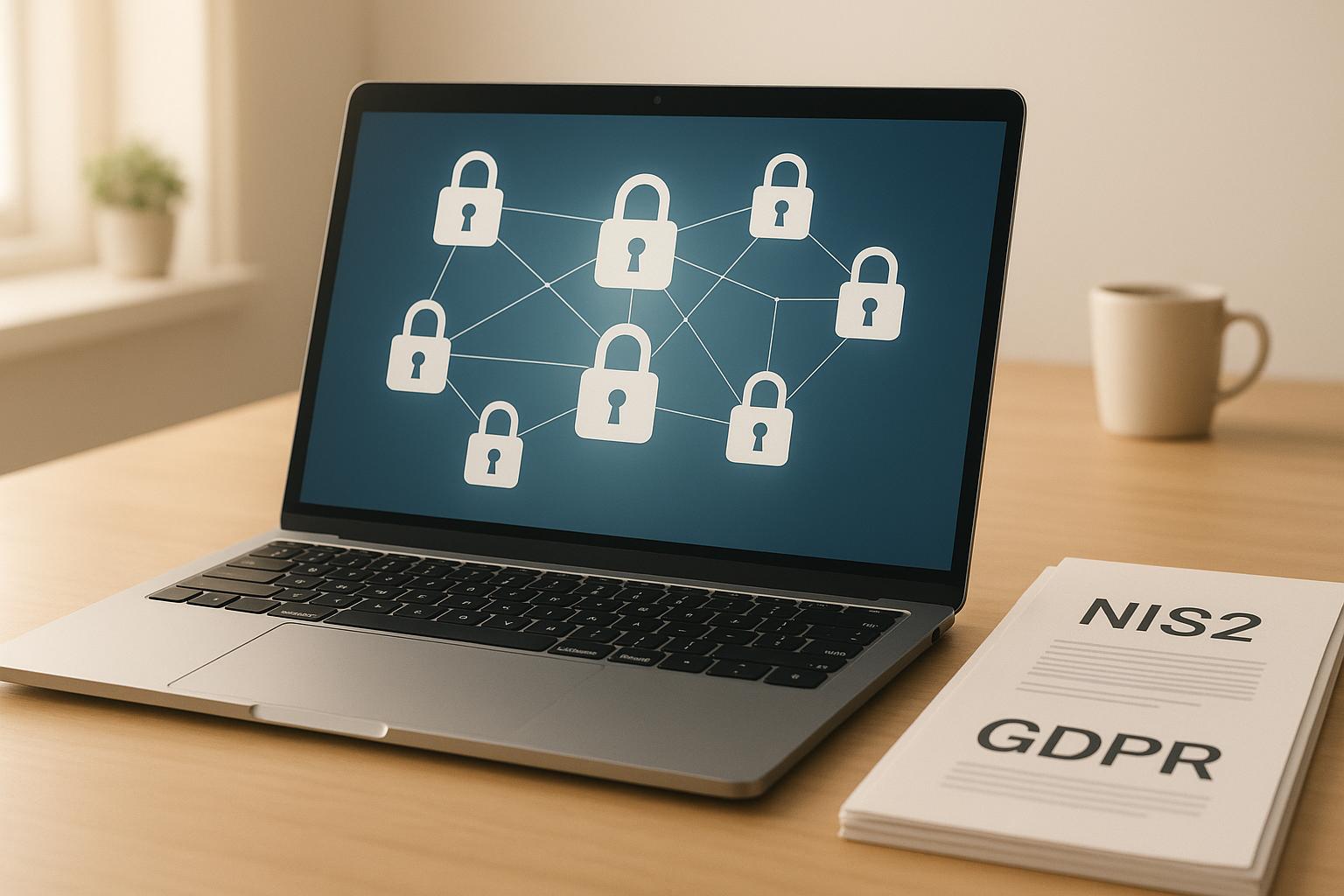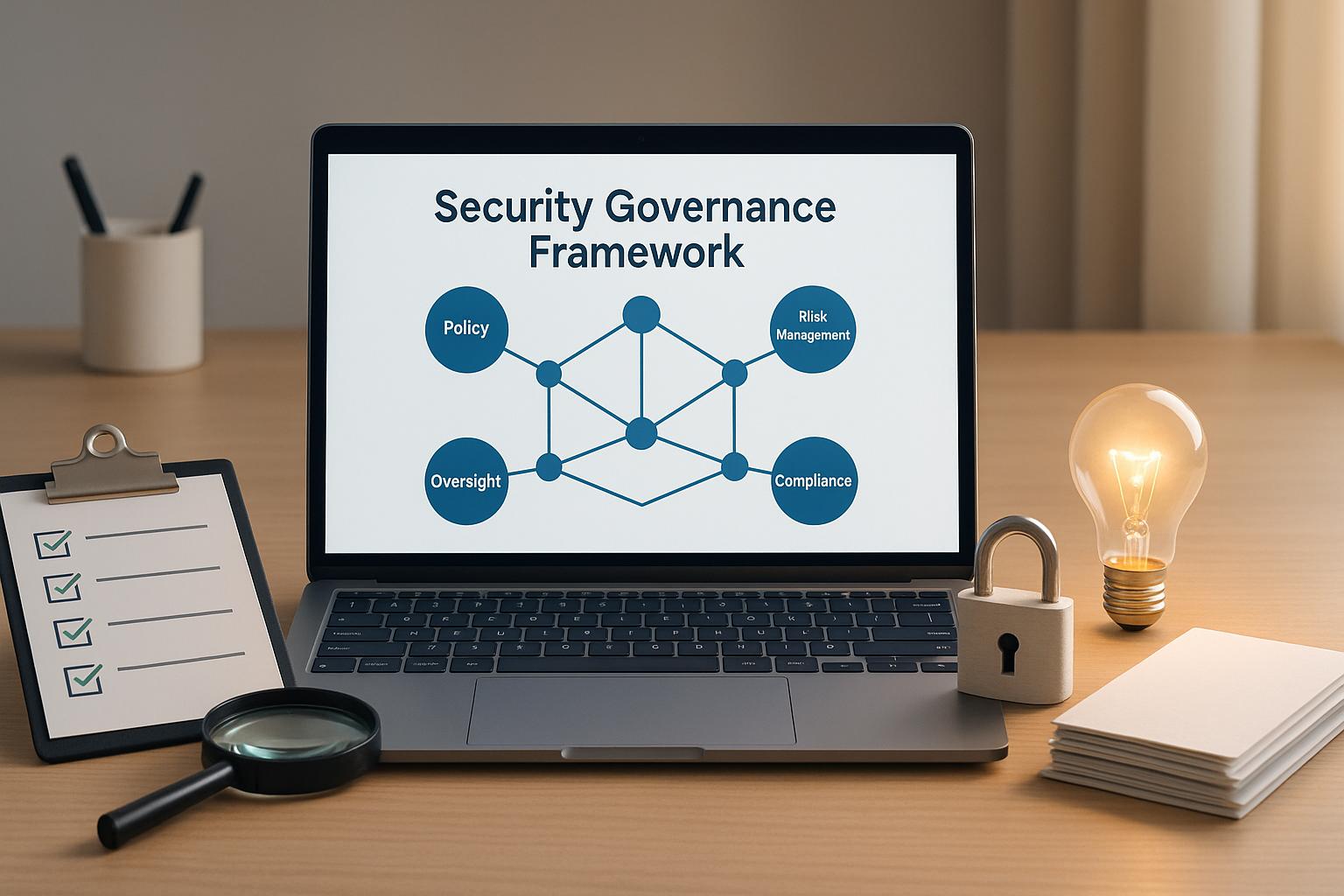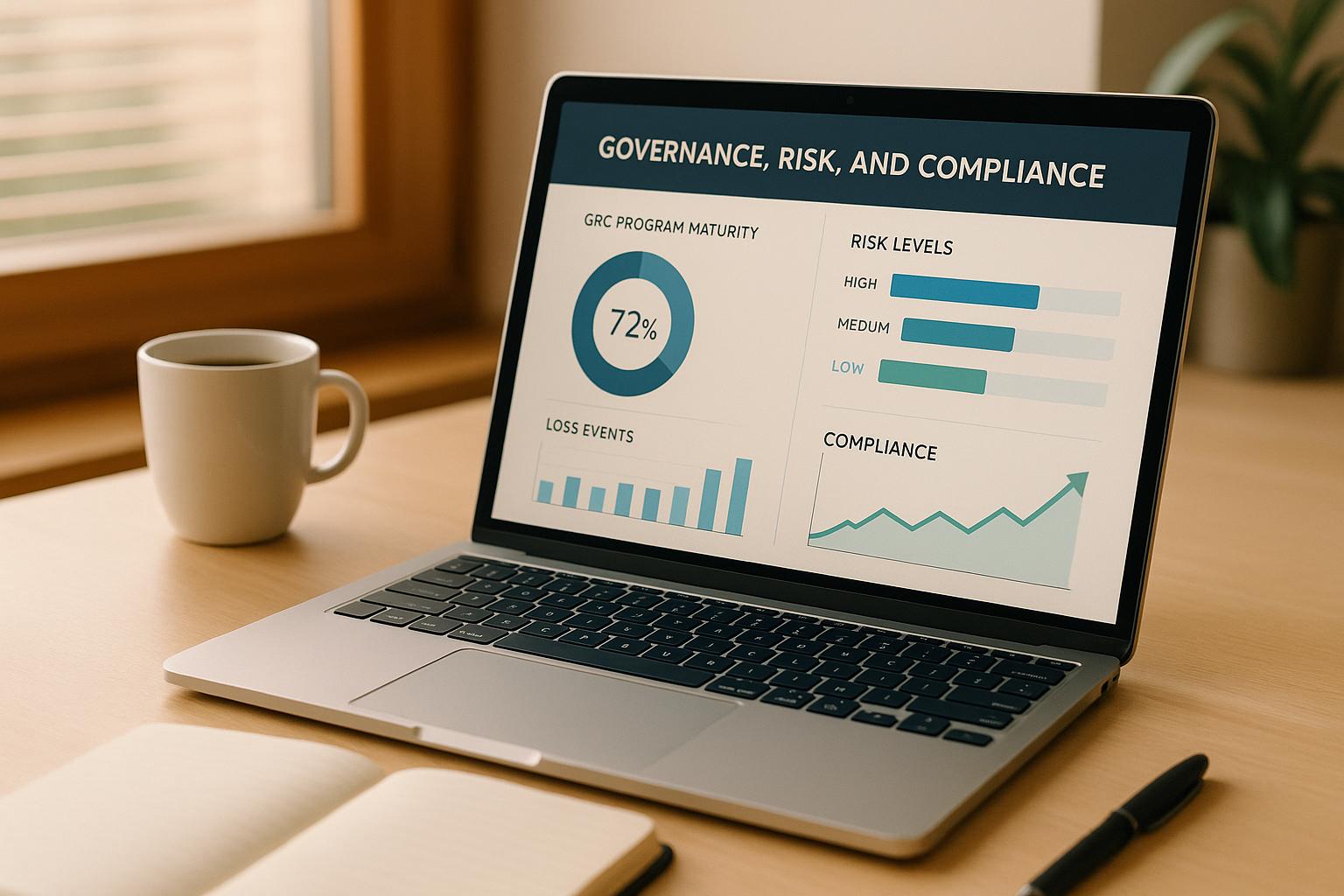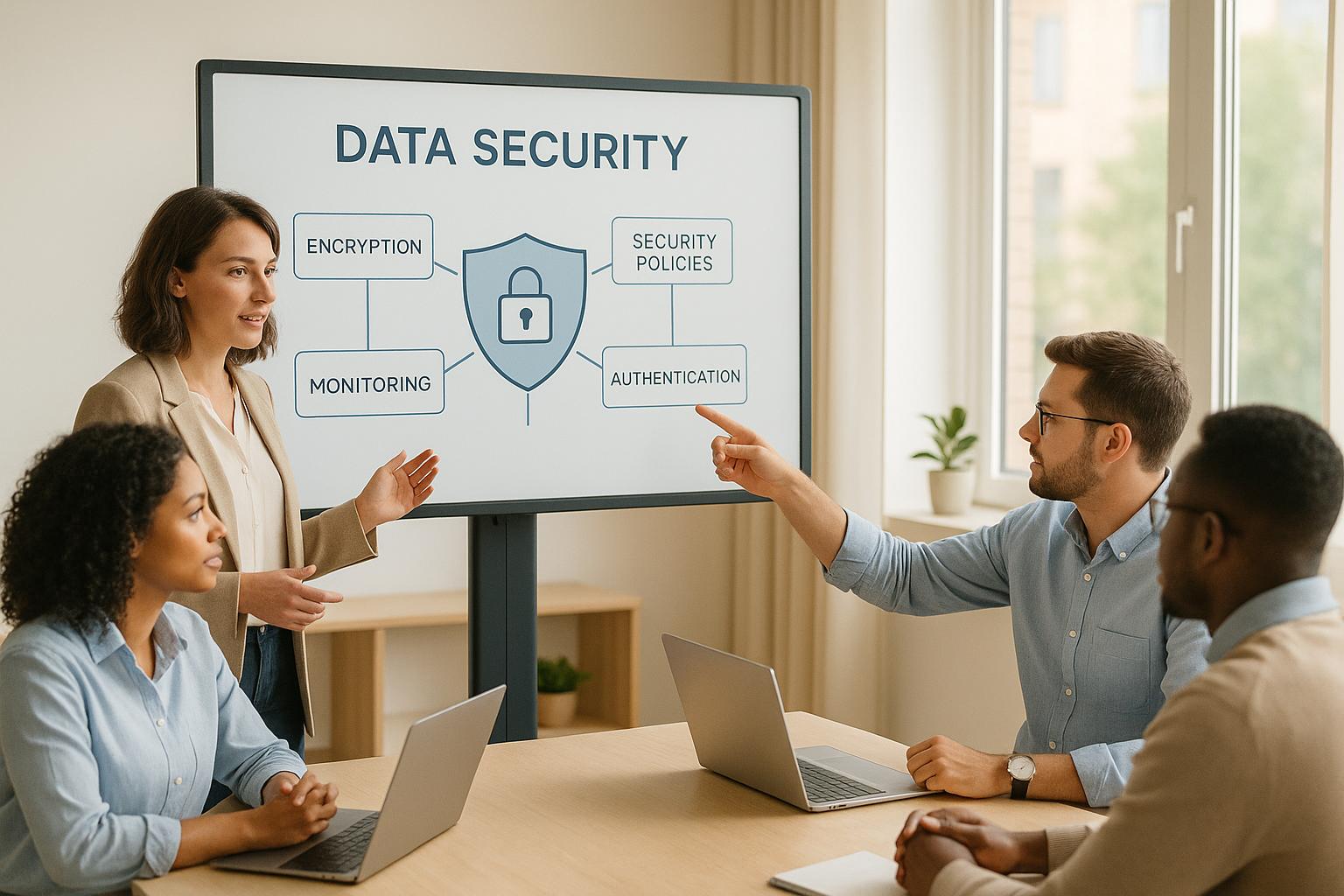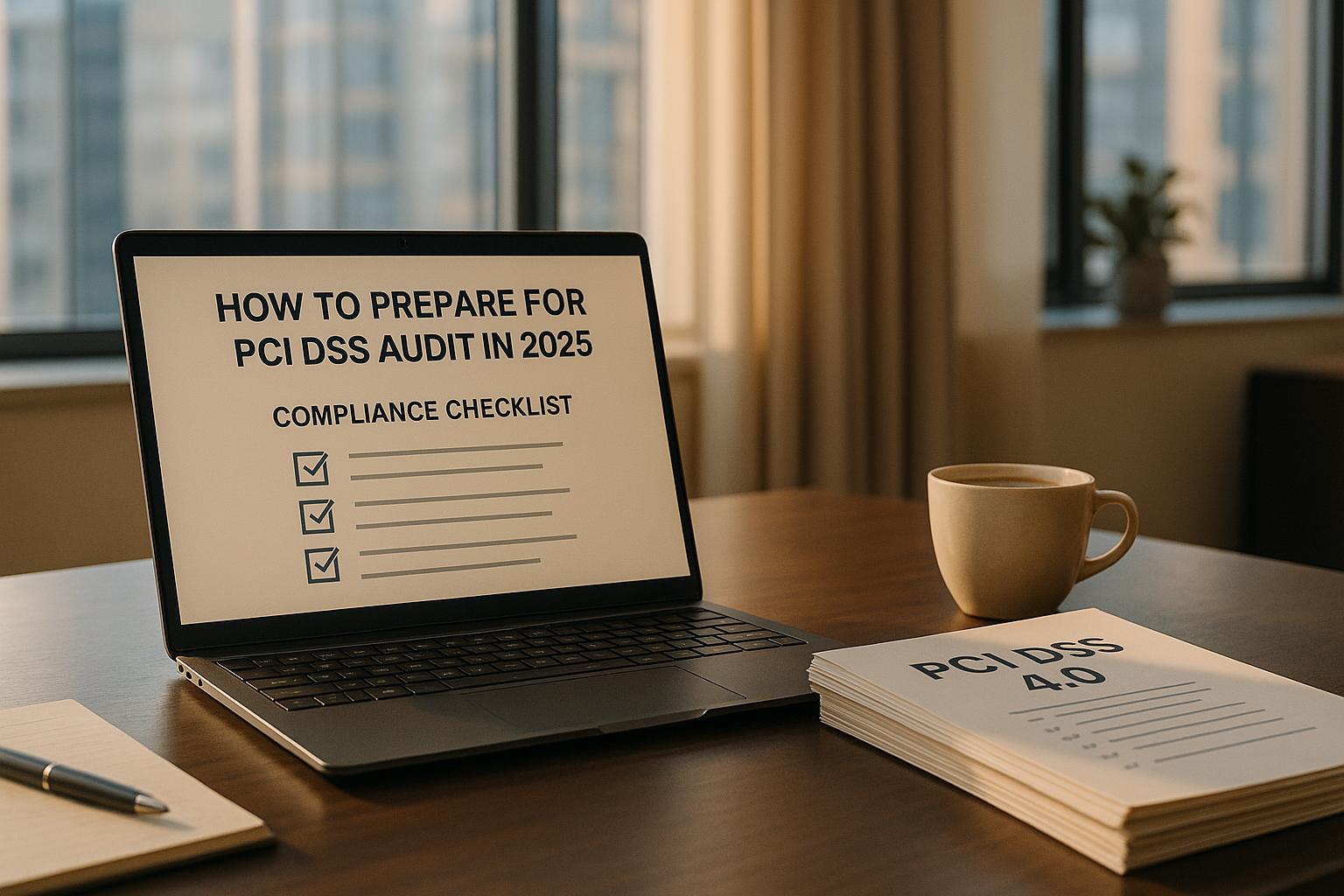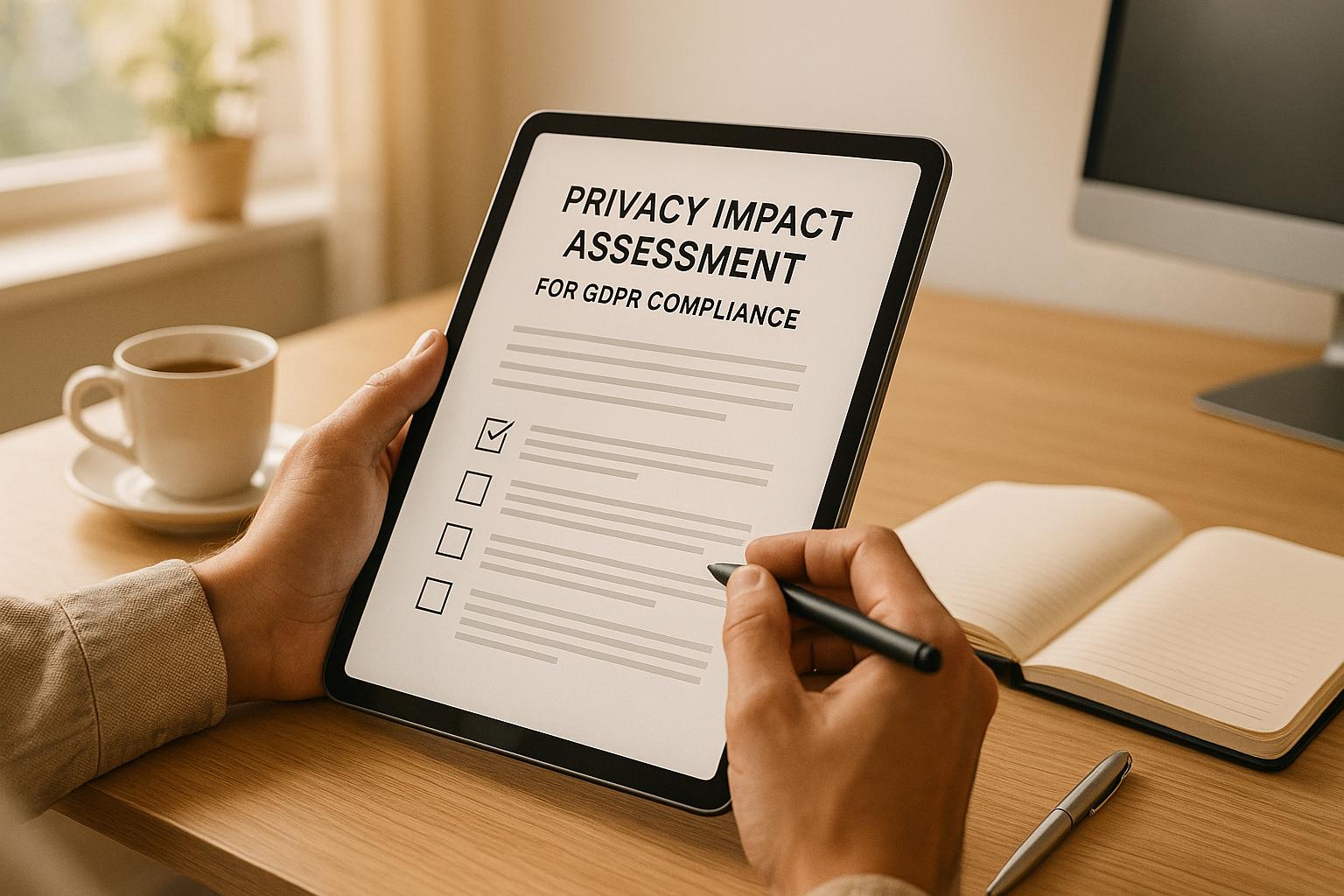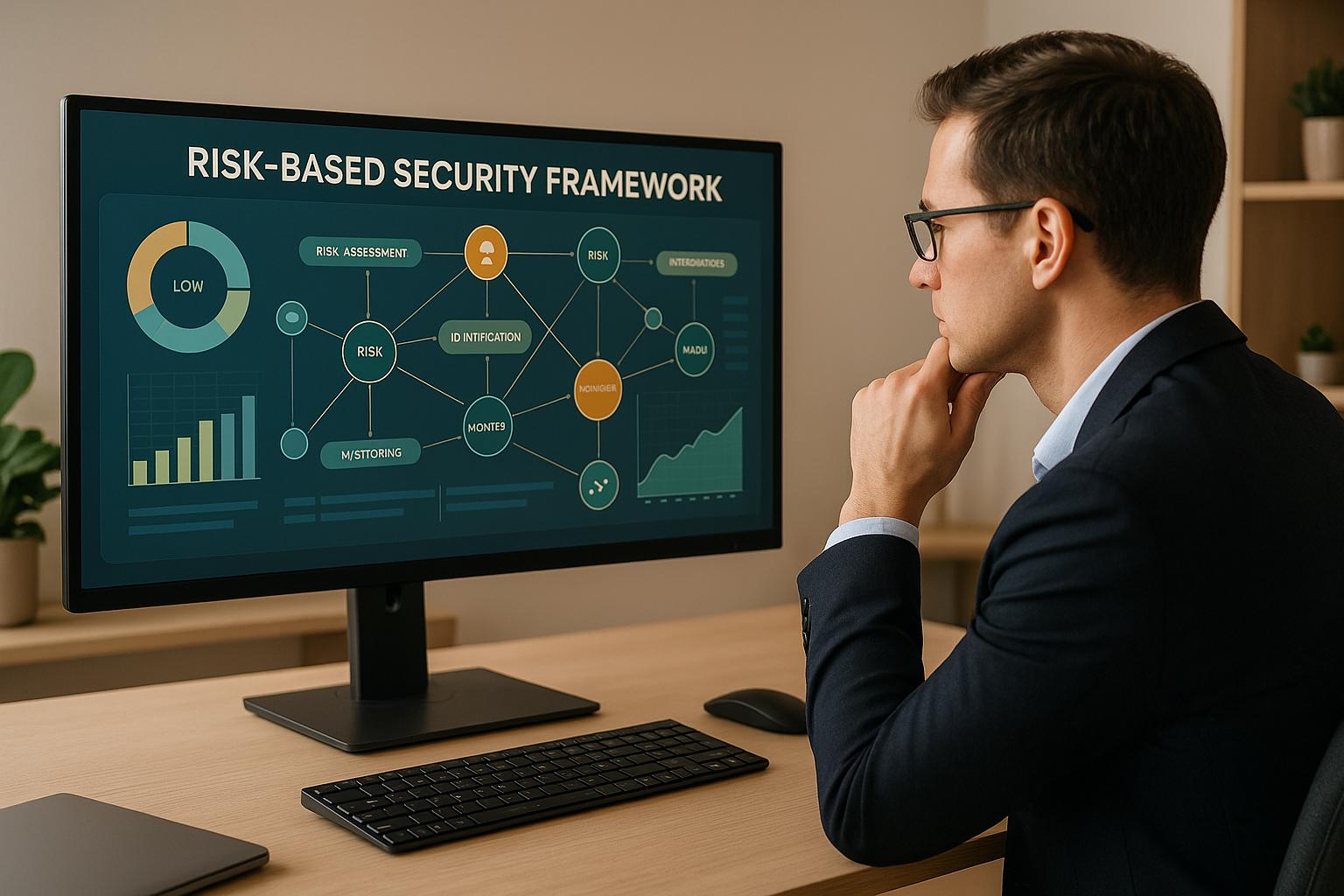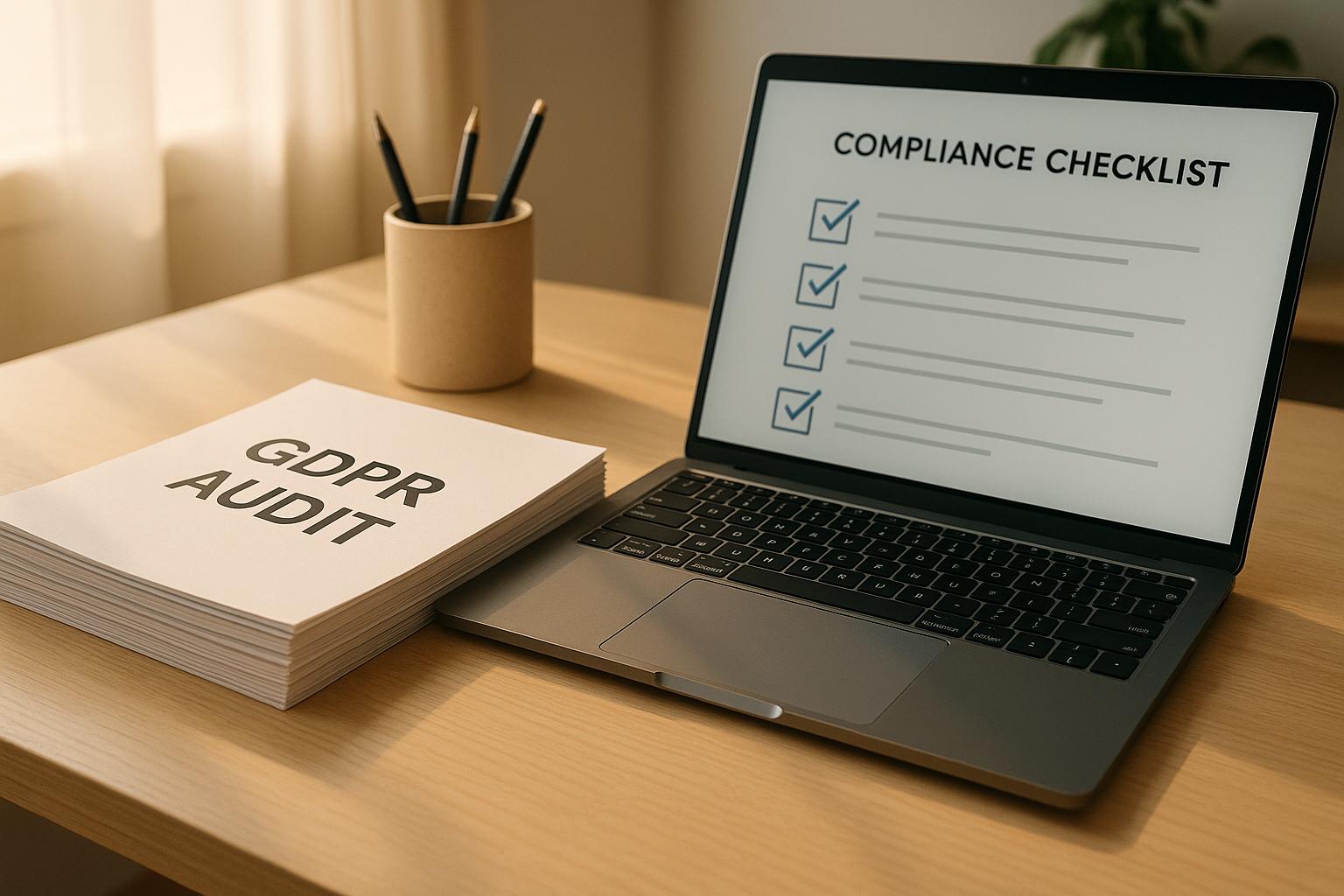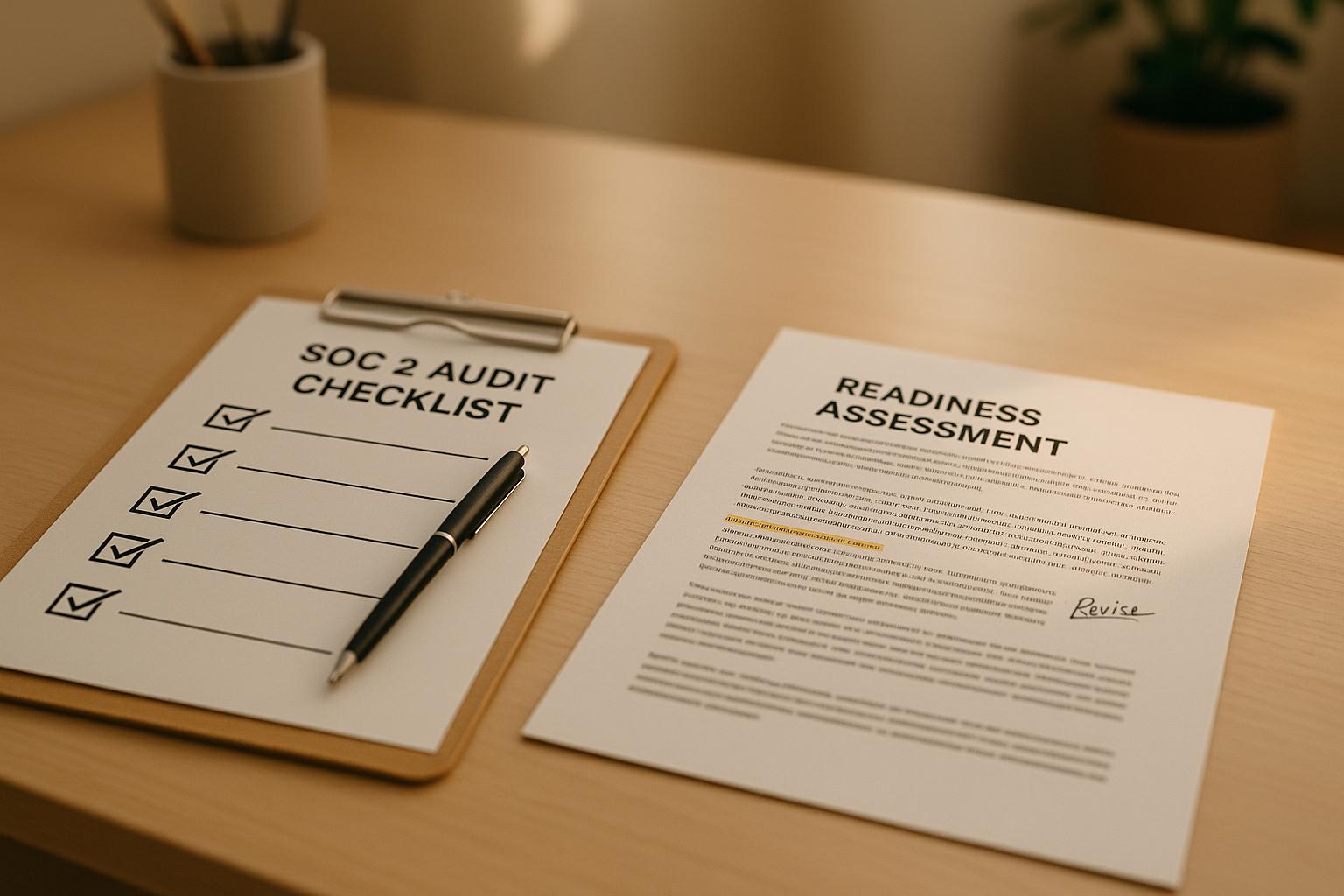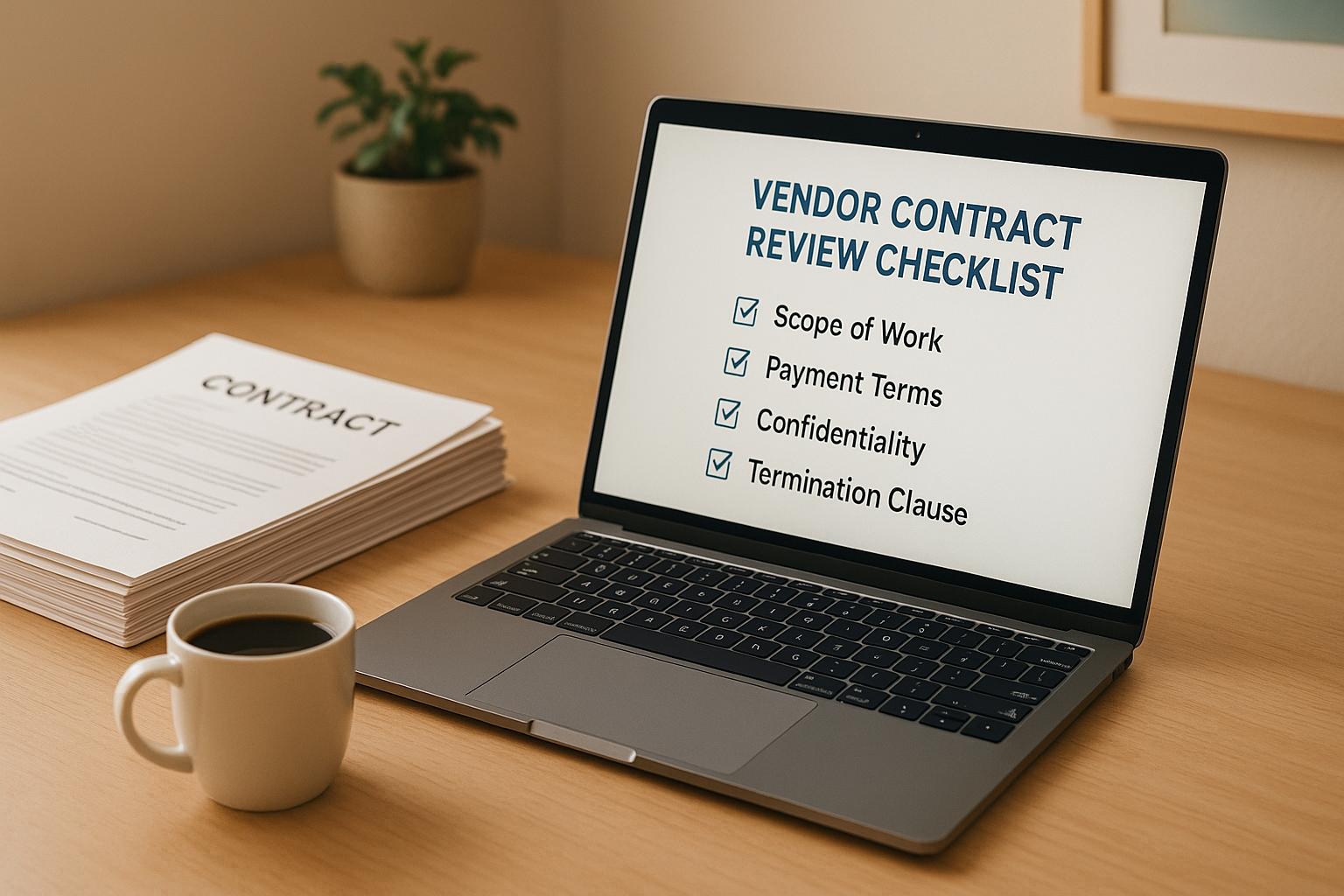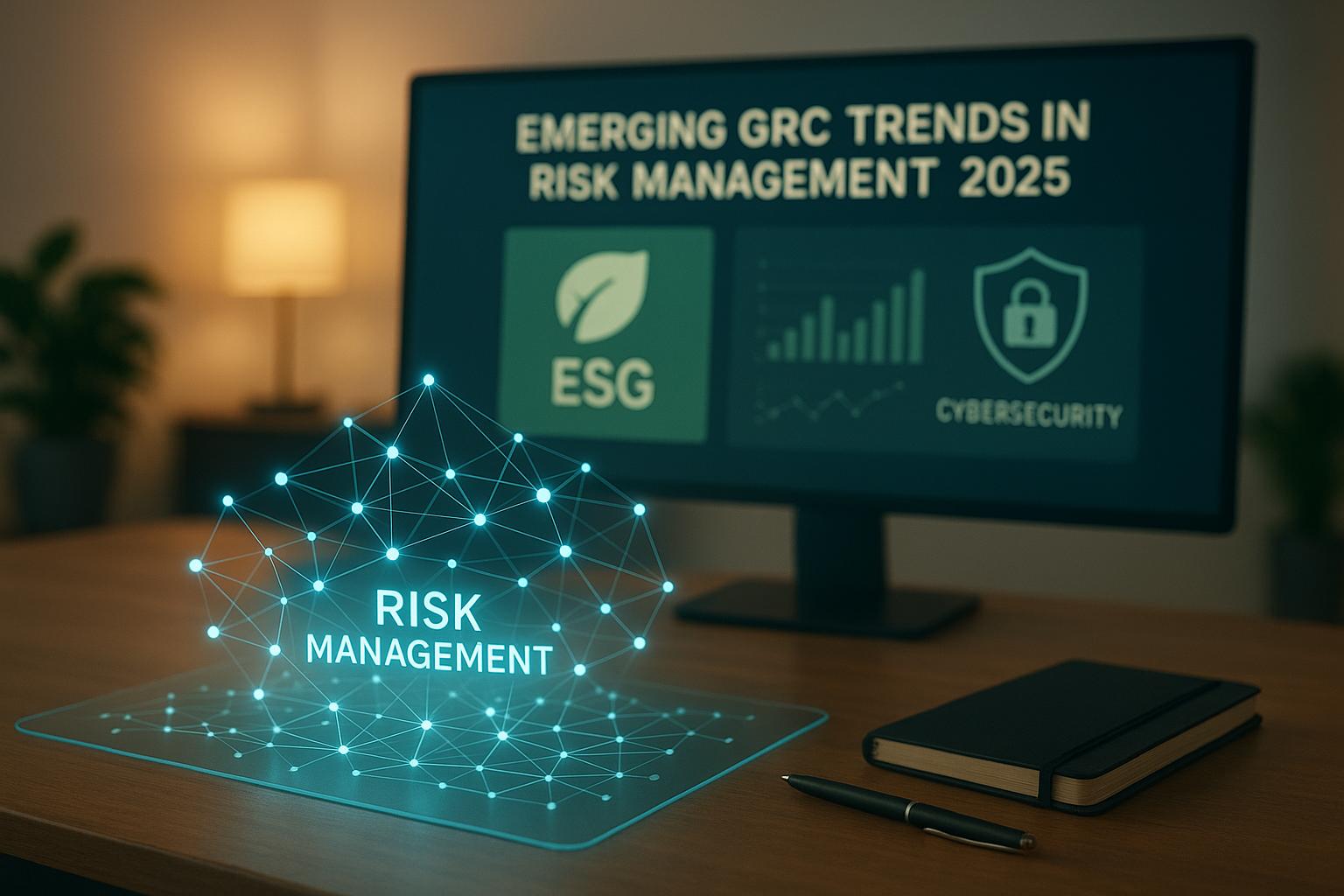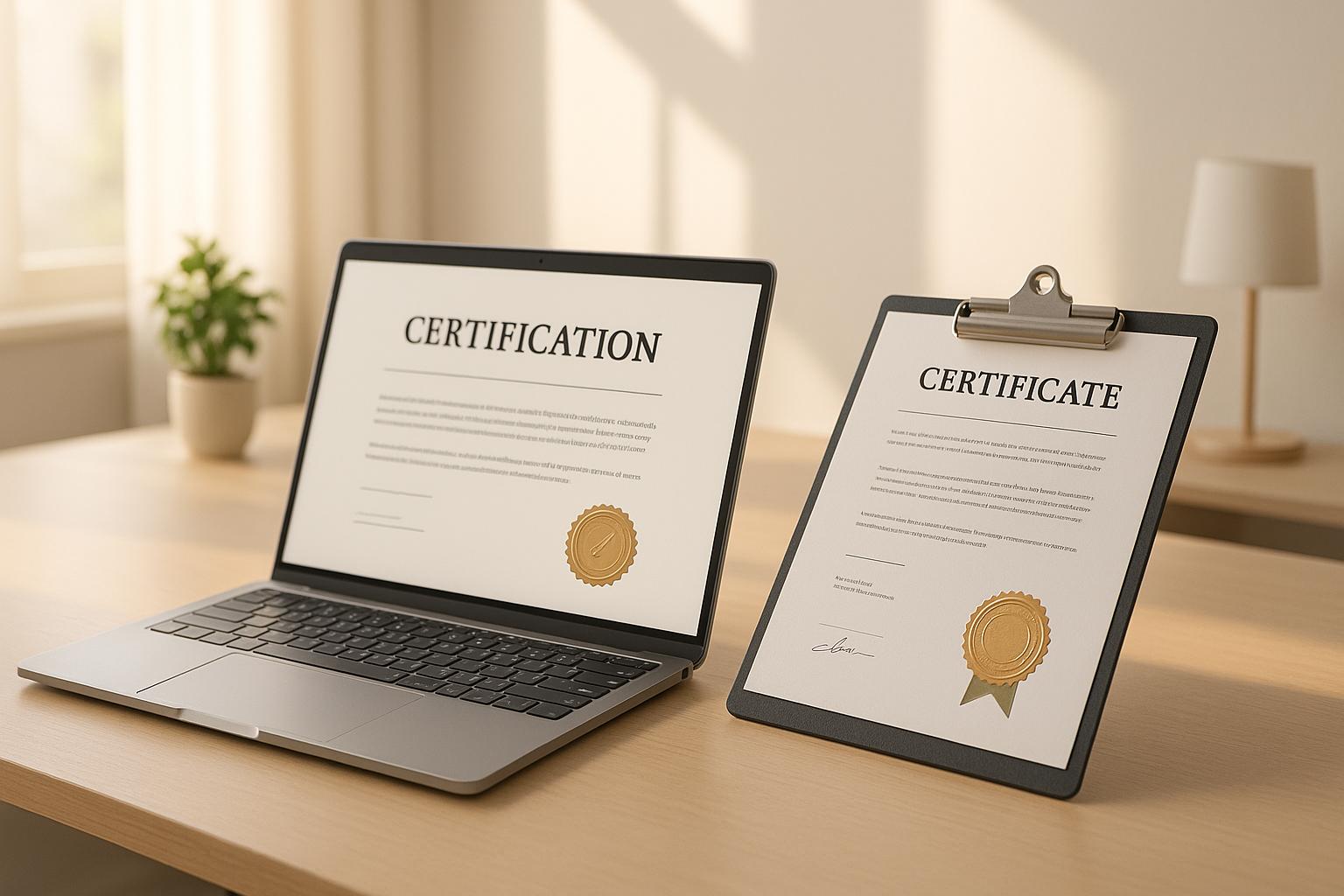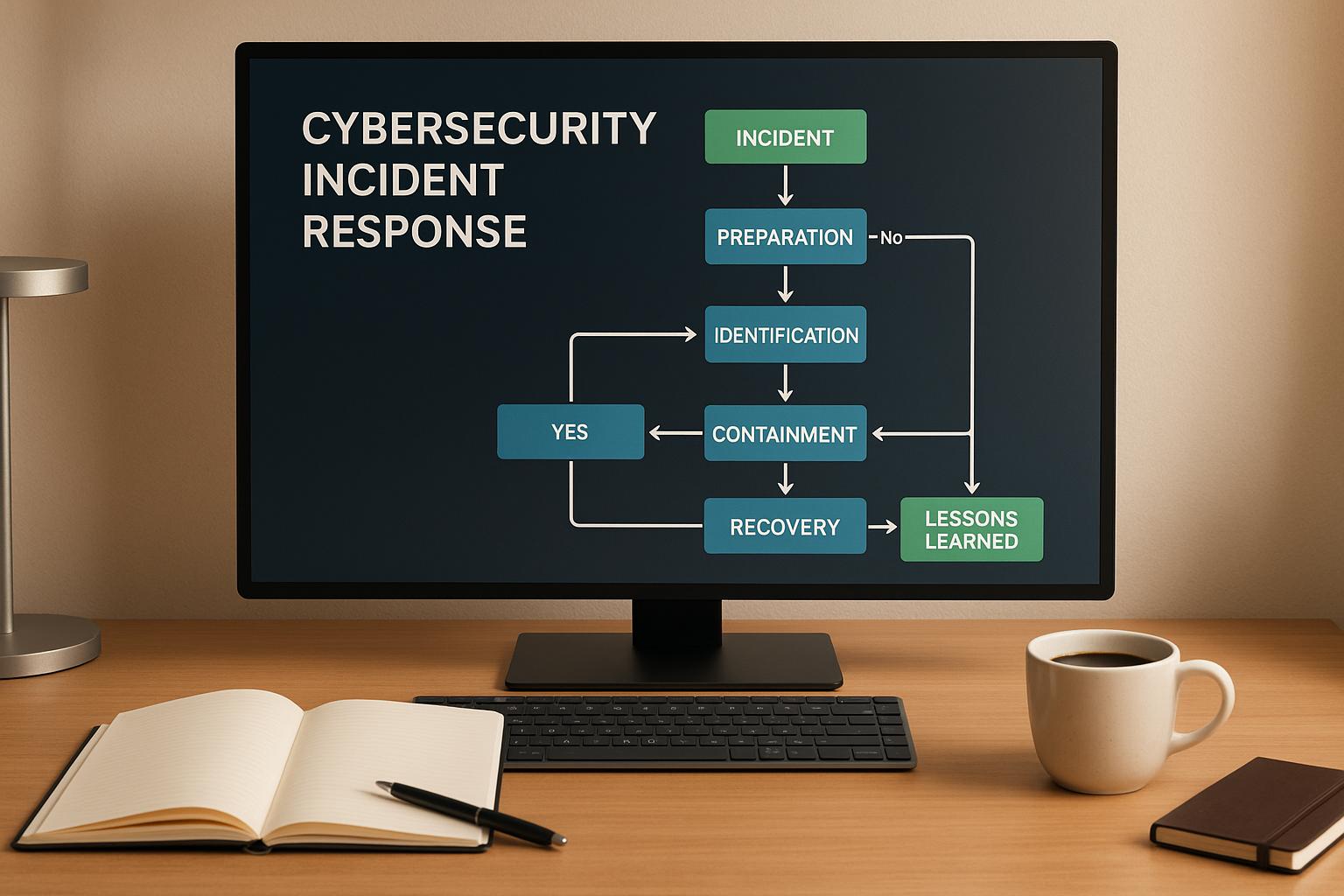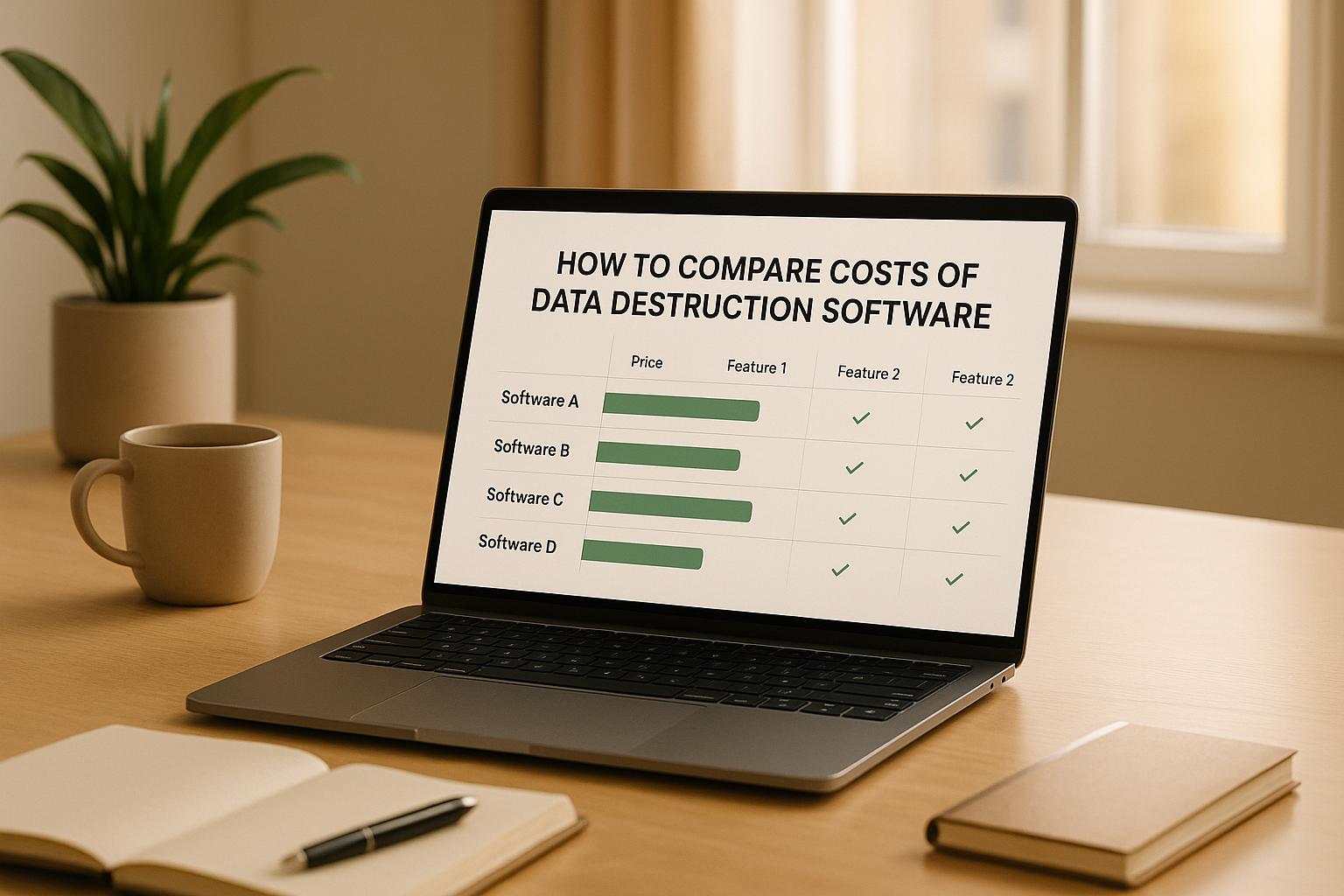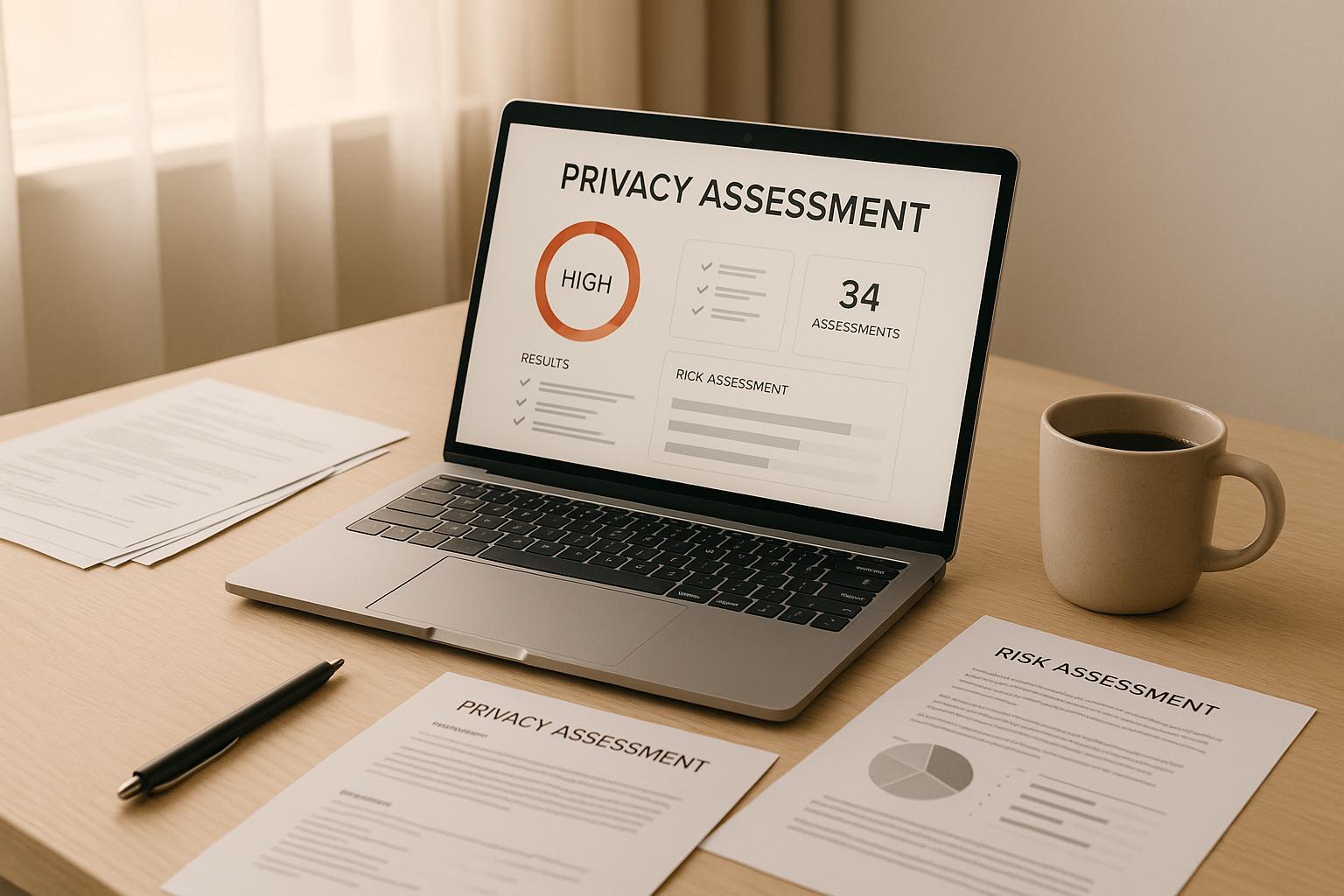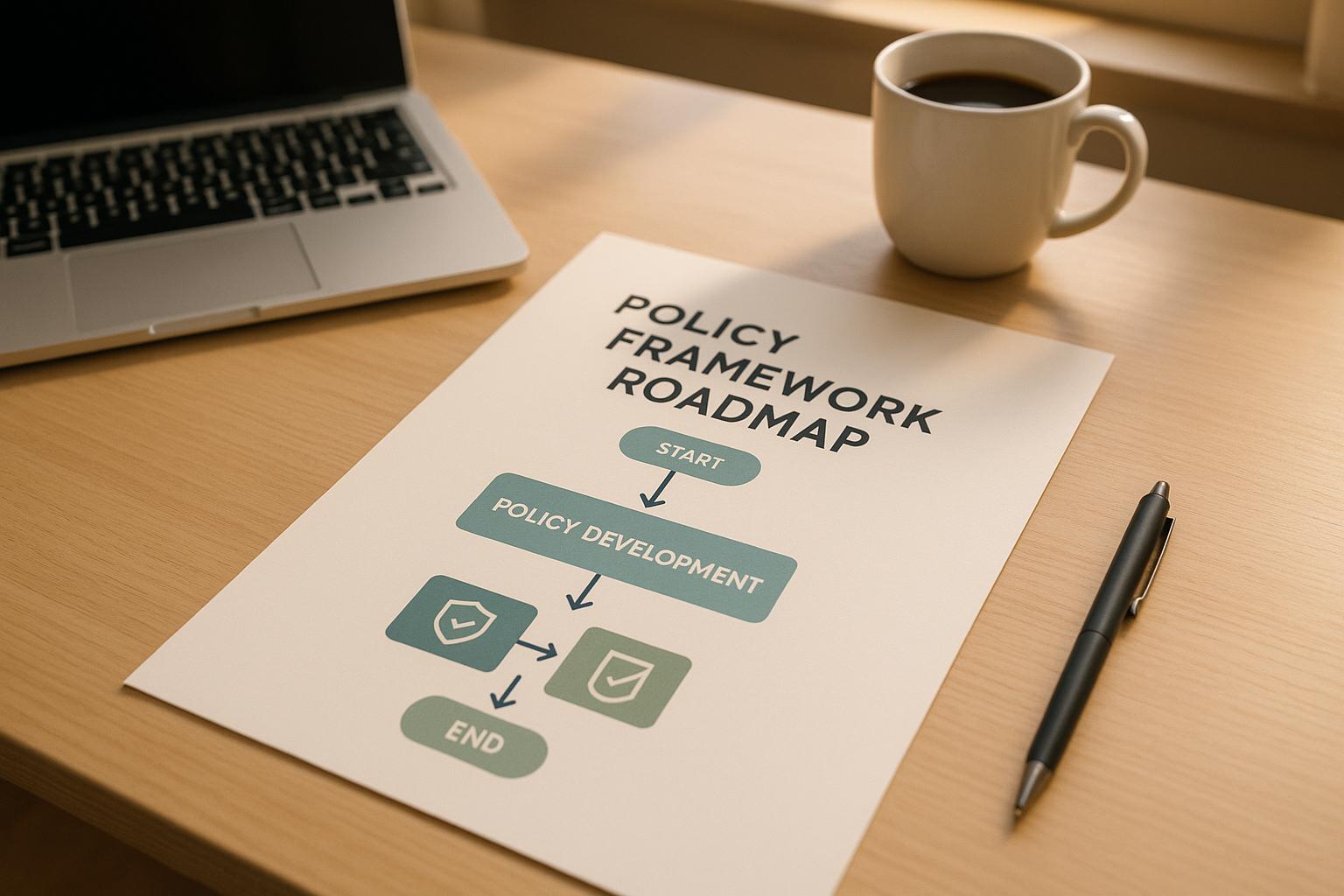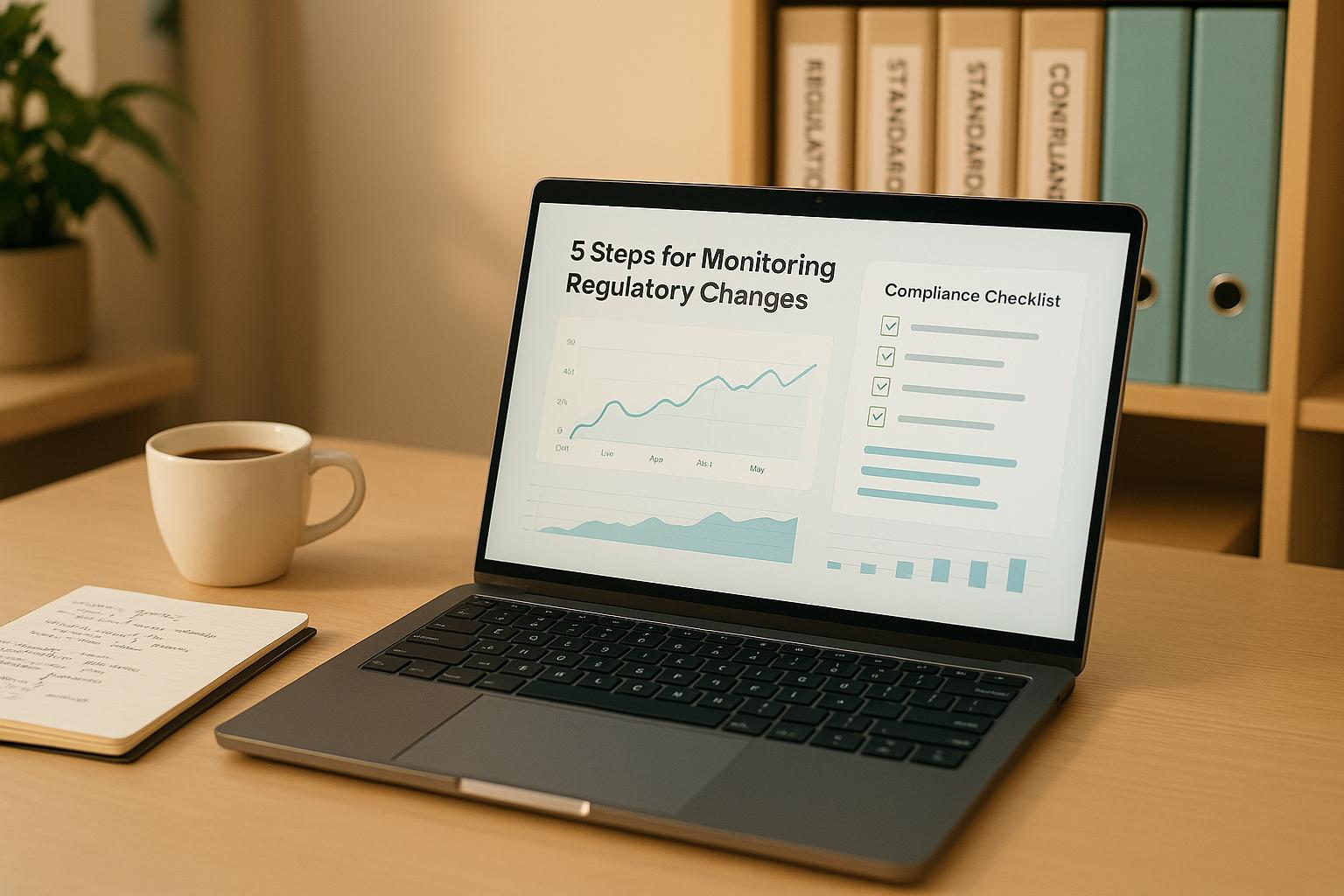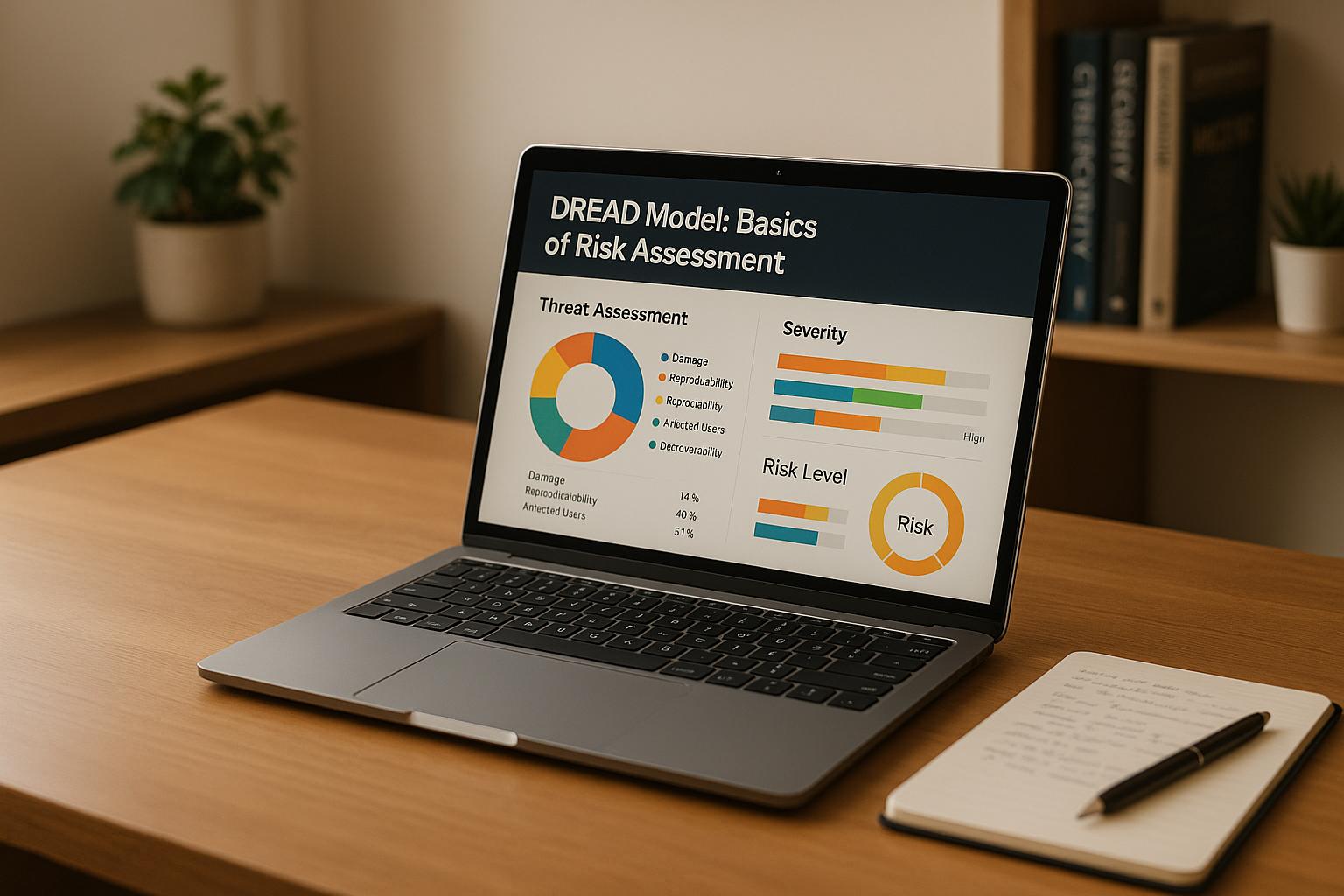
Virtual Chief Information Security Officer (vCISO) services are a cost-effective way for organizations to access high-level cybersecurity leadership without the expense of hiring a full-time CISO. With cybercrime costs reaching $9.5 trillion globally and breaches averaging $4.88 million per incident, businesses must prioritize security. Here's why vCISO services are gaining traction in 2025:
- Cost Savings: vCISO services cost 70–80% less than hiring a full-time CISO, with annual fees typically between $36,000–$60,000 versus $270,000–$425,000 for a full-time hire.
- Flexible Engagements: Options include monthly retainers ($1,000–$20,000+), hourly rates ($200–$350/hour), or project-based pricing ($5,000–$50,000).
- Compliance Expertise: vCISOs help businesses navigate complex frameworks like SOC 2, ISO 27001, GDPR, and industry-specific regulations like HIPAA.
- SMB Focus: With 65% of small and medium-sized businesses (SMBs) experiencing cyberattacks annually, vCISOs provide affordable, tailored security leadership.
- Proven ROI: Companies report savings through reduced security incidents, compliance efficiencies, and lower insurance premiums - often achieving ROI of 250% or more.
vCISO services are ideal for startups, SMBs, and large organizations undergoing transitions, such as compliance initiatives or leadership changes. They combine executive-level expertise with scalable solutions, ensuring businesses stay secure and audit-ready while managing costs.
Episode 147: Why vCISO Engagements Fail with Matt Webster
What Are Virtual CISO Services
Virtual CISO services offer executive-level cybersecurity leadership without the need to hire a full-time Chief Information Security Officer (CISO). As organizations face growing cybersecurity threats and compliance challenges, these services provide flexible and strategic security expertise.
Virtual CISO: Definition and Responsibilities
A virtual Chief Information Security Officer (vCISO) is a part-time or contract-based professional who delivers high-level cybersecurity leadership. Unlike full-time CISOs, who are deeply integrated into an organization's culture and operations, vCISOs focus on offering strategic guidance across industries.
The global vCISO market was valued at $1.06 billion in 2024 and is expected to grow to $1.48 billion by 2032, reflecting a compound annual growth rate of 6.3%.
vCISOs concentrate on big-picture tasks like conducting risk assessments, developing security policies, managing compliance efforts, and preparing for potential crises. They don’t typically handle daily operational tasks, which sets them apart from full-time CISOs. Instead, they act as external advisors, bringing insights from varied industries to address an organization’s unique challenges .
These services are especially valuable during periods of organizational change, such as security program overhauls or compliance initiatives, as they can scale their involvement to meet specific needs.
Who Benefits From vCISO Services?
Small and mid-sized businesses (SMBs) and startups are prime candidates for vCISO services. These organizations often lack the resources to hire a full-time CISO but still need strong cybersecurity leadership to protect their operations and focus on growth.
Companies looking to strengthen their security programs or supplement existing leadership also find value in vCISO services. Additionally, businesses undergoing digital transformation, preparing for mergers or acquisitions, or expanding into new markets often require temporary, high-level security expertise to guide these transitions.
Given that the average tenure of a CISO is just 26 months, vCISO services can also provide stability during leadership changes. This ensures security programs remain on track while permanent replacements are sought.
"In order to be an MSP that has that relationship and that trust, you need to have vCISO services in place so that you have an expert on your staff who is ready to have those conversations and will be trusted by the clients."
– Nett Lynch, CISO at Kraft & Kennedy and former vCISO at VC3
Organizations facing complex regulatory requirements - such as HIPAA, GDPR, NYDFS, or CMMC - also benefit from the expertise of a vCISO. These professionals help integrate compliance needs into actionable security strategies. Furthermore, corporate boards and investors increasingly demand clear and transparent cybersecurity reporting, a need that vCISOs address through executive-level insights and planning.
Leveraging Compliance Tools With vCISO Services
Virtual CISOs often rely on compliance automation platforms like Vanta, Drata, and Secureframe to streamline regulatory processes and improve the efficiency of security programs. These tools simplify compliance by automating tasks, organizing workflows, and providing real-time insights into an organization’s security posture.
Key features of compliance software include:
- Guidance through SOC 2 and similar processes
- Integration with control frameworks
- Templates for policies and procedures
- Automated evidence collection
- Vendor risk management
By using these platforms, vCISOs can quickly identify existing controls and pinpoint areas that need improvement. This approach not only accelerates the implementation of security measures but also ensures all regulatory requirements are fully addressed.
For example:
- Drata specializes in real-time automation for engineering-focused teams.
- Vanta offers startups a fast path to SOC 2 or ISO 27001 certification.
- Secureframe provides a structured approach to compliance for non-technical users.
A vCISO’s role is to oversee the integration of these tools into the organization’s security infrastructure, ensuring a comprehensive approach to risk management. By combining strategic oversight with advanced compliance tools, vCISOs deliver a clear and effective roadmap for managing both technical and administrative security controls.
Virtual CISO Service Costs in 2025
Virtual CISO (vCISO) services come with a range of pricing models, tailored to factors like company size, industry demands, and the scope of services required. Understanding these structures can help businesses evaluate the value and return on investment (ROI) of vCISO services.
Common Pricing Models
vCISO providers typically offer three main pricing options, designed to cater to varying organizational needs and levels of engagement:
-
Monthly retainers: This is the most popular model. Costs vary based on company size:
- Startups: $1,000–$2,500 per month
- Mid-sized companies: $2,500–$5,000 per month
- Enterprises: $5,000–$10,000+ per month, with some cases exceeding $20,000.
- Hourly rates: Ideal for businesses needing specific expertise on demand, with rates ranging from $200 to $350 per hour, depending on the vCISO’s experience and certifications .
- Project-based pricing: Best suited for organizations tackling defined security initiatives or compliance tasks. Project fees range from $5,000 to $50,000. For example, gap and risk assessments typically start at $10,000, while comprehensive services can reach $50,000. One-off projects generally cost between $12,000 and $20,000 .
Some early-stage startups may explore equity compensation instead of cash payments, particularly if they are cash-strapped but have strong growth potential.
Factors Influencing vCISO Pricing
Several factors play a role in determining the cost of virtual CISO services, with industry-specific risks and regulatory requirements being significant drivers:
- Industry demands: Regulated sectors like healthcare and finance often face higher fees - 30–50% more - due to strict compliance needs. Similarly, high-risk industries like tech and data-focused businesses may see rates rise by 20–40%.
- Scope of services: Basic advisory services are less expensive than comprehensive packages that include compliance management, vendor risk oversight, incident response planning, and ongoing security program management.
- Experience and certifications: vCISOs with advanced credentials, such as CISSP, CISM, or CISA, often command higher rates due to their expertise and industry recognition.
-
Service model: Costs vary depending on the level of engagement:
- Advisory vCISOs working 8–16 hours monthly: $5,000–$12,000 per month
- Part-time vCISOs working 40–80 hours monthly: $12,000–$25,000 per month
- Fractional vCISOs dedicating 80+ hours monthly: $25,000–$40,000 per month.
Additional expenses may include tools for security, employee training programs, incident response preparations, and legal support for compliance efforts. Even with these factors, vCISO services often deliver significant cost efficiencies compared to hiring a full-time CISO.
vCISO vs. Full-Time CISO Cost Comparison
The financial advantage of vCISO services becomes clear when compared to the costs of hiring a full-time CISO. A full-time CISO typically earns a base salary of $200,000 or more, with an average salary in the U.S. around $230,000. When adding benefits, bonuses, and recruitment fees, total compensation often exceeds $300,000 annually.
In contrast, vCISO services cost approximately $36,000–$60,000 annually, offering savings of 70–80%.
| Cost Factor | Full-Time CISO | Virtual CISO |
|---|---|---|
| Annual Salary/Fees | $200,000–$300,000+ | $36,000–$60,000 |
| Benefits & Bonuses | $50,000–$75,000 | Not applicable |
| Recruiting Costs | $20,000–$50,000 | Minimal setup fees |
| Total Annual Cost | $270,000–$425,000+ | $36,000–$60,000 |
| Cost Savings | Baseline | 70–80% reduction |
Beyond cost savings, vCISOs bring diverse expertise from working with multiple clients across industries. This breadth of experience often leads to the implementation of best practices that a full-time CISO, focused on a single organization, might not offer.
For example, a regional manufacturer transitioned from relying on an ad-hoc IT manager to a $4,000 monthly vCISO retainer in March 2023. Within six months, they saved $58,000 by eliminating redundant endpoint licenses and reduced insurance premiums by $22,000 after implementing multi-factor authentication and tabletop testing. This resulted in a net annual ROI of 250%.
ROI and Benefits of Virtual CISO Services
Virtual CISO (vCISO) services offer measurable returns by enhancing security, accelerating compliance, and providing strategic advantages that justify the investment.
Direct Cost Savings
vCISO services significantly cut costs compared to hiring a full-time Chief Information Security Officer (CISO). On average, organizations save up to 70% by opting for vCISO solutions, as these eliminate recruitment expenses and ongoing overhead costs. Annual engagements typically range from $80,000 to $150,000, depending on the scope of services provided. Beyond the financial savings, vCISOs help mitigate risks by proactively addressing vulnerabilities, reducing the likelihood of costly security incidents. These services not only lower expenses but also contribute to improved strategic outcomes.
Business Benefits of vCISO Services
Cost savings are just one part of the equation. vCISOs elevate security from a reactive necessity to a strategic advantage. They safeguard critical assets while supporting business innovation. By offering executive-level expertise at a fraction of the cost of a full-time CISO - often less than half - organizations gain access to seasoned leadership and an external perspective. This outside viewpoint is invaluable for uncovering vulnerabilities and providing unbiased recommendations, free from internal biases or politics.
vCISOs also simplify compliance by assessing regulatory requirements, creating actionable roadmaps, and implementing effective controls. Many vCISO engagements include support from a team of cybersecurity specialists, ensuring thorough coverage across various security domains. This comprehensive approach not only streamlines compliance efforts but also fosters customer trust, which can drive business growth.
ROI Comparison: With vs. Without vCISO
Organizations that invest in vCISO services consistently outperform those relying solely on internal resources. Without a vCISO, companies often face slower compliance processes and reactive approaches to security incidents. In contrast, businesses with vCISO support benefit from proactive strategies that help them achieve certifications more efficiently, strengthen defenses, and align security efforts with broader business objectives. This shift transforms security spending into a long-term investment, positioning it as a driver of growth rather than just an operational cost.
sbb-itb-ec1727d
Virtual CISO Service Use Cases
Virtual CISO (vCISO) services address security challenges and regulatory requirements, simplifying vendor management while making security oversight more efficient and cost-effective.
Managing SOC 2, ISO 27001, and GDPR Compliance
When it comes to regulatory compliance, vCISOs excel at customizing controls to meet varying standards. They bring a wealth of expertise to help organizations navigate complex frameworks like SOC 2 and ISO 27001, ensuring the design and implementation of the necessary security measures for each certification.
"A virtual CISO provides expert cybersecurity leadership and compliance support on a flexible basis, helping businesses manage risks, implement controls, meet standards like ISO 27001 or SOC 2, and stay audit-ready year-round." – Abhijith Rajesh, Executive Team Lead at CertPro
For GDPR compliance, vCISOs focus on both data privacy and technical security. This includes creating policies, procedures, and employee training programs that align with regulations while supporting the organization's operational needs. They also streamline compliance efforts by aligning controls across SOC 2, ISO 27001, and GDPR, avoiding redundant work.
Choosing the right vCISO for compliance is crucial. Look for someone who can simplify complex security concepts and offer flexible support options - whether for audits or ongoing assistance. Their broad, multi-industry experience often provides insights that internal teams might miss.
Third-Party Risk Management and Security Audits
With the rise of cyber threats linked to vendor relationships, managing third-party risks has become a top priority. Virtual CISOs play a key role in this by establishing robust third-party risk management programs, conducting thorough risk assessments, and implementing continuous monitoring to minimize the chance of breaches.
Here’s a staggering fact: 29% of data breaches originate from third-party vulnerabilities, yet only 3% of organizations have full visibility into their supply chains.
To address this, vCISOs implement safeguards like continuous risk scoring, automated compliance tracking, and regular audits. They also help organizations categorize vendors by risk level, set deadlines for addressing vulnerabilities, and map subcontractor dependencies during onboarding. Beyond vendor risk, vCISOs use technology to streamline compliance processes, ensuring a more secure and efficient approach.
Compliance Tool Management and Optimization
Many organizations invest in compliance tools like Vanta, Drata, and Secureframe but don’t always use them to their full potential. Virtual CISOs step in to optimize these platforms, ensuring they’re properly configured and managed for maximum efficiency. This prevents inefficiencies and missed compliance milestones.
In addition to tool selection, vCISOs offer strategic guidance on implementation, organize workflows, and suggest automation for repetitive tasks. Their external perspective helps businesses adopt best practices and strengthen their overall security programs.
"The robust cyber security program you will develop with the assistance of a vCISO will prove your business's commitment to protecting customer data, enabling you to meet customer security requirements and ultimately win more business." – CompliancePoint
Virtual CISOs also collaborate with Governance, Risk, and Compliance (GRC) teams to establish security policies and train internal staff. They fine-tune compliance tools to meet specific organizational needs, identifying risks and opportunities for improvement that might otherwise go unnoticed. These examples show how vCISOs not only cut costs but also enhance security outcomes, making them a strategic asset for businesses looking to improve compliance and vendor risk management.
Choosing and Scaling Virtual CISO Solutions
Picking the right virtual CISO (vCISO) provider starts with a clear understanding of your organization's current security needs and future growth goals. The challenge is to align your unique requirements with the provider’s expertise while ensuring their solution can grow alongside your business.
Evaluating Your Organization's Readiness
Before bringing a vCISO provider on board, take a hard look at your internal cybersecurity setup. This means identifying gaps in your security policies, compliance efforts, and response capabilities. Start by reviewing your existing security framework and incident response processes, and check how well you’re meeting regulatory requirements.
Here’s what to focus on:
- Policies and Documentation: Are your security policies up-to-date, or are there areas where documentation is missing altogether?
- Incident Response: How prepared is your team to handle security breaches or manage ongoing risks?
Your organization’s size and maturity level also play a big role. For instance, startups often need help with basic security measures and compliance. Mid-sized companies might require more structured systems, while larger enterprises face advanced threats and need robust management.
Budget is another critical factor. With 83% of SMBs planning to increase cybersecurity spending in the next year and 76% admitting they can’t handle incidents without external help, investing in vCISO services is becoming a necessity rather than a luxury.
Once you’ve assessed your current position, you’ll be better equipped to find a provider that matches your needs.
Selecting a vCISO Provider
When choosing a vCISO provider, focus on three key factors: experience, industry expertise, and communication skills.
First, look for a provider with a solid track record in cybersecurity leadership. They should have experience in areas like security frameworks, risk assessment, compliance, and incident response. Certifications like CISSP and CISM are a must-have.
Industry-specific knowledge is just as important. For example, if you’re in healthcare, the provider should be well-versed in HIPAA requirements. Similarly, financial firms should look for expertise in PCI-DSS compliance. This ensures the provider understands your sector’s unique challenges and can tailor their services accordingly.
Communication is another make-or-break factor. A good vCISO must be able to simplify technical jargon into clear, actionable strategies that executives and teams can easily understand. During the vetting process, interview their team, ask for references, and verify their certifications to ensure they’re up to the task.
Finally, consider the provider’s flexibility and scalability. Ask how they plan to adapt to your evolving needs, both in terms of technical capabilities and budget.
Once you’ve identified the right provider, the next step is finding a solution that scales with your business.
Cycore's Scalable Service Plans
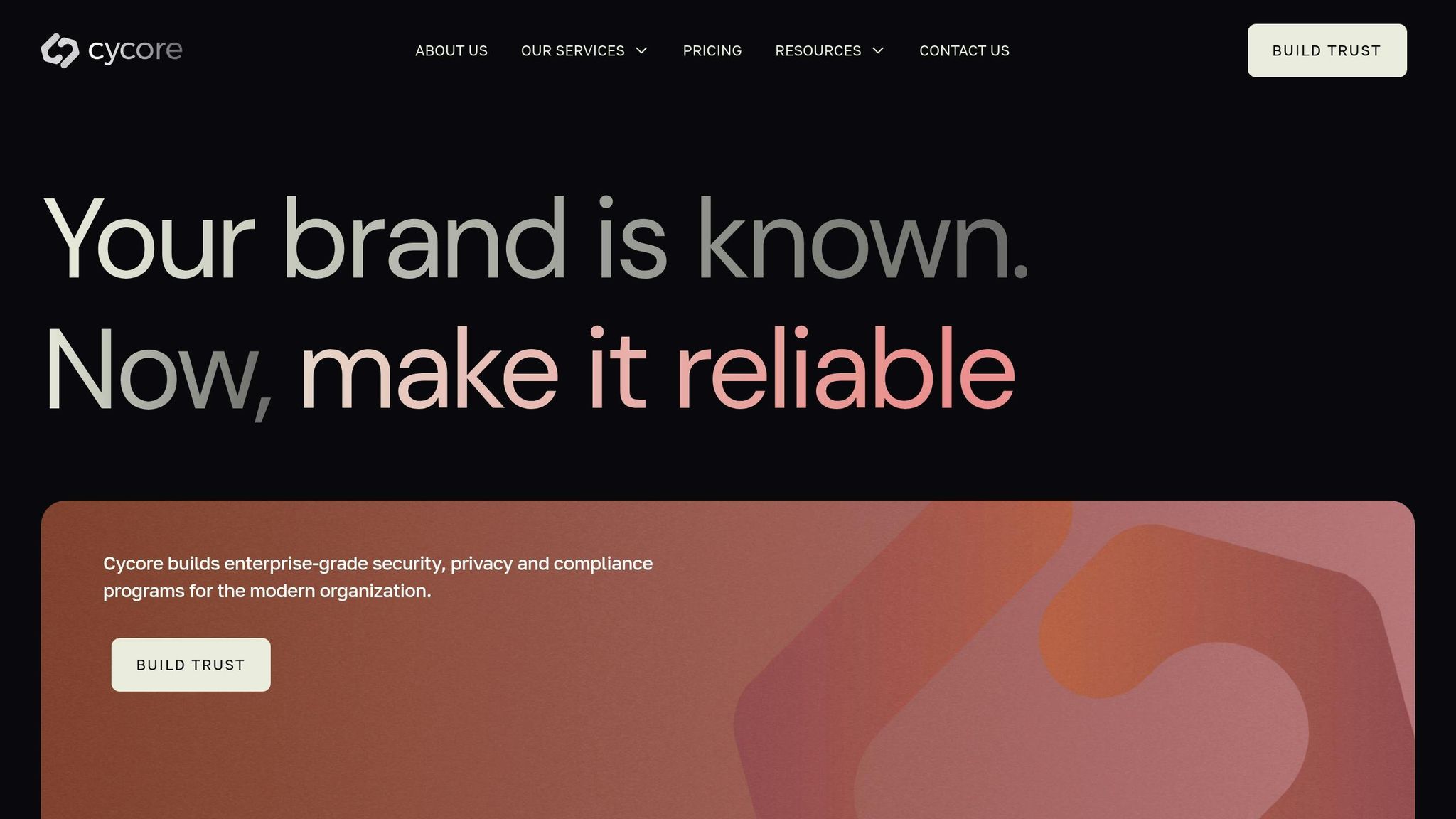
Cycore offers three service tiers designed to meet the needs of organizations at different stages of growth.
- Start-up Plan: This tier is ideal for companies just starting their security journey. It includes basic vCISO services for one compliance framework, GRC software administration, an initial compliance assessment, basic monthly reporting, foundational security training, and vendor management support. It’s perfect for businesses aiming for their first certifications, like SOC 2 Type I.
- Mid-Market Plan: Designed for growing companies juggling multiple compliance requirements, this plan offers vCISO services for several frameworks, vDPO services for data protection, advanced GRC administration for up to two tools, annual penetration testing, audit support, advanced security training, and monthly vulnerability management reports. It’s a great fit for organizations expanding into new markets or tackling additional regulatory demands.
- Enterprise Plan: This comprehensive option is tailored for large, established businesses with complex security needs. Features include full vCISO and vDPO services, custom GRC tool integration for up to four tools, continuous vulnerability management, quarterly penetration testing, full audit preparation, custom security roadmaps, and priority access to security experts. It’s designed to handle advanced threat management and strategic security planning.
All three plans are built on scalable security principles, ensuring businesses can adapt to new threats and integrate cutting-edge technologies without a complete overhaul.
"You really can't put a price on the impact – the value of the working relationship has been phenomenal. And it's evolving every day." - John Jeffries, CISO at The University of Tennessee Medical Center (UTMC)
This approach highlights how managed vCISO services blend human expertise with technology and automation. The result? A streamlined, flexible solution that aligns with your cybersecurity needs and resources.
Conclusion: Virtual CISO Services for Business Growth
Virtual CISO (vCISO) services have become a key driver of business growth for companies of all sizes in 2025. With 65% of small and medium-sized businesses (SMBs) facing cyberattacks annually, professional cybersecurity leadership is no longer a luxury - it’s a necessity.
Organizations adopting vCISO services often report up to a 30% reduction in cybersecurity incidents within the first year. This is a critical advantage, especially when 60% of SMBs fail within six months of a cyberattack. Beyond immediate protection, vCISO services help businesses build customer trust, simplify compliance challenges, and stay competitive in markets where security is a top priority.
The growing demand for these services is reflected in industry trends. By the end of 2024, 86% of MSPs and MSSPs are expected to offer vCISO services, highlighting their rising importance.
"Clients recognize that extensive annual compliance work is no longer required - vCISO services streamline and simplify these tasks."
vCISO services provide a scalable solution that adapts to the unique needs of businesses. Whether it’s a startup aiming for its first SOC 2 certification or a large organization juggling multiple compliance frameworks, the ability to adjust services without long-term commitments gives businesses the flexibility they need to thrive.
FAQs
How do virtual CISO services deliver better ROI compared to hiring a full-time CISO?
Virtual CISO (vCISO) Services: A Cost-Effective Alternative
Virtual CISO (vCISO) services provide businesses with top-tier cybersecurity expertise without the hefty price tag of hiring a full-time Chief Information Security Officer (CISO). In the United States, a full-time CISO typically commands an annual salary of about $230,000. In contrast, vCISO services range from $5,000 to $25,000 per month, depending on the scope of work. This makes them an attractive option for small to medium-sized businesses or organizations with changing security needs.
By delivering customized support without the expenses tied to full-time salaries, benefits, and bonuses, vCISO services allow companies to use their budgets more effectively. These services also bring specialized knowledge to help businesses navigate compliance standards such as SOC 2, ISO 27001, and GDPR. Many vCISOs incorporate tools that streamline processes, reducing both effort and costs. The result? A flexible and affordable approach to cybersecurity that maximizes return on investment - ideal for organizations looking for scalable solutions to protect their operations.
What should businesses look for when selecting a virtual CISO provider?
When selecting a virtual CISO provider, it's crucial to focus on their expertise in cybersecurity and regulatory compliance. Make sure they have experience with key frameworks such as SOC 2, ISO 27001, and GDPR. A solid track record, relevant industry knowledge, and the ability to align with your company’s objectives and culture are essential factors to consider.
While cost is an important consideration, it’s just as critical to evaluate whether the provider can deliver real, measurable benefits. These might include enhancing compliance processes or fortifying your security strategies. Look for providers who offer customized solutions and are well-versed in tools like Vanta, Drata, or Secureframe to help simplify compliance management.
How do virtual CISO services help SMBs manage compliance with regulations like GDPR and HIPAA?
Virtual CISO (vCISO) services give small and medium-sized businesses (SMBs) access to seasoned expertise for tackling complex compliance challenges, such as GDPR and HIPAA. These services provide customized advice to help businesses understand and implement the controls needed to meet regulatory requirements.
Beyond initial compliance, vCISOs play a key role in ongoing monitoring and risk management, ensuring businesses stay current and effective in their efforts. Using advanced tools, they simplify compliance processes, lower the risk of violations, and help avoid costly penalties. This frees SMBs to concentrate on growth while maintaining strong cybersecurity and staying aligned with regulations.




